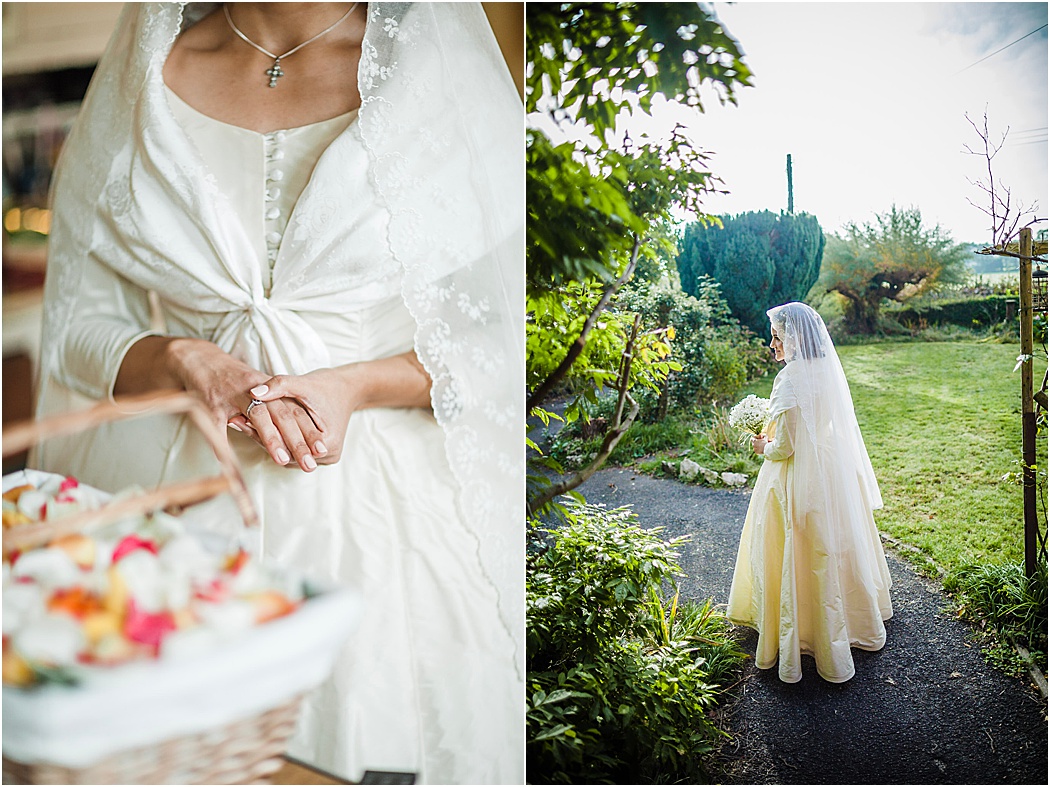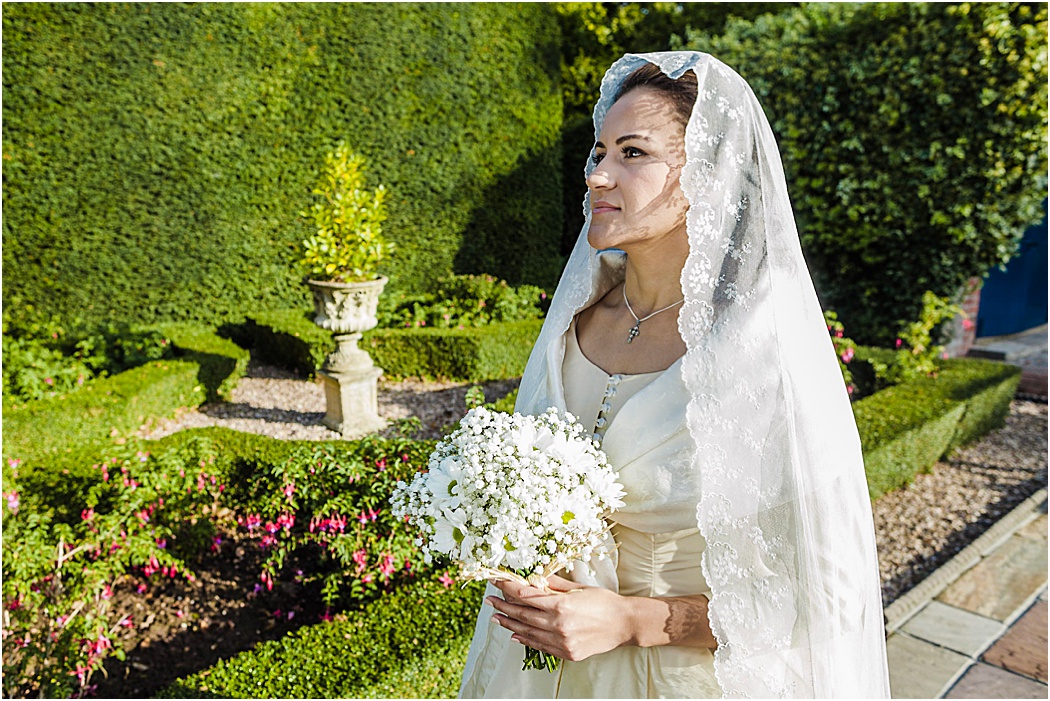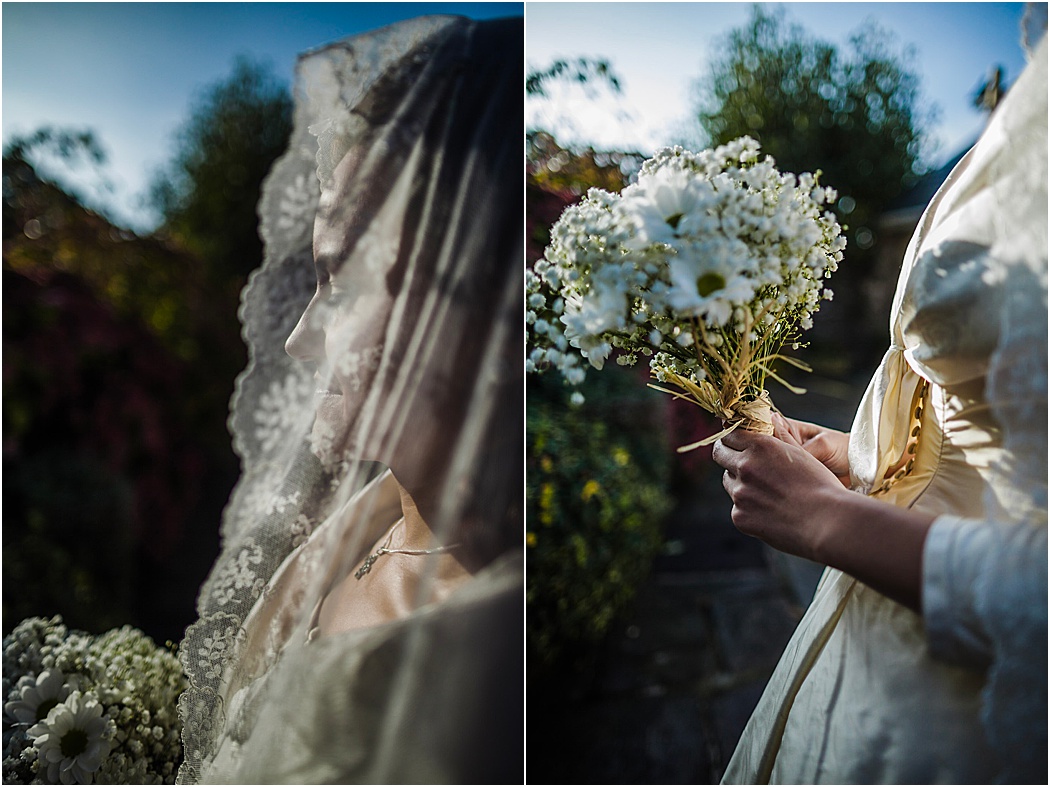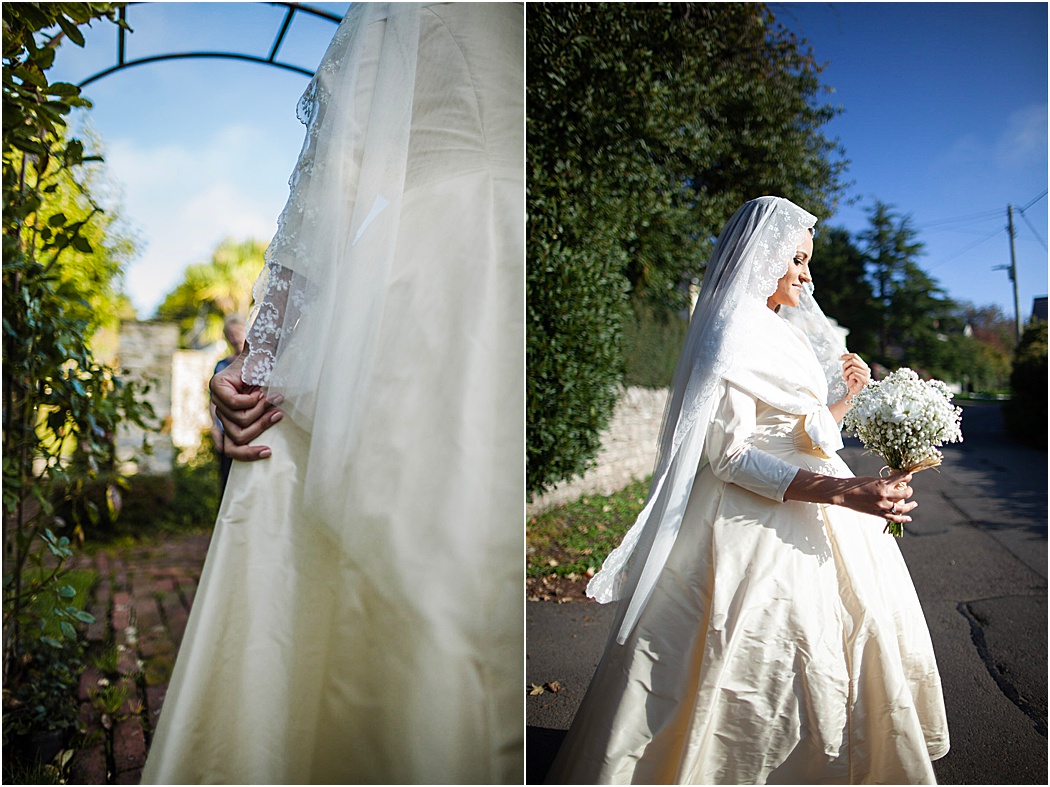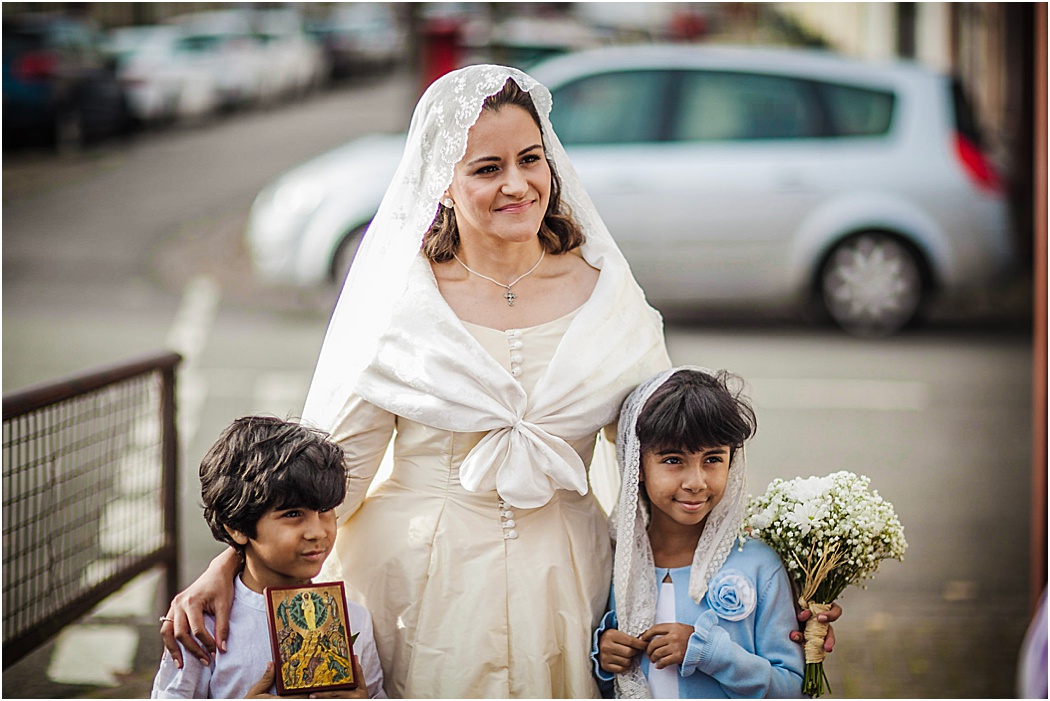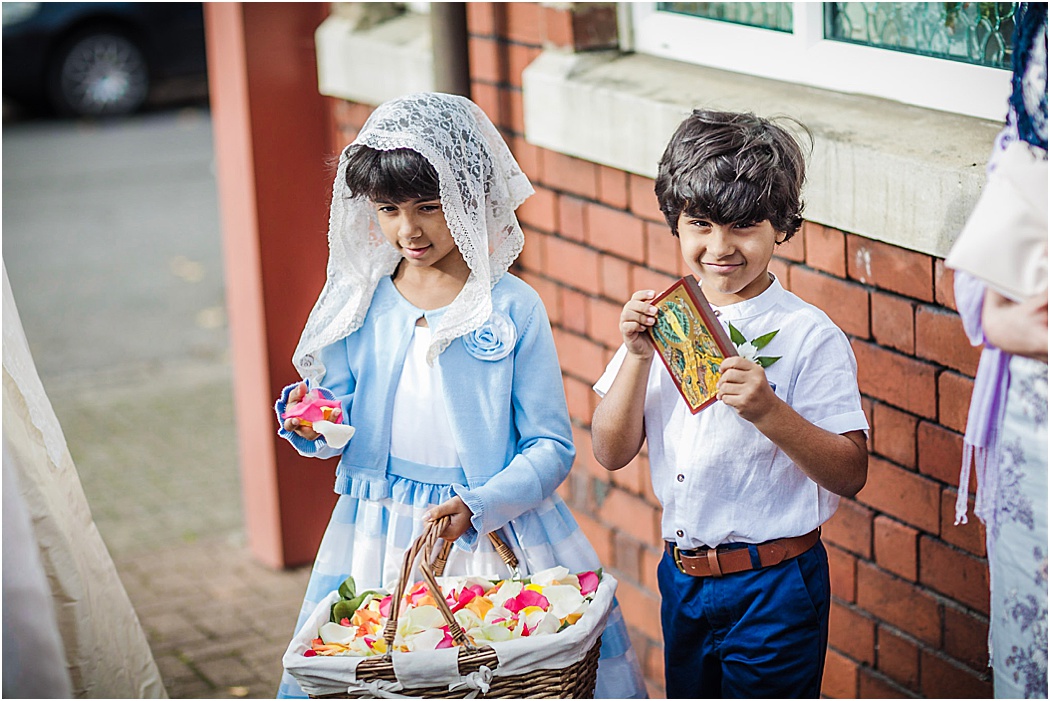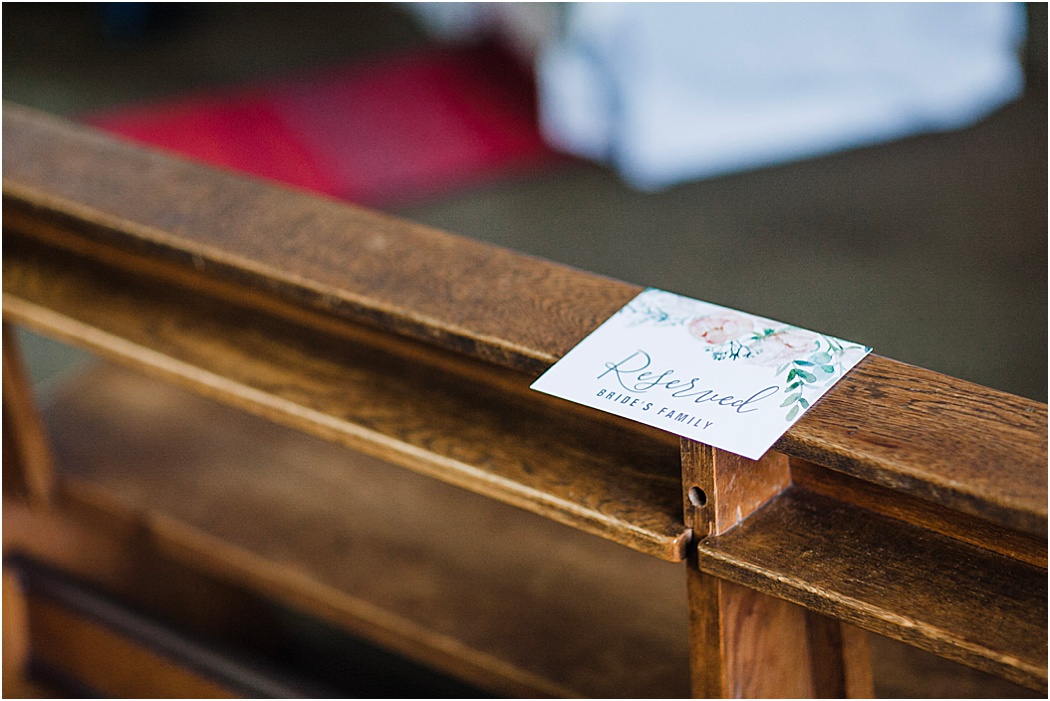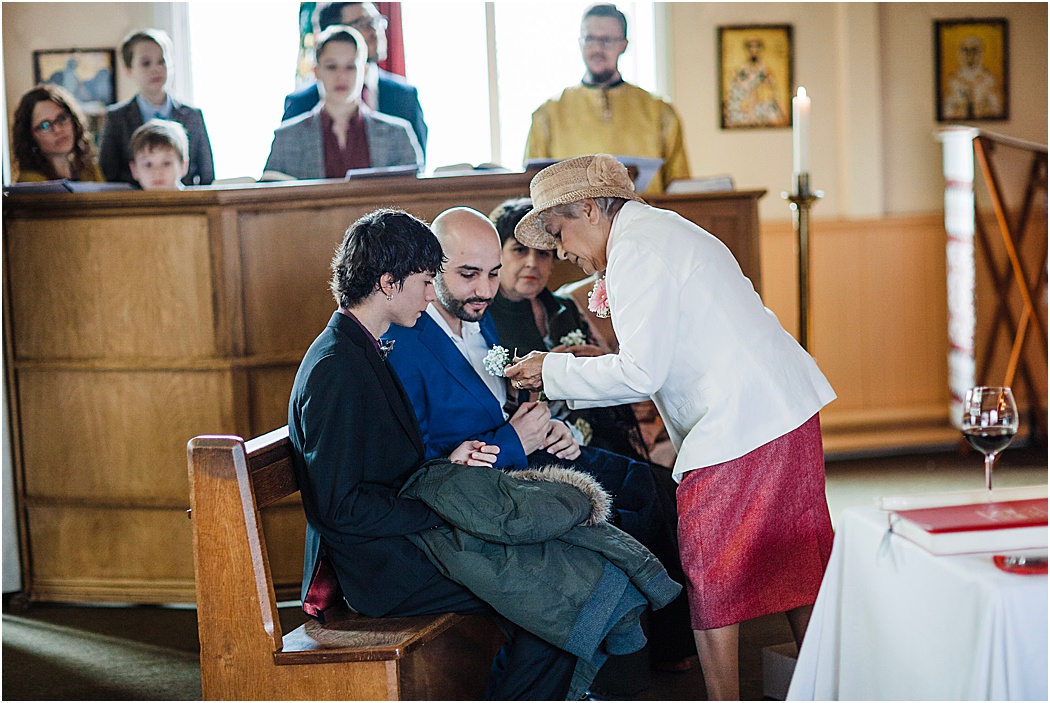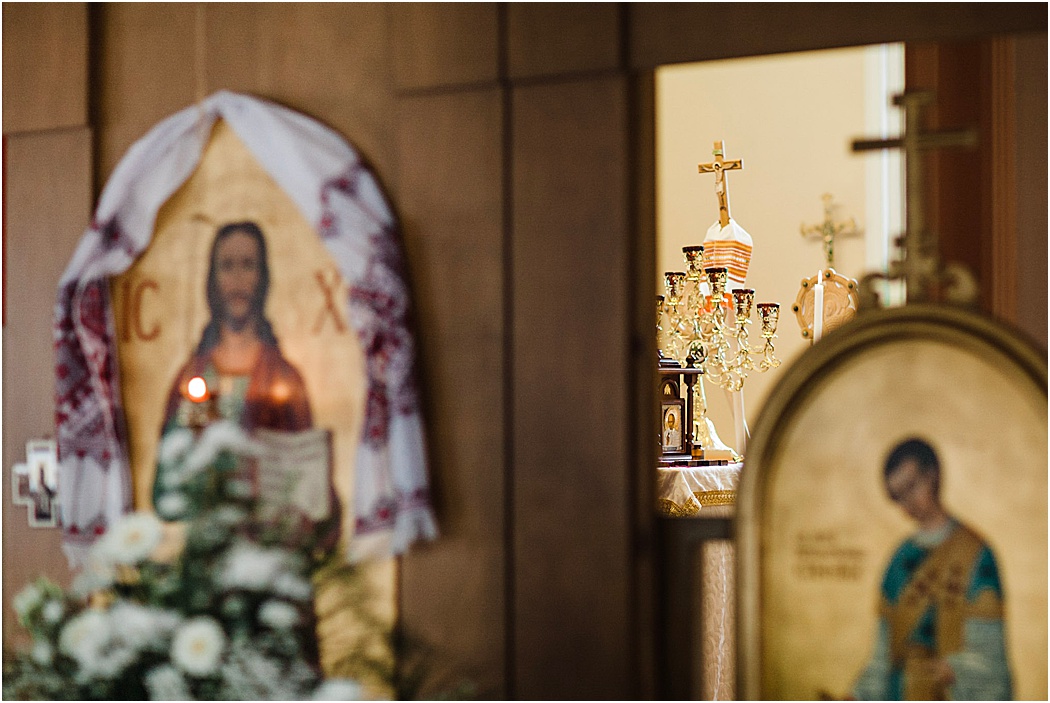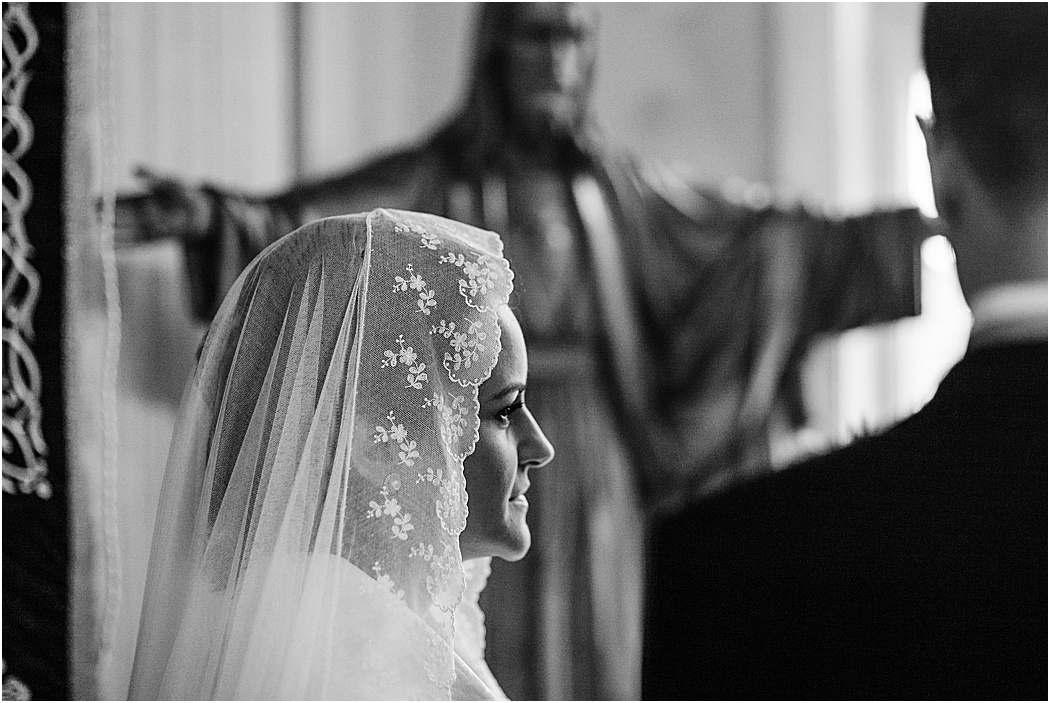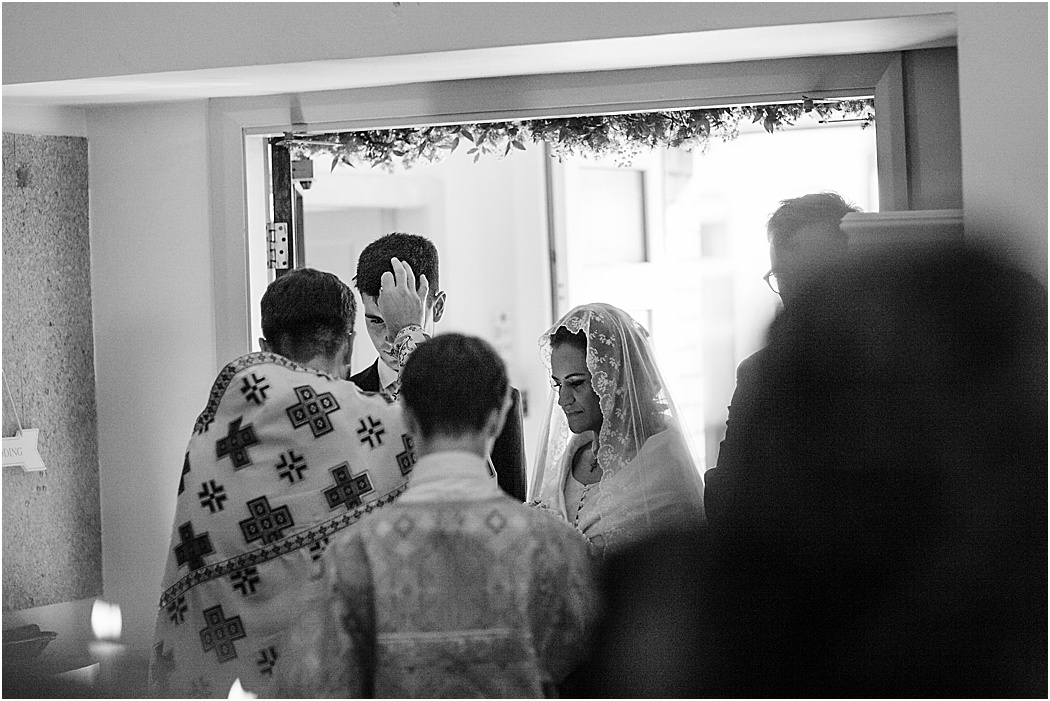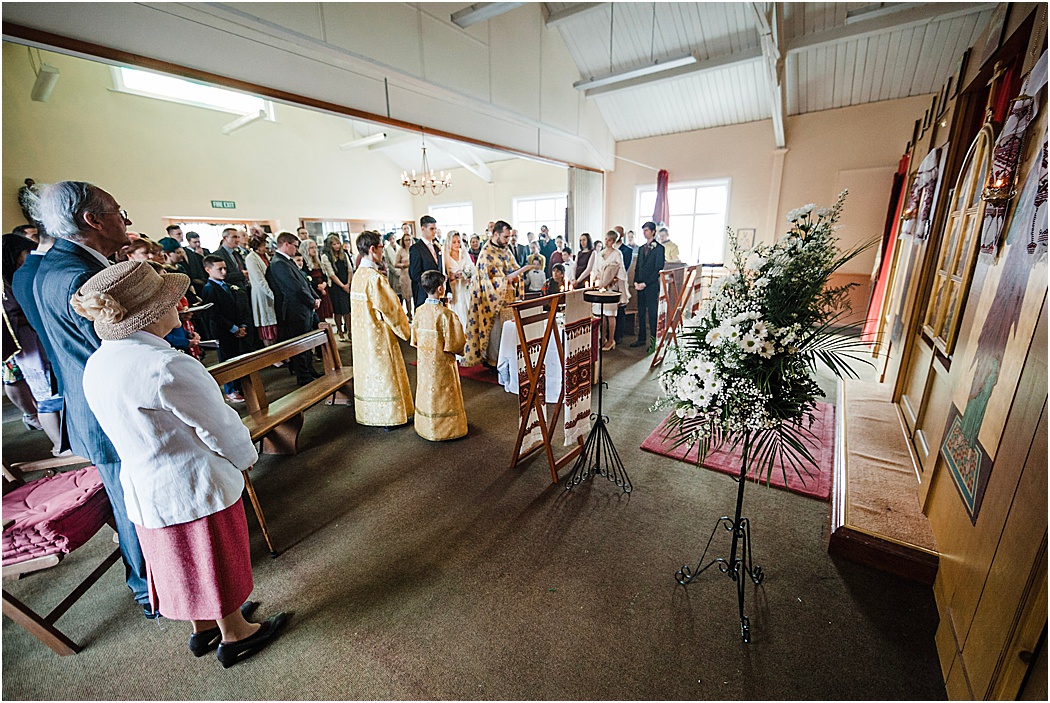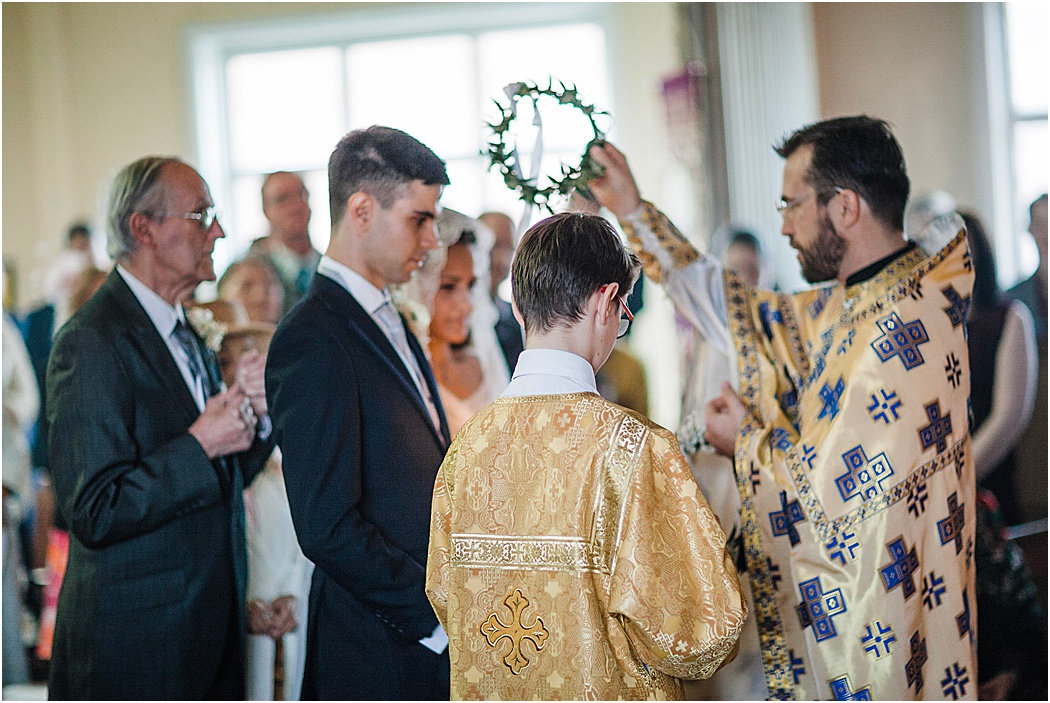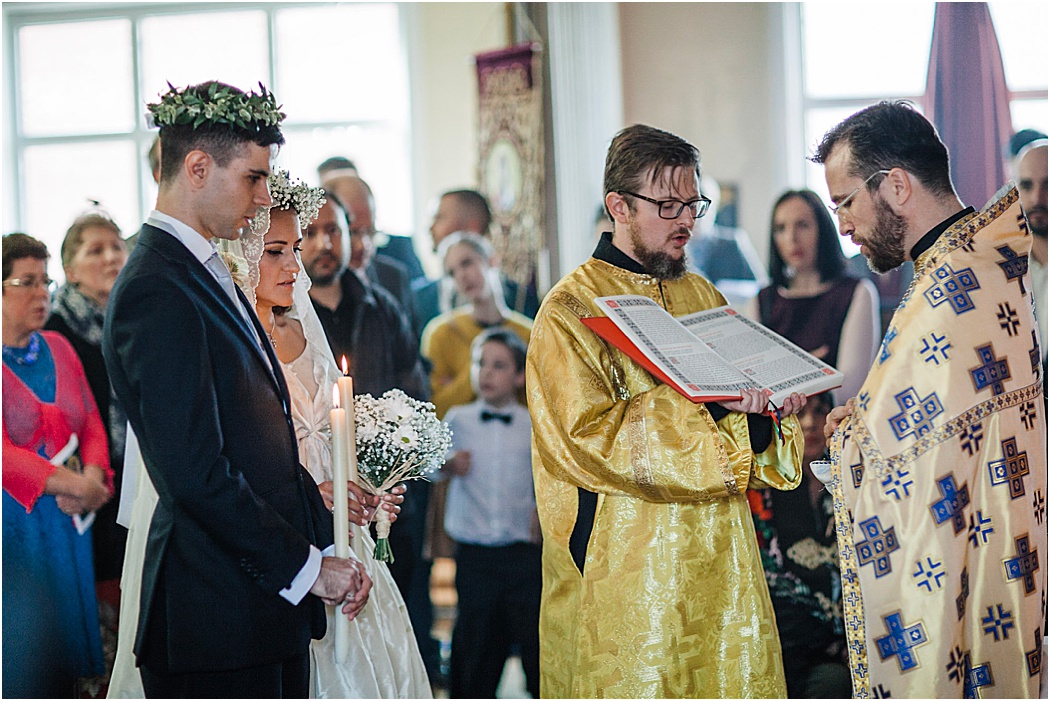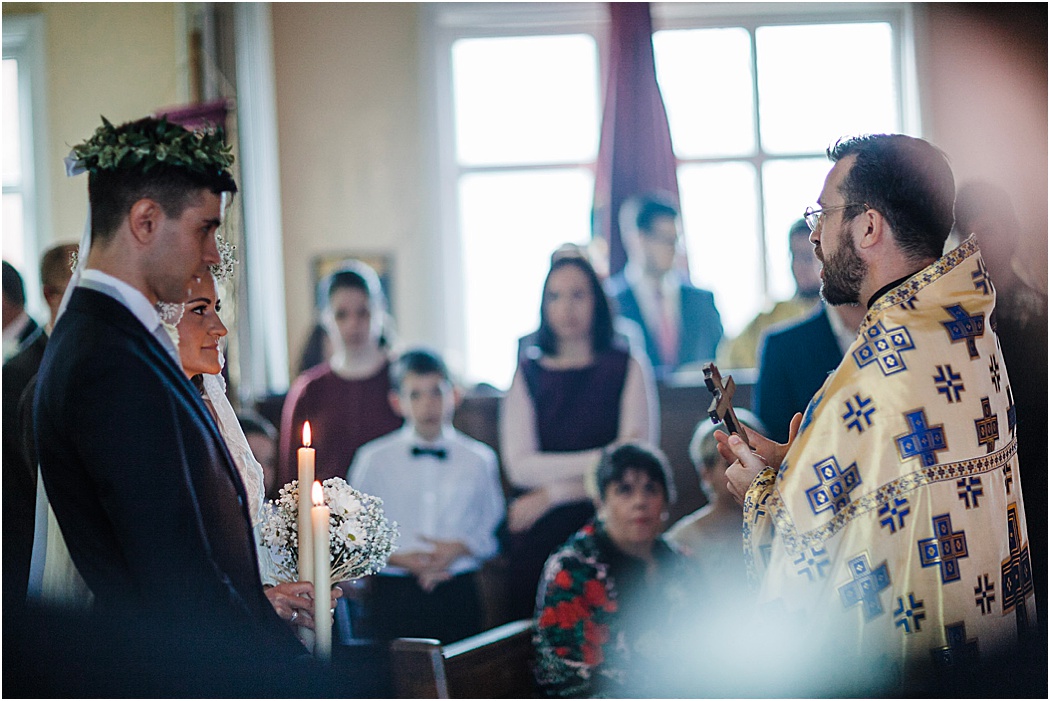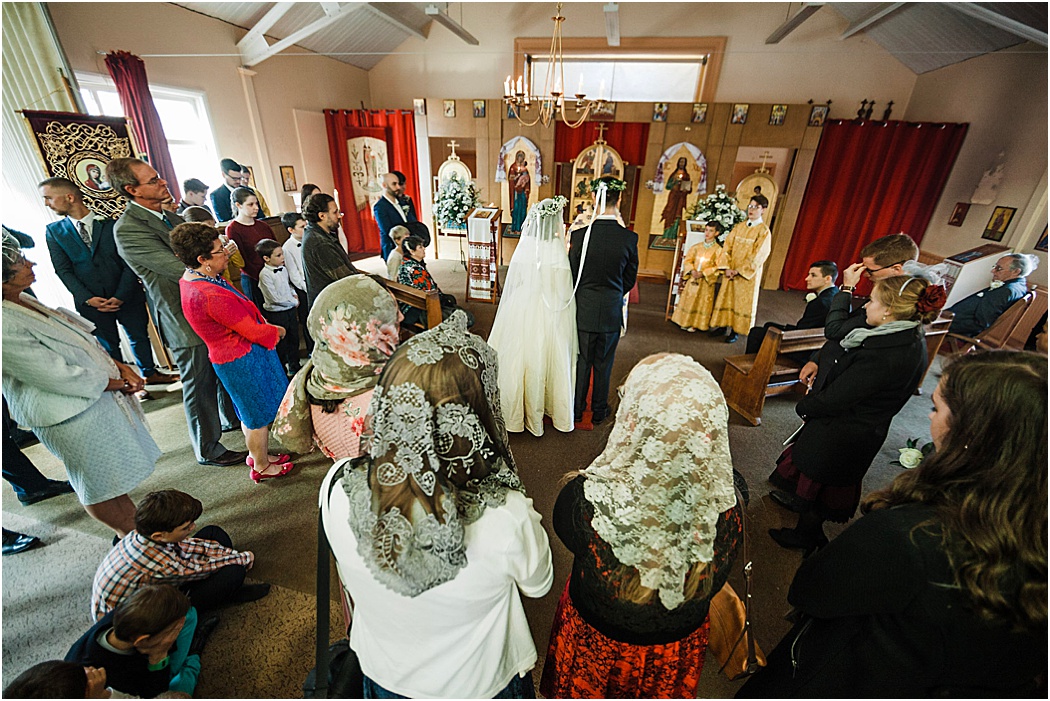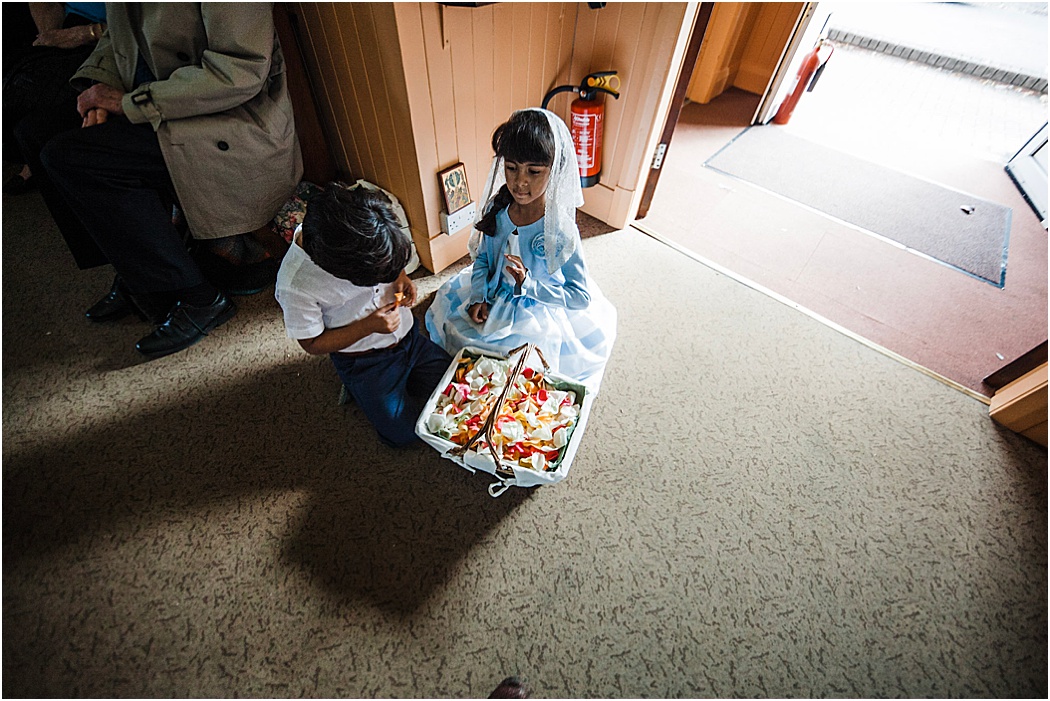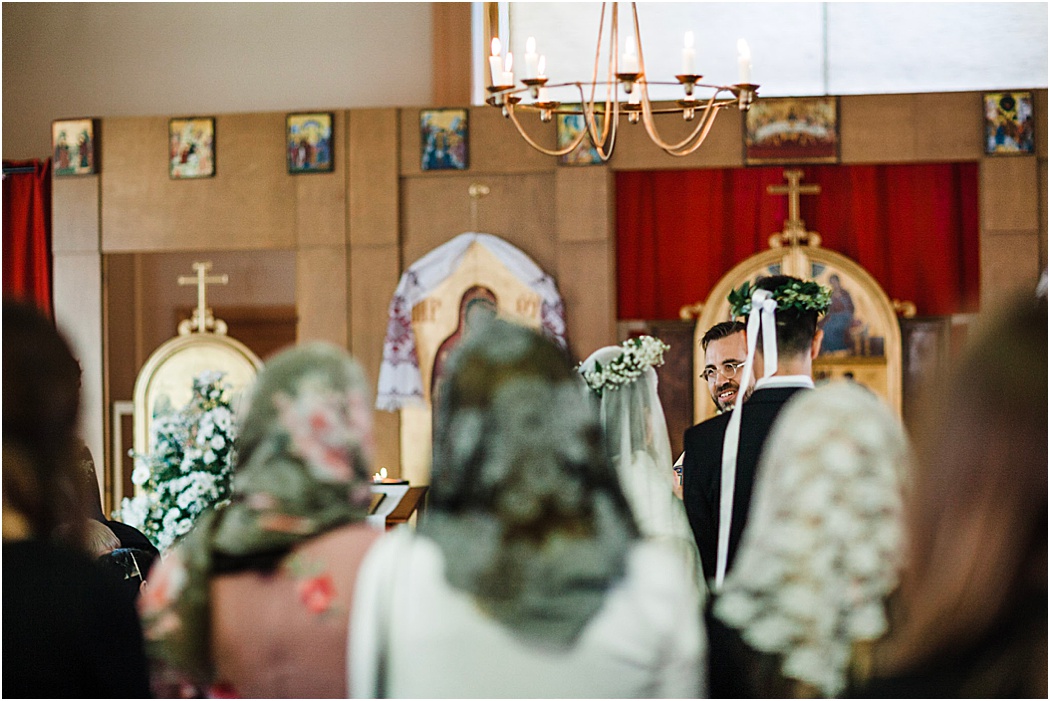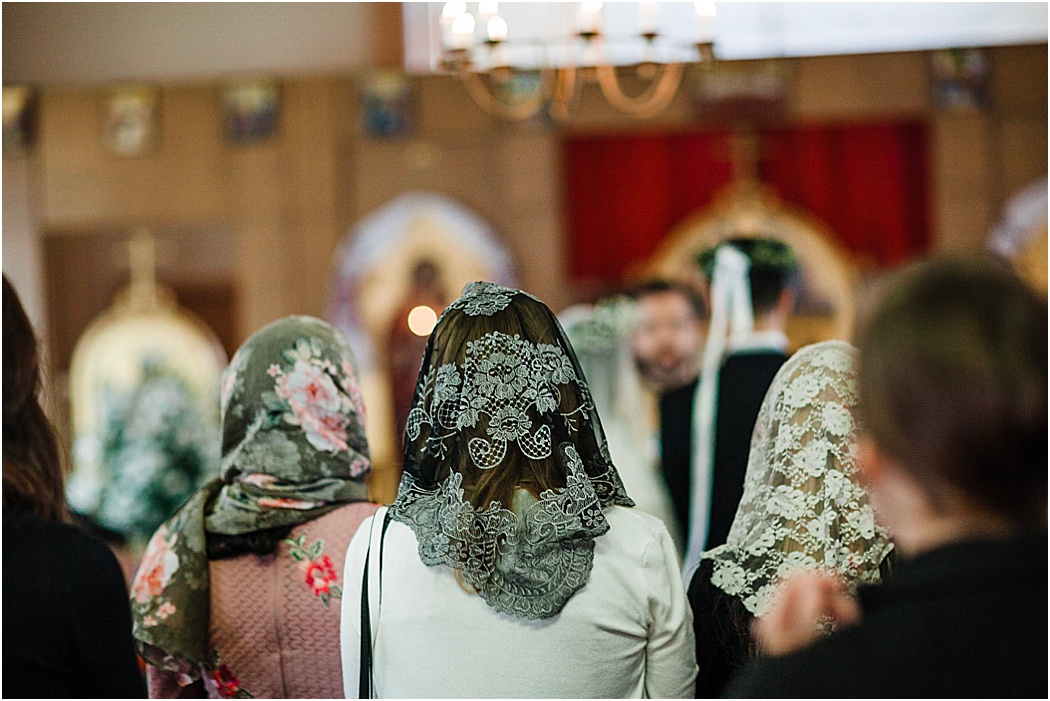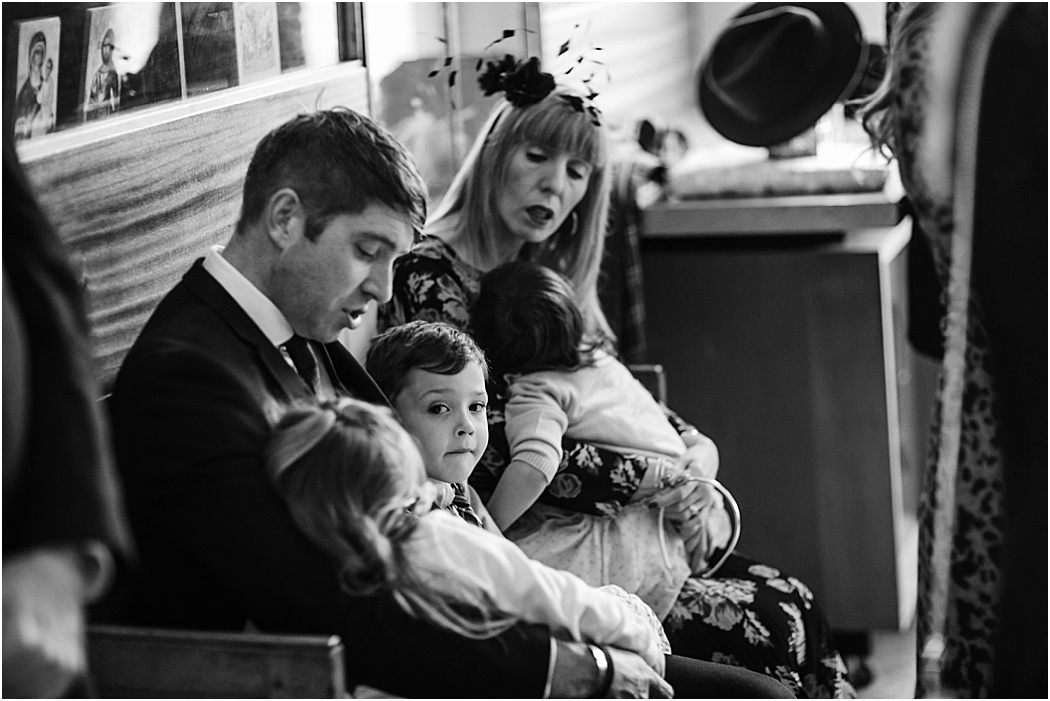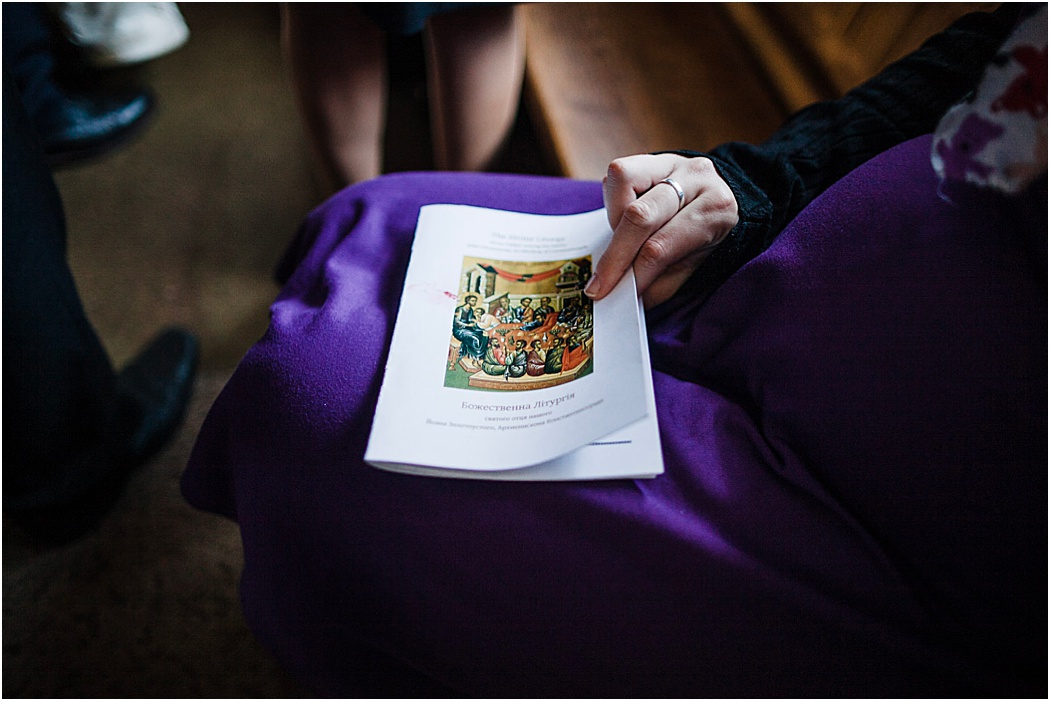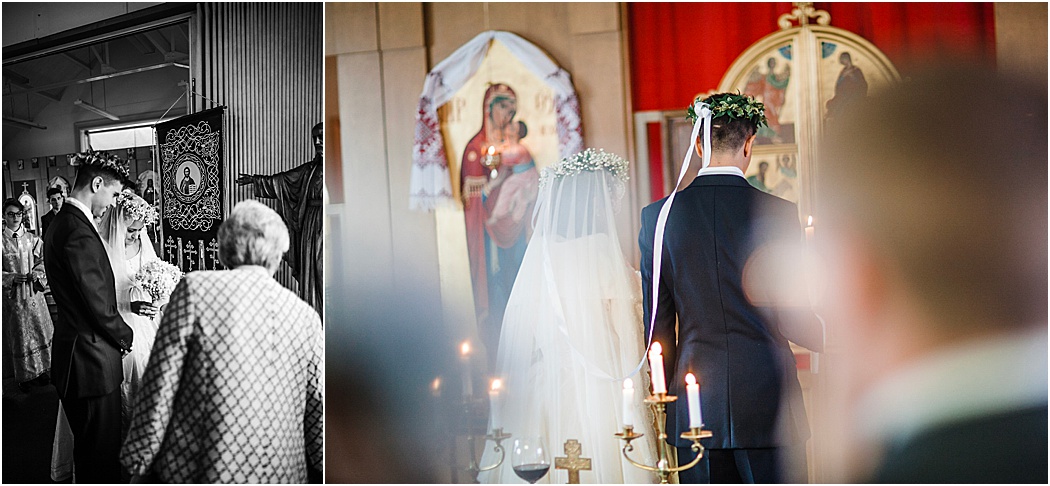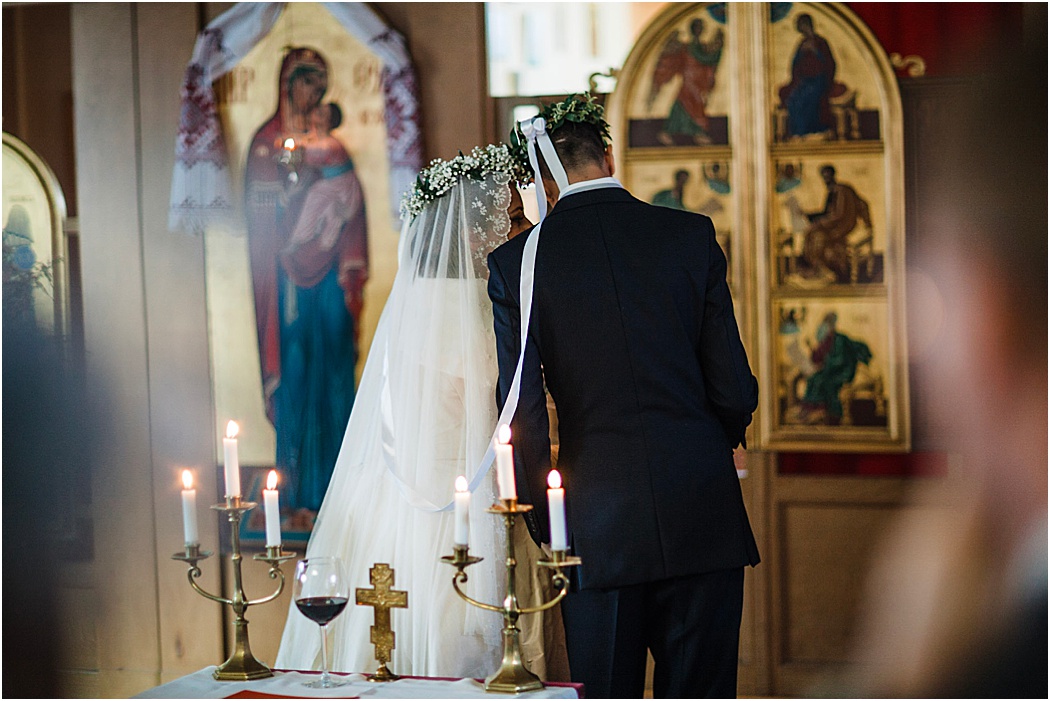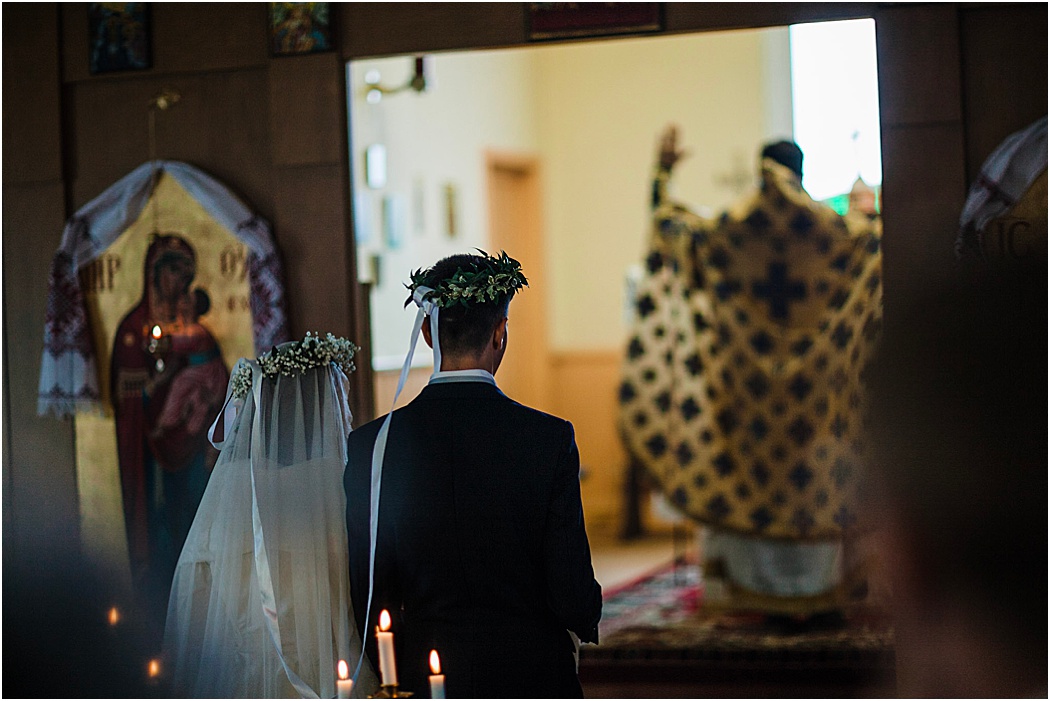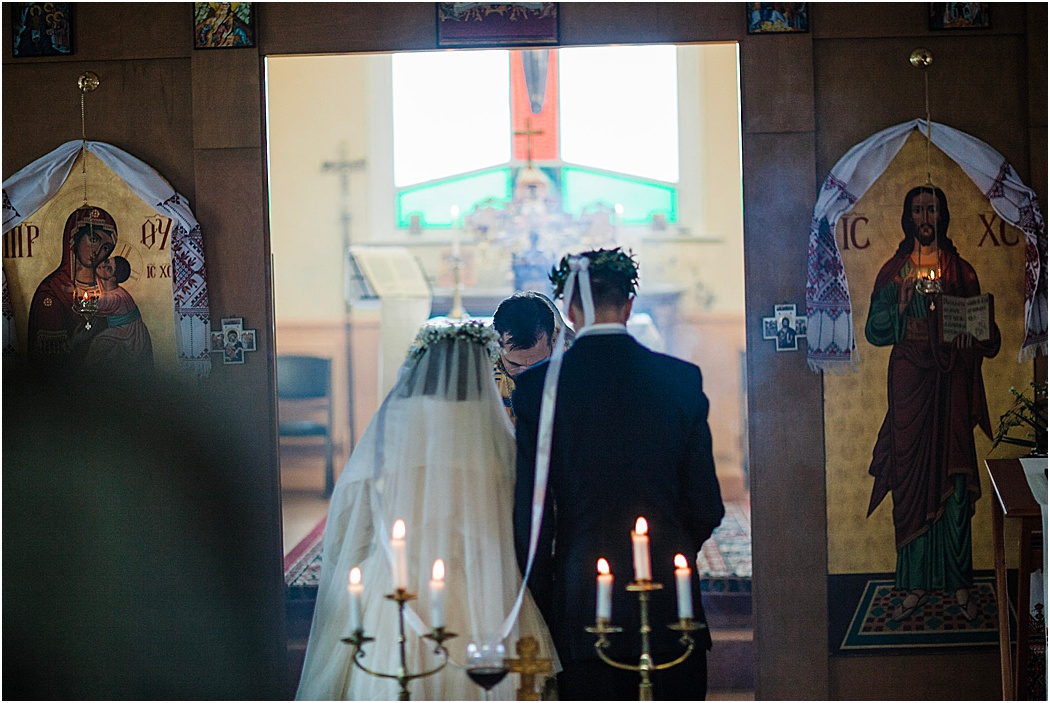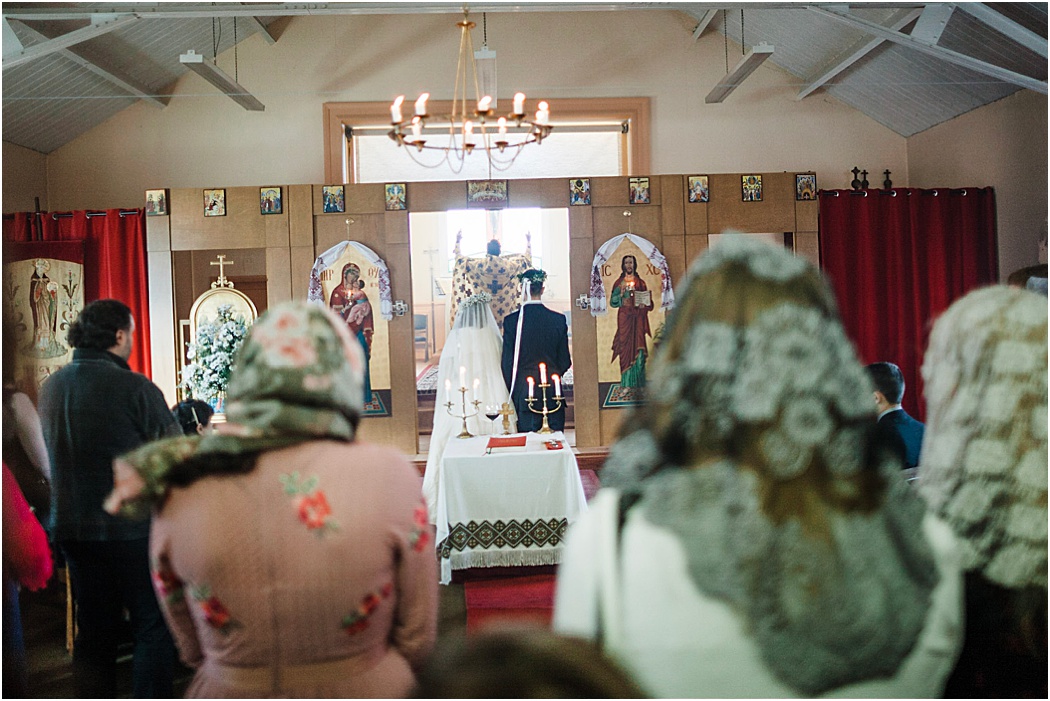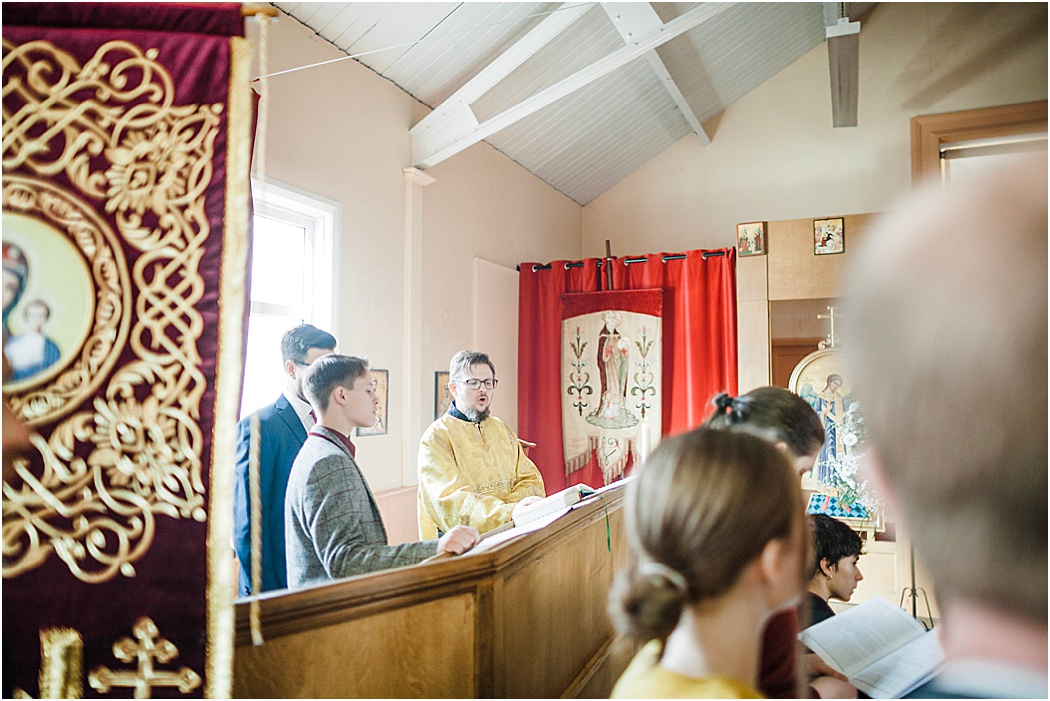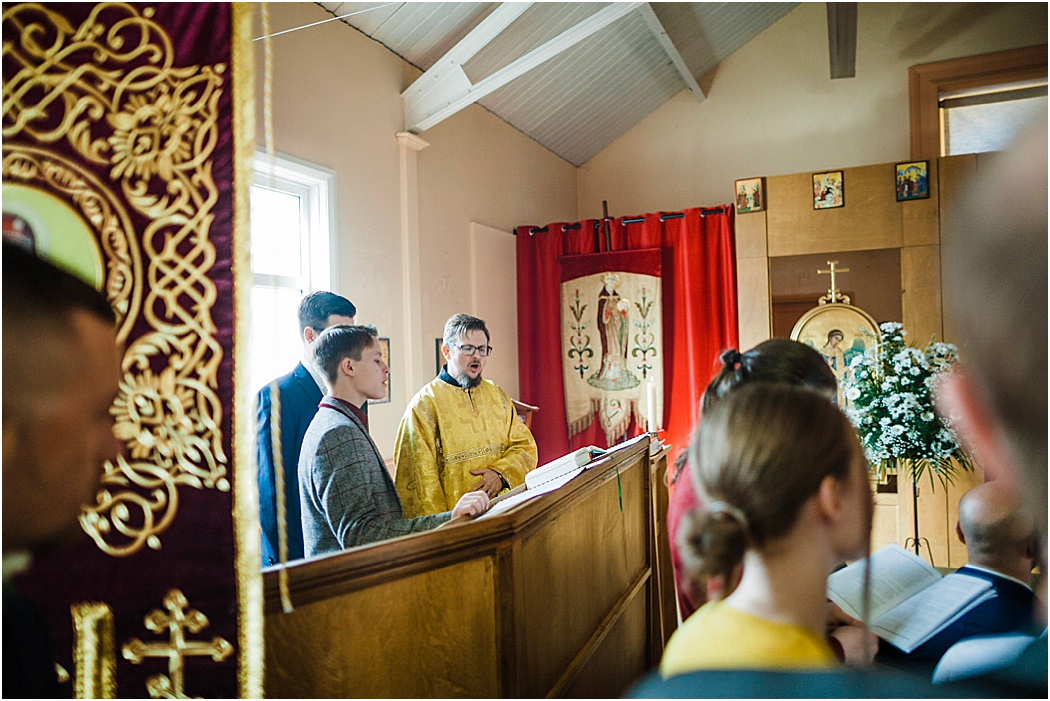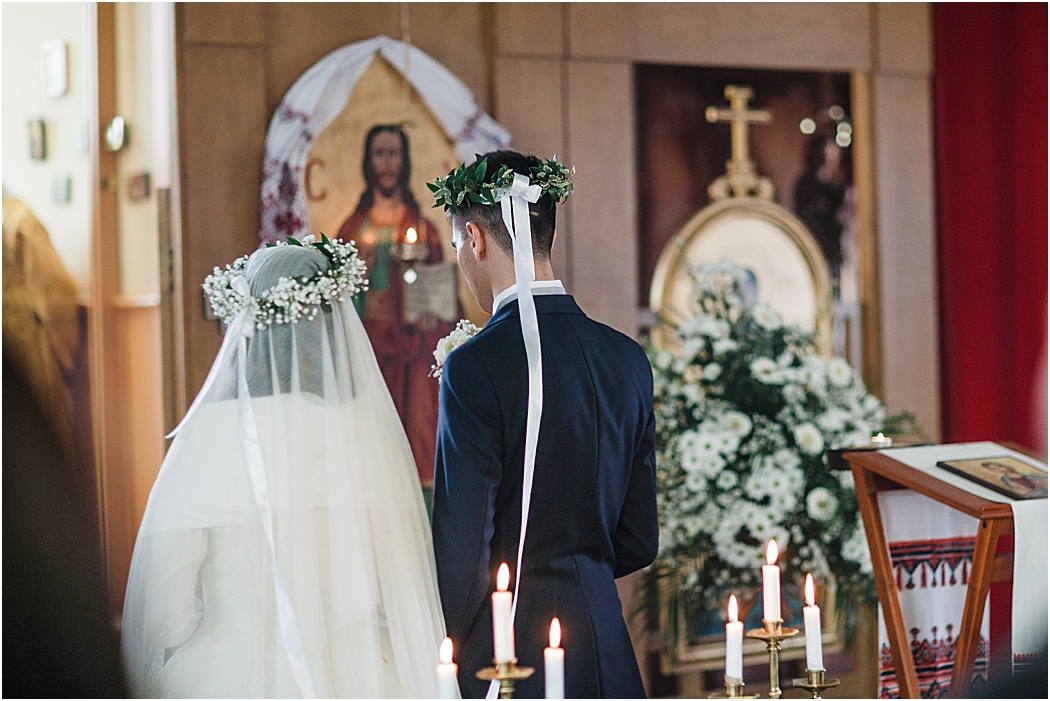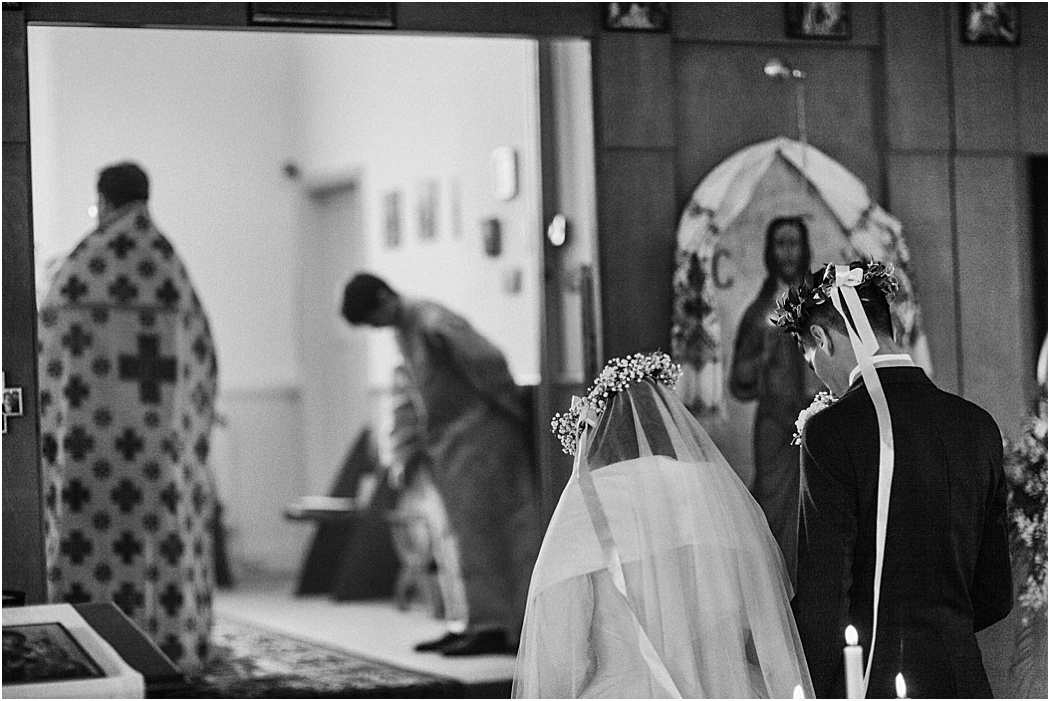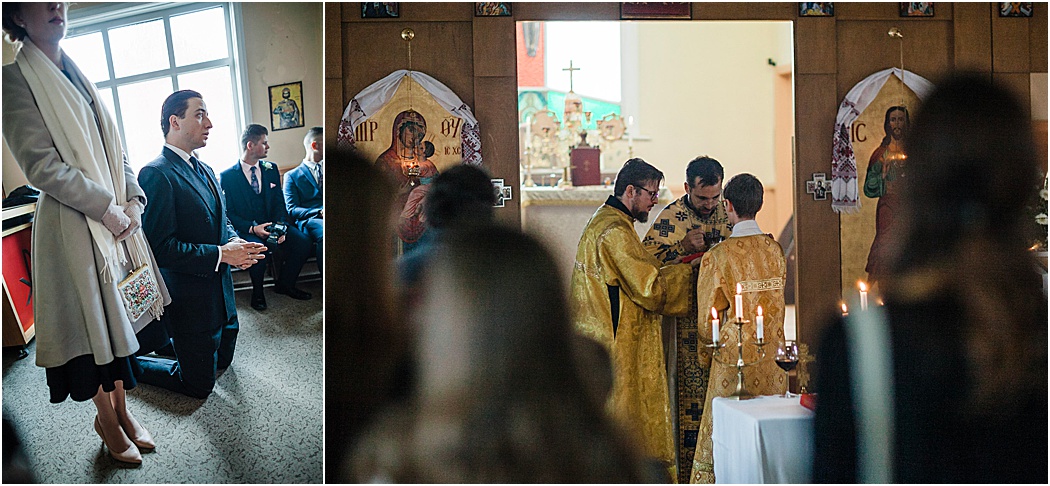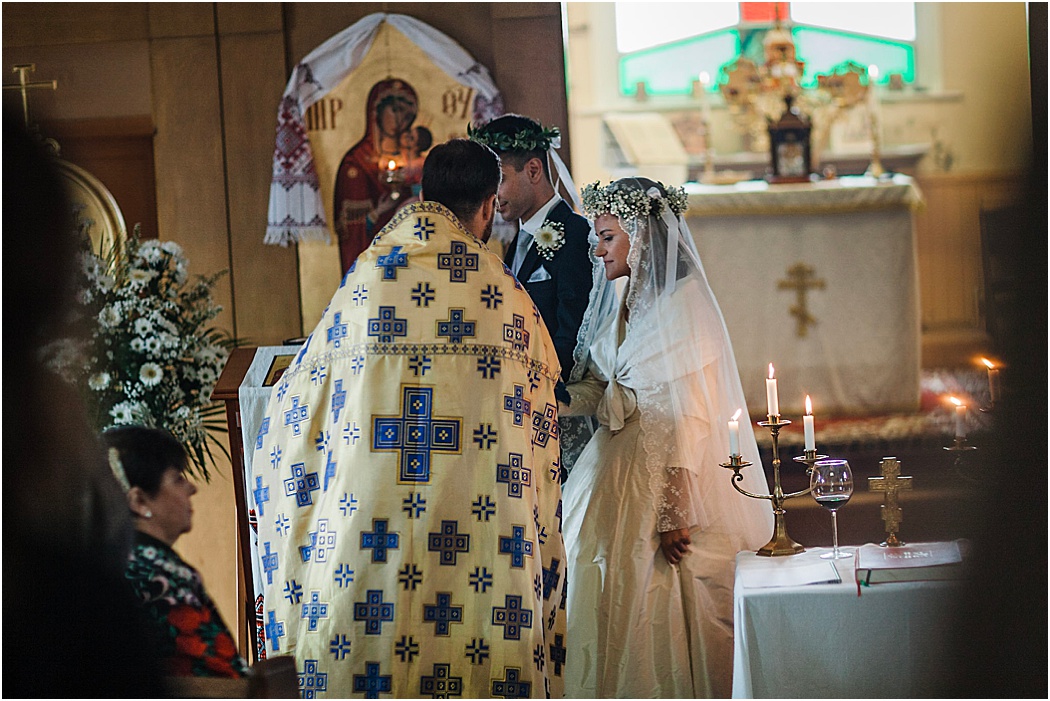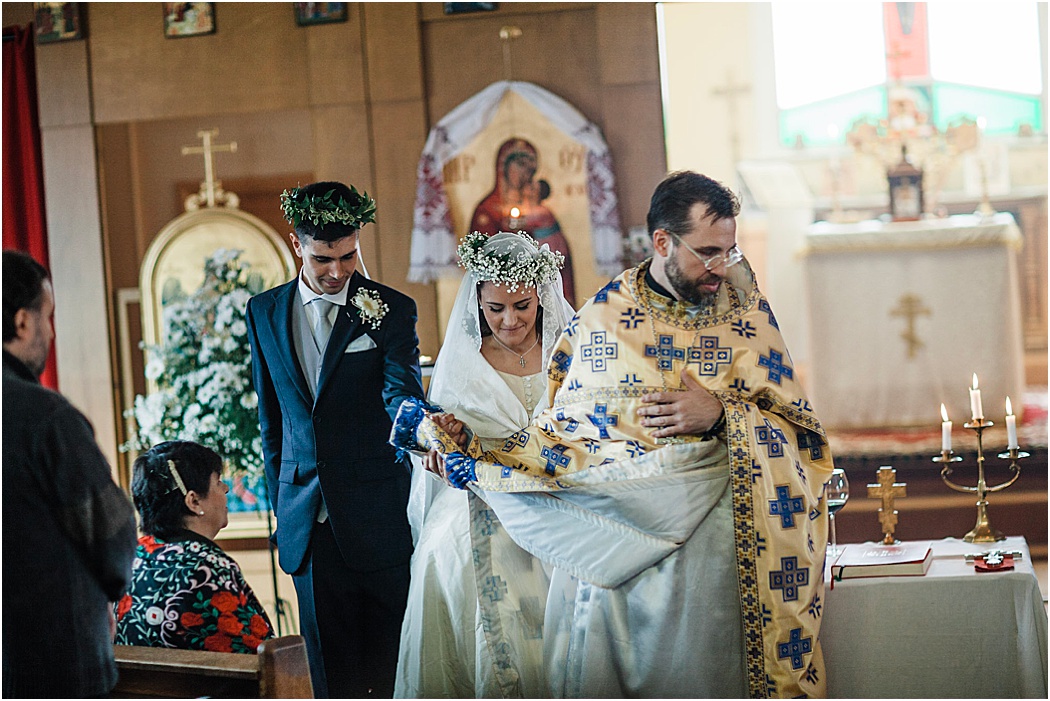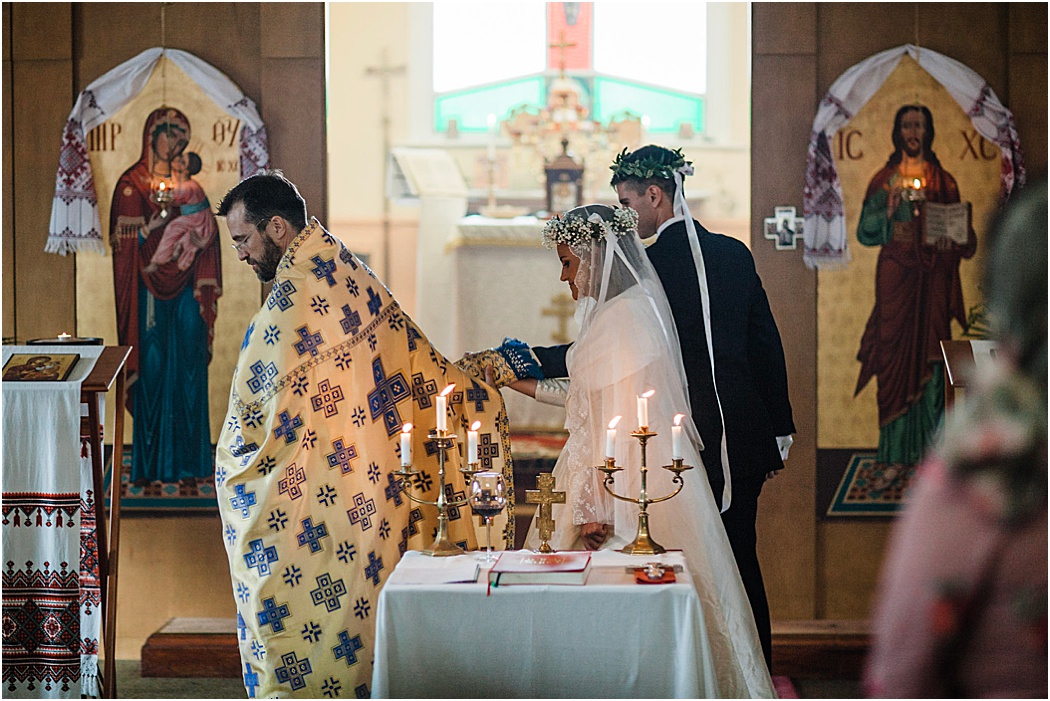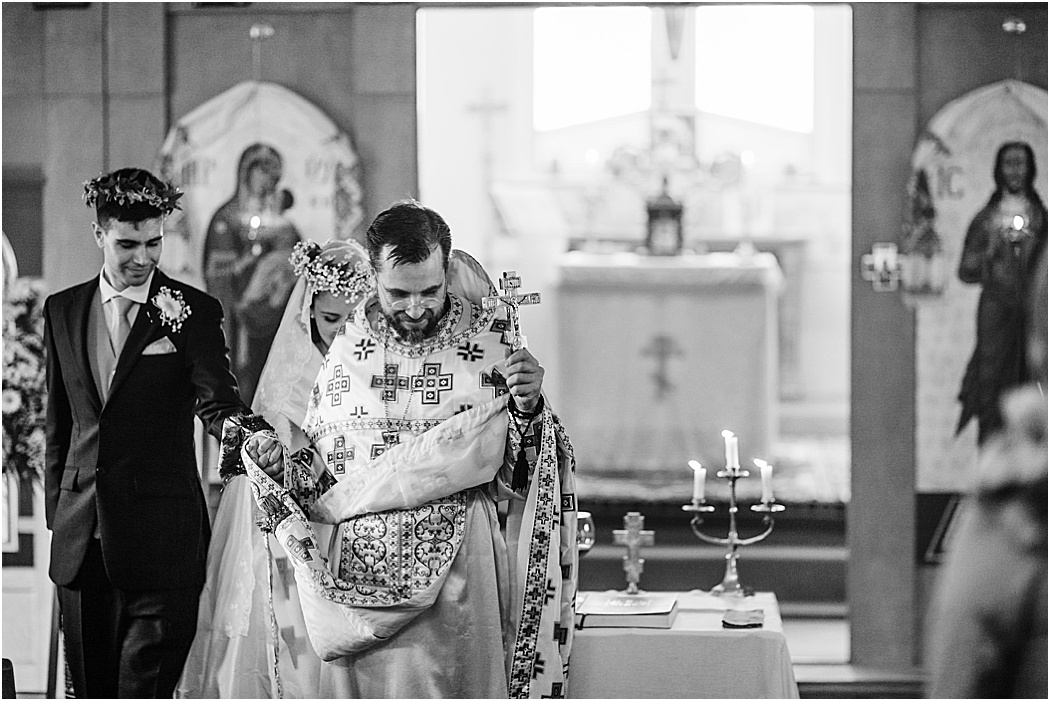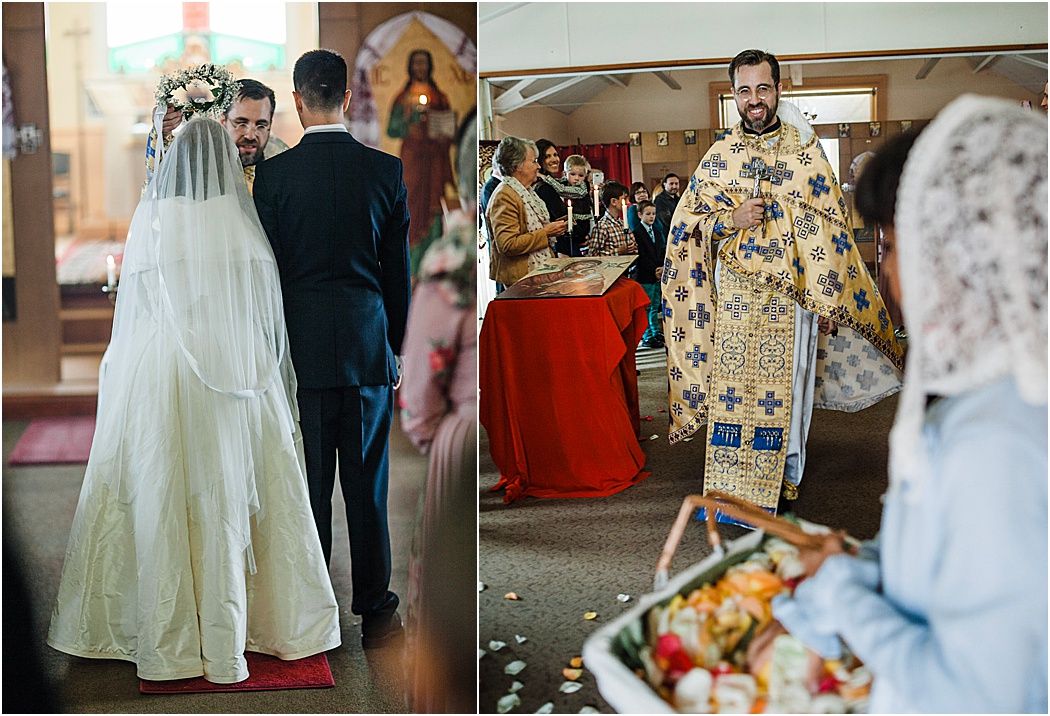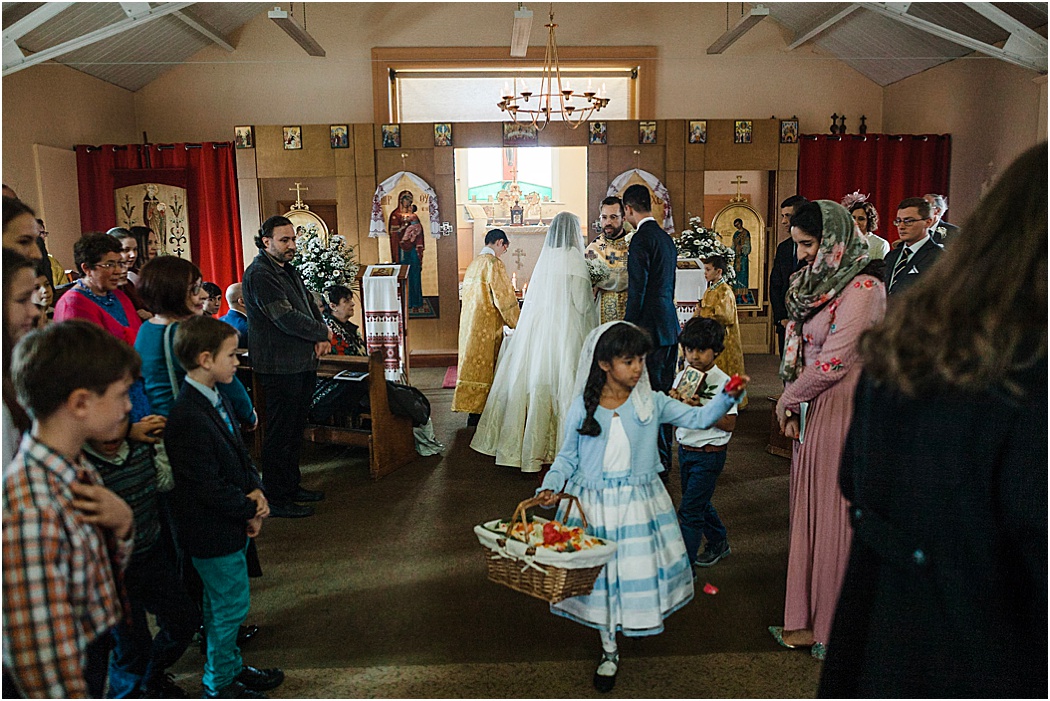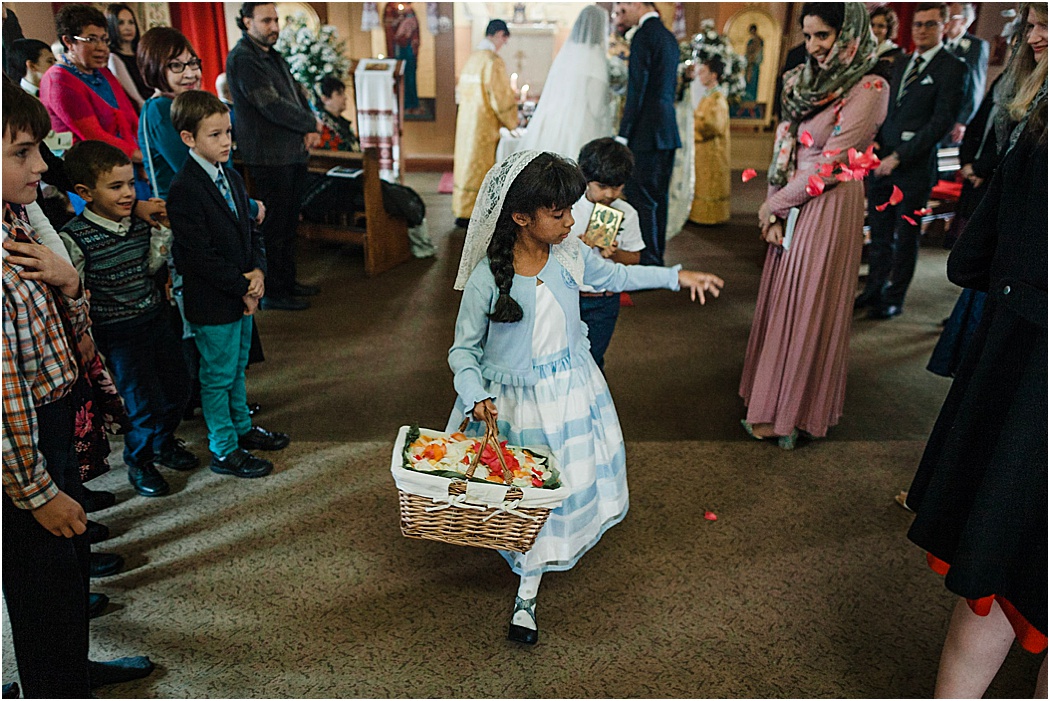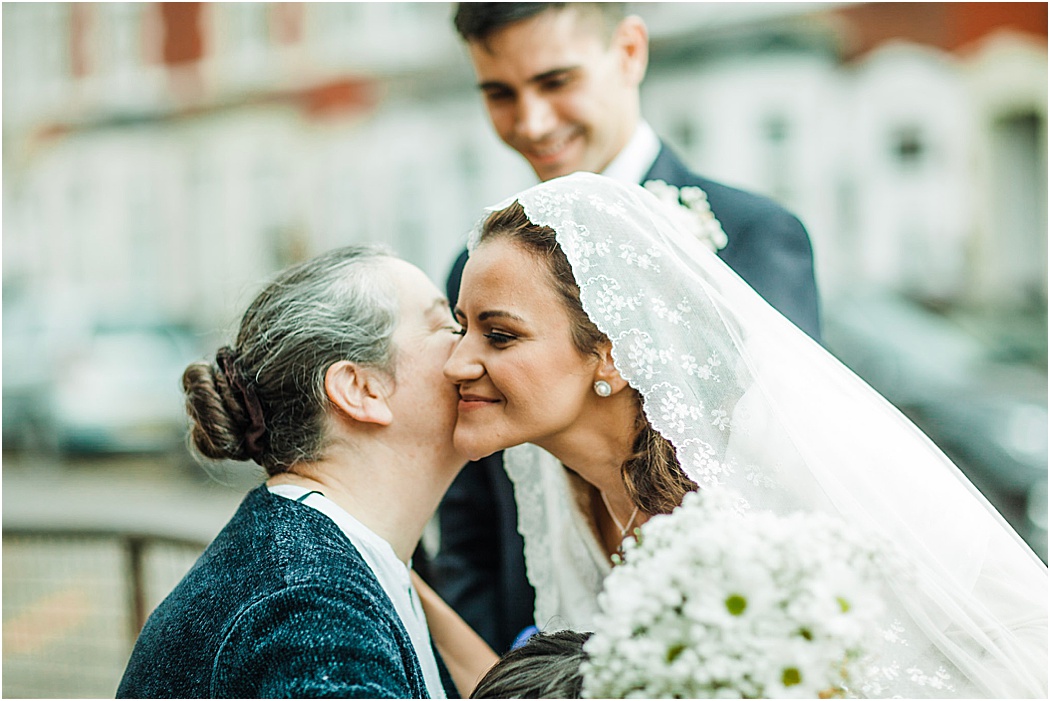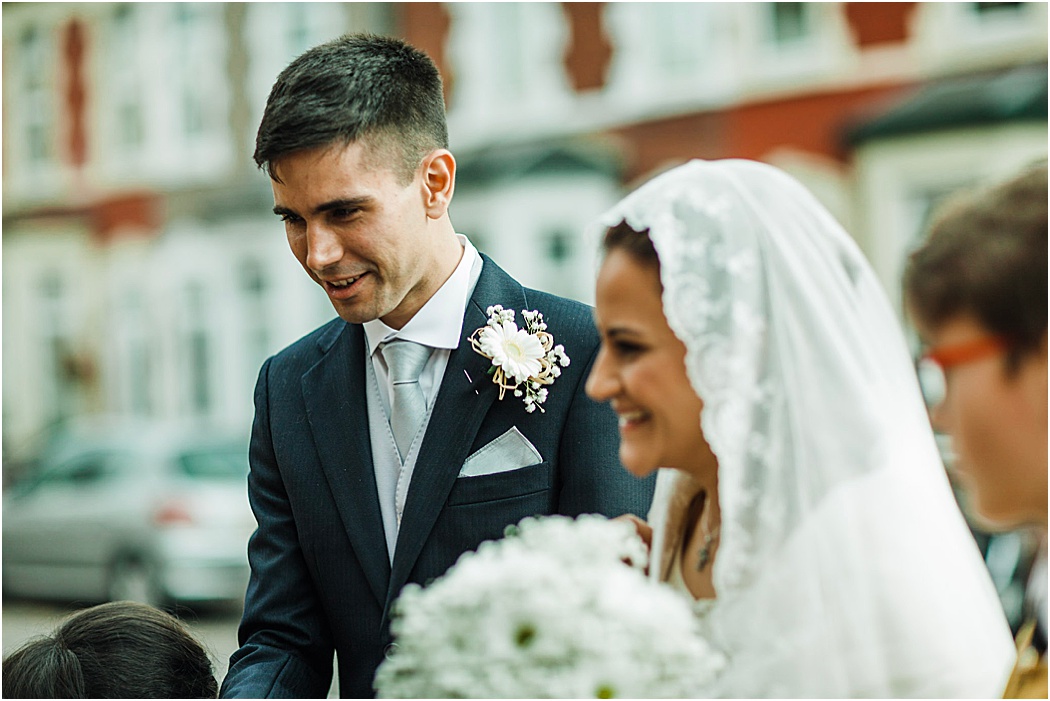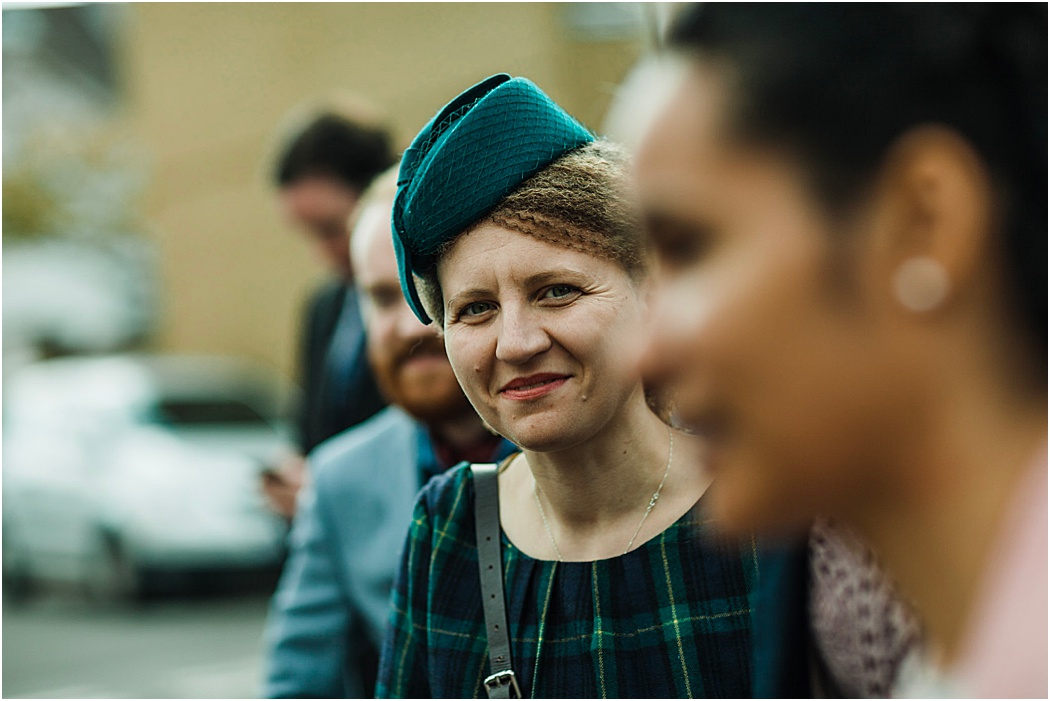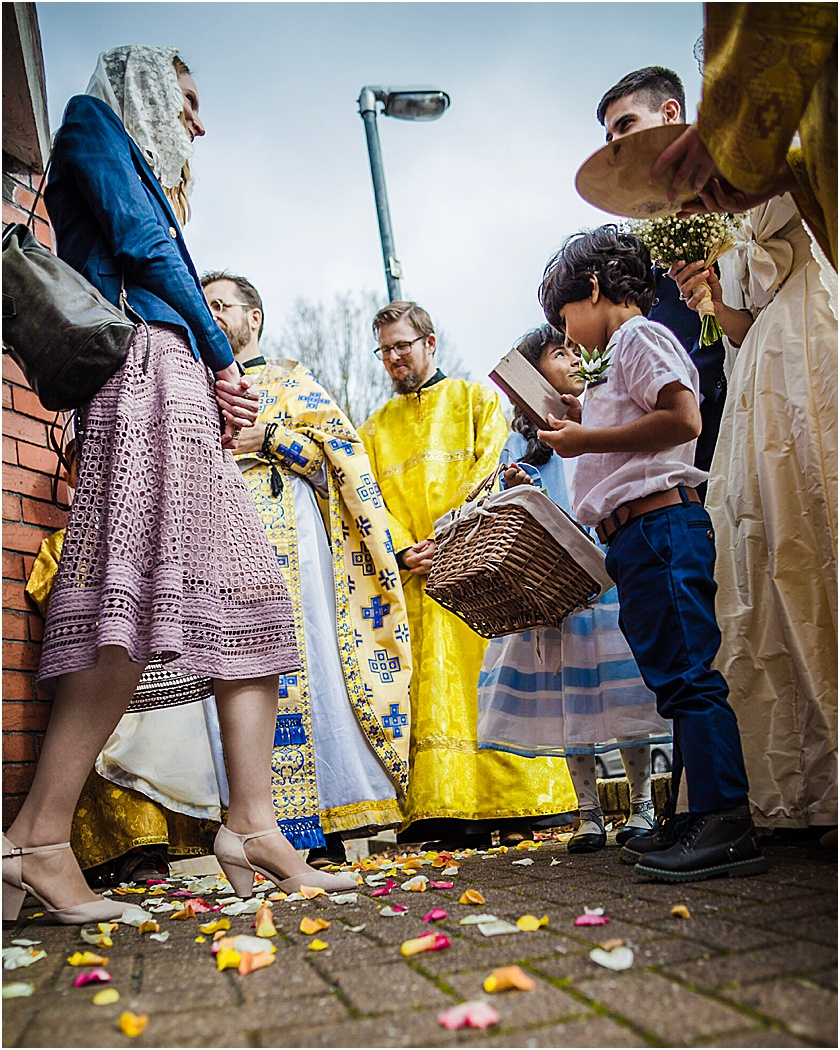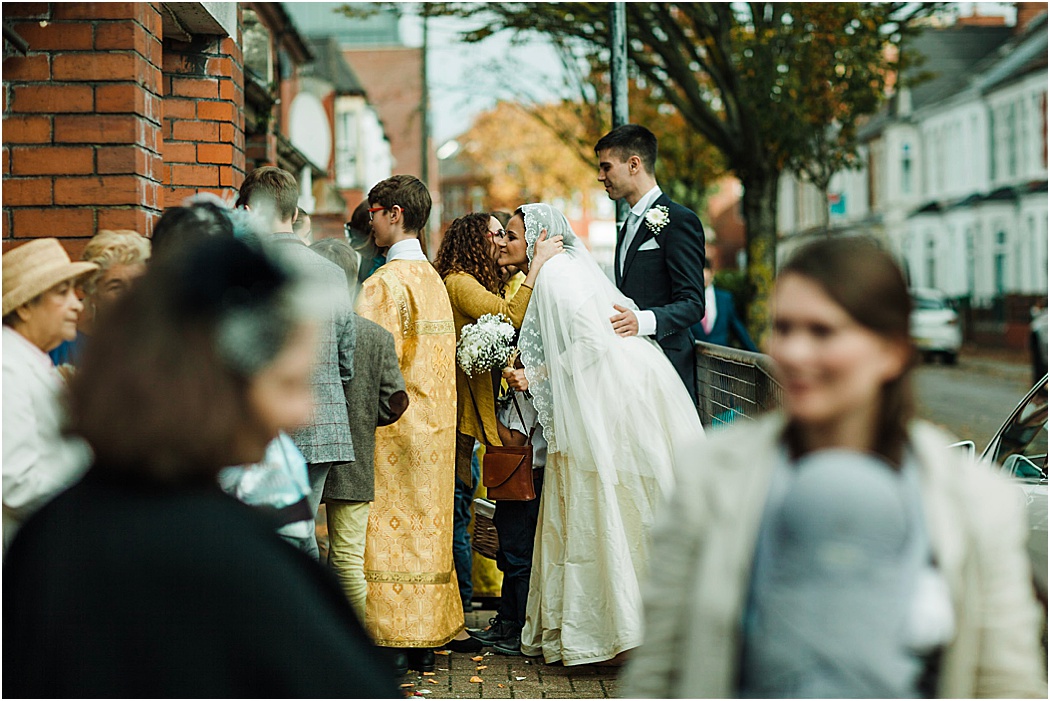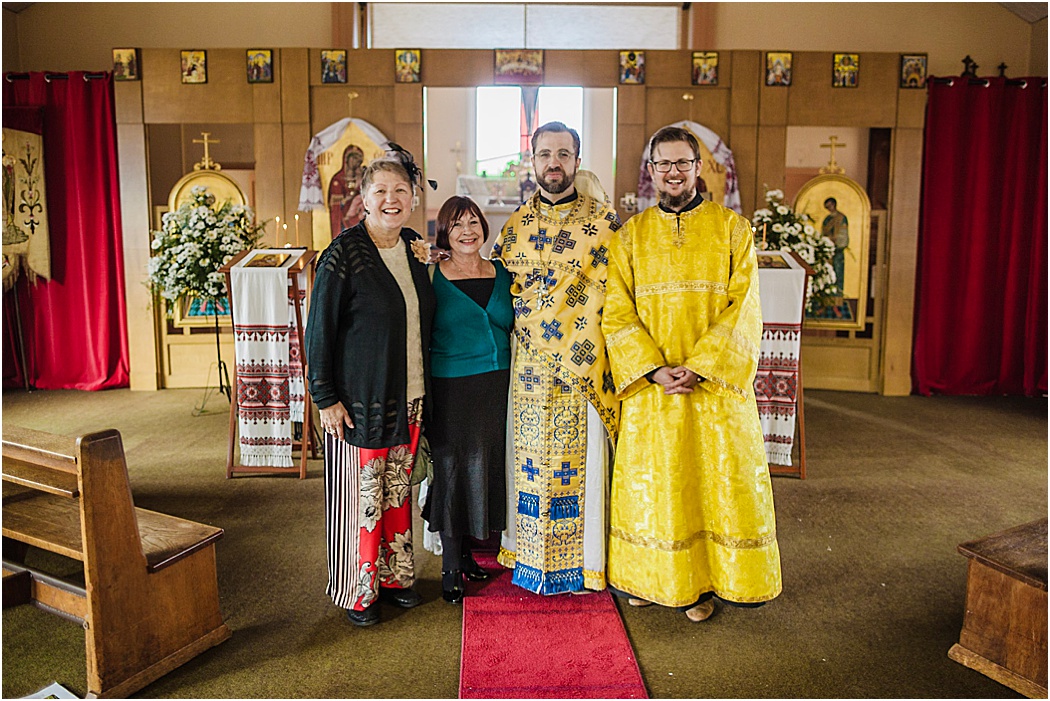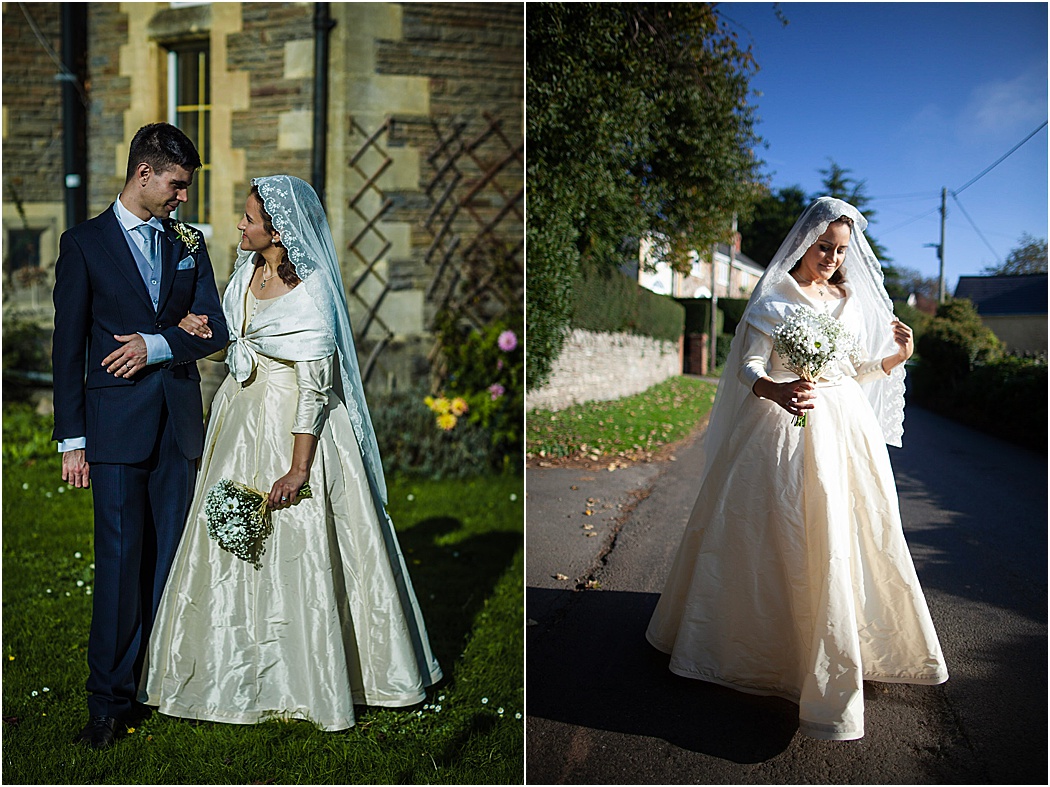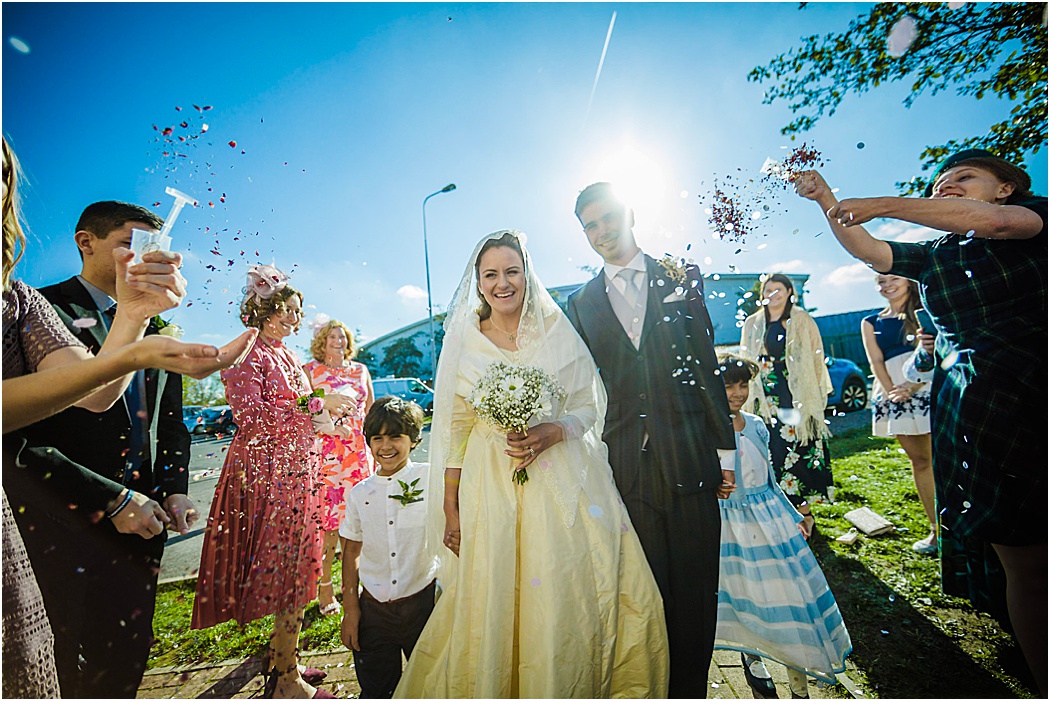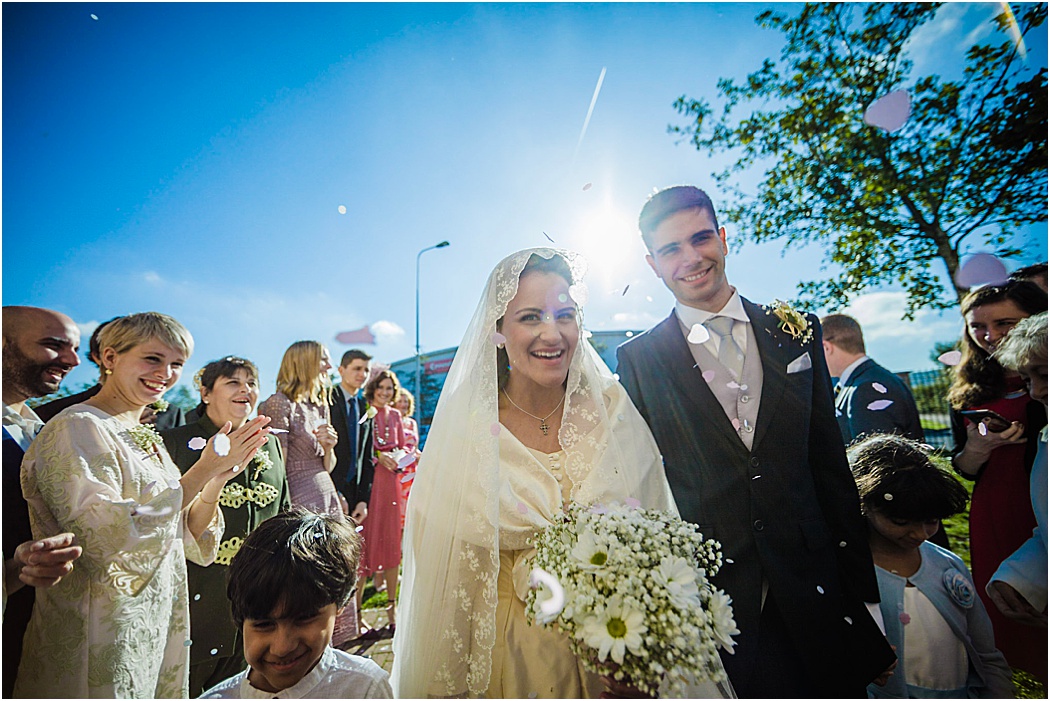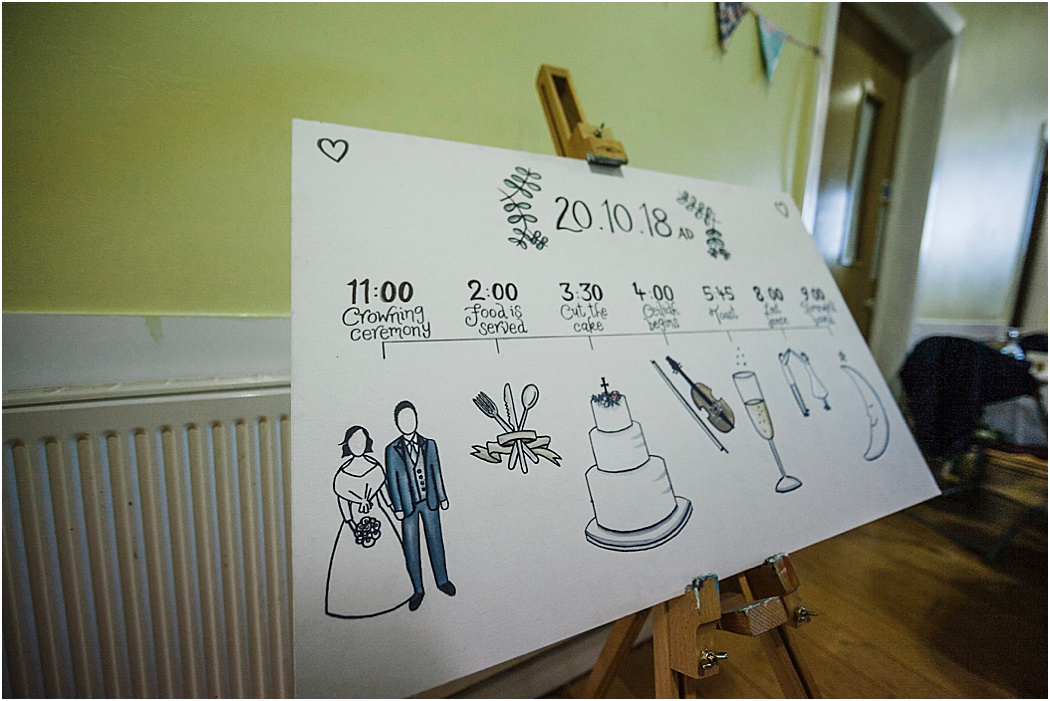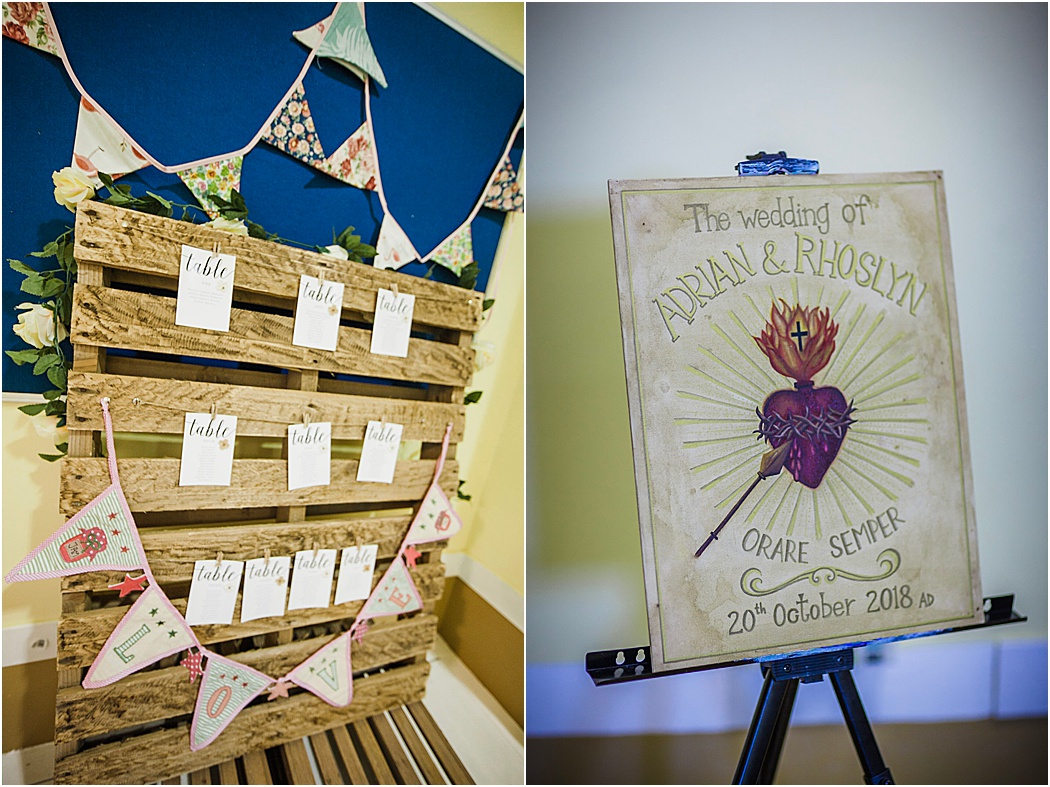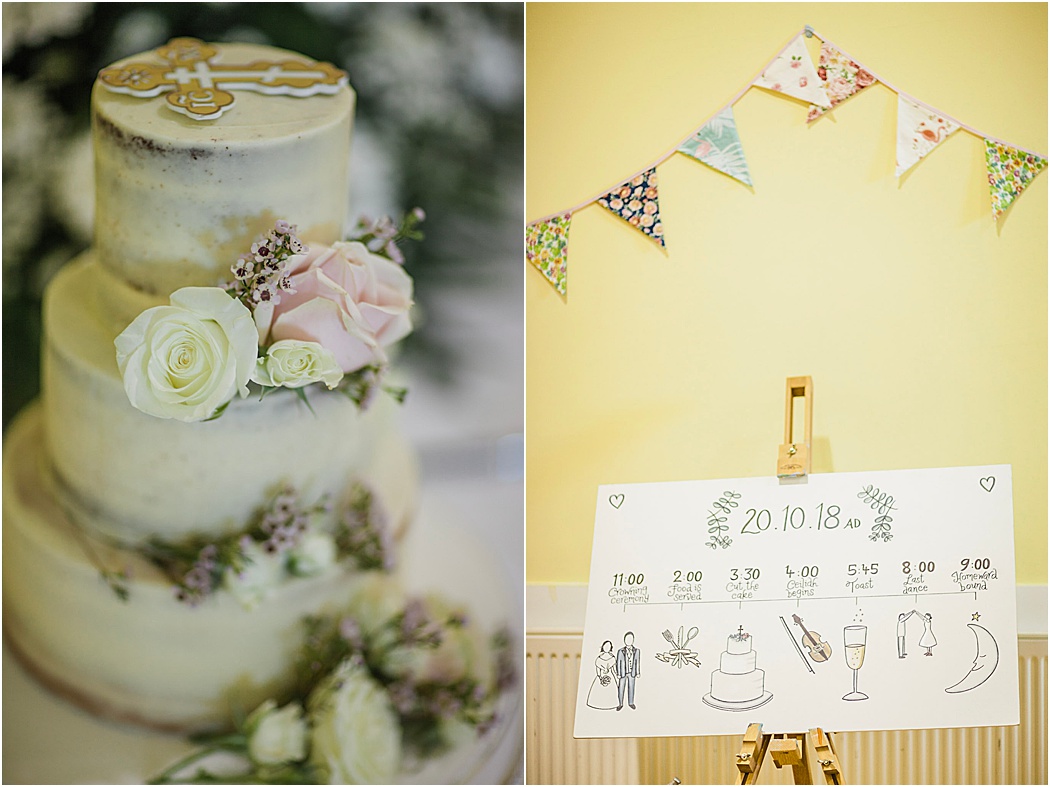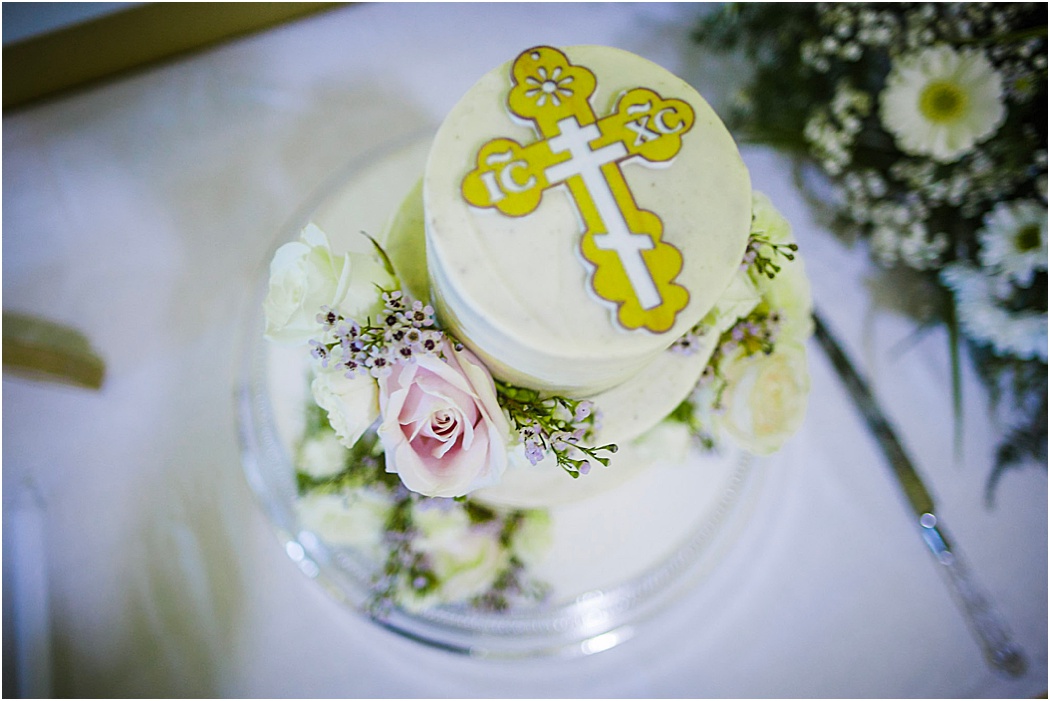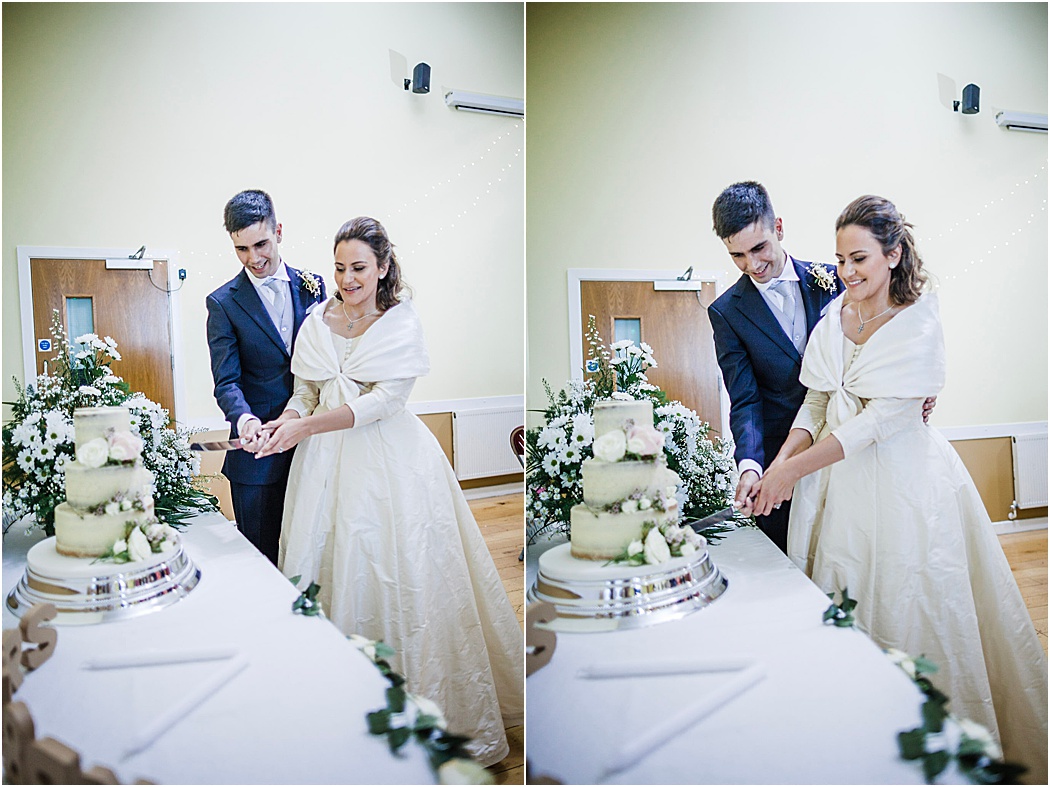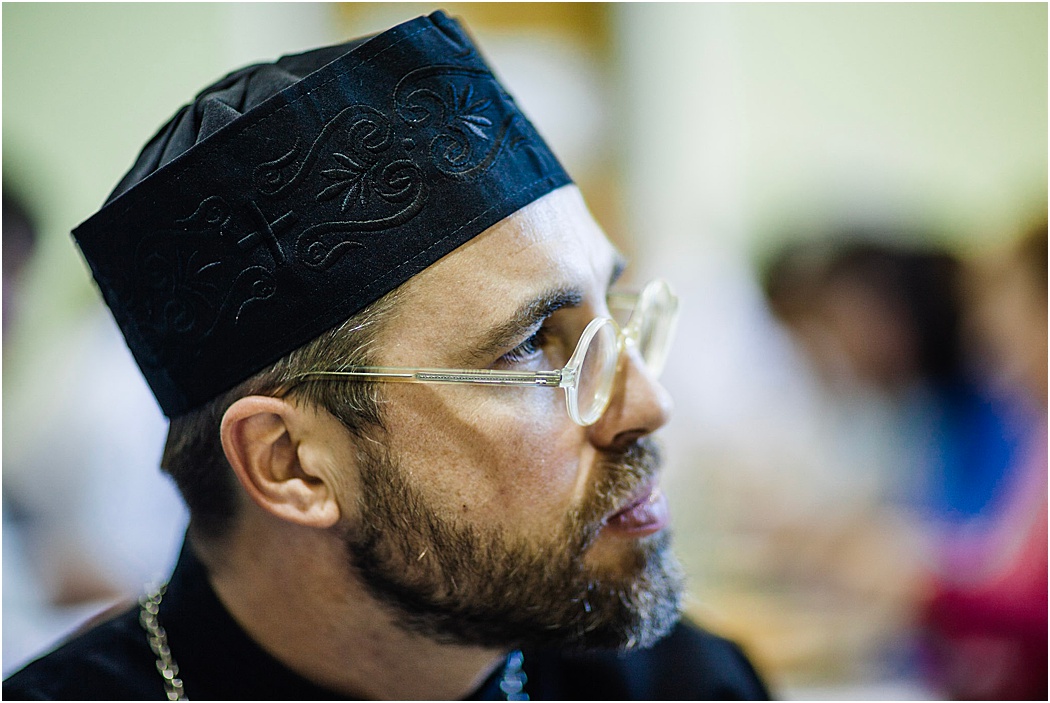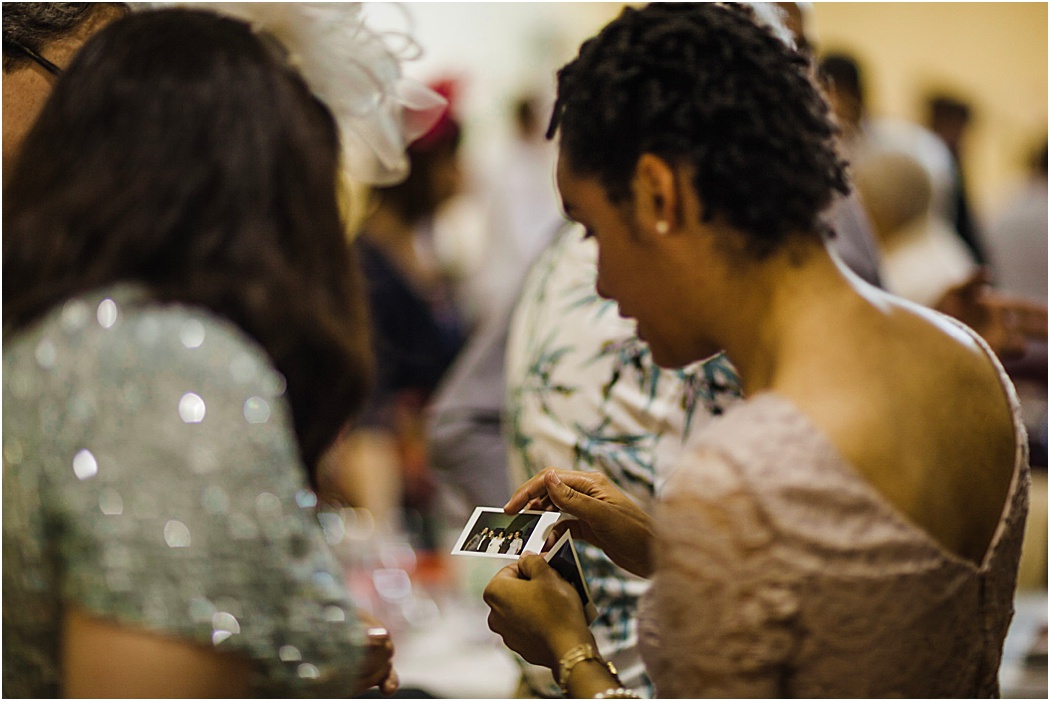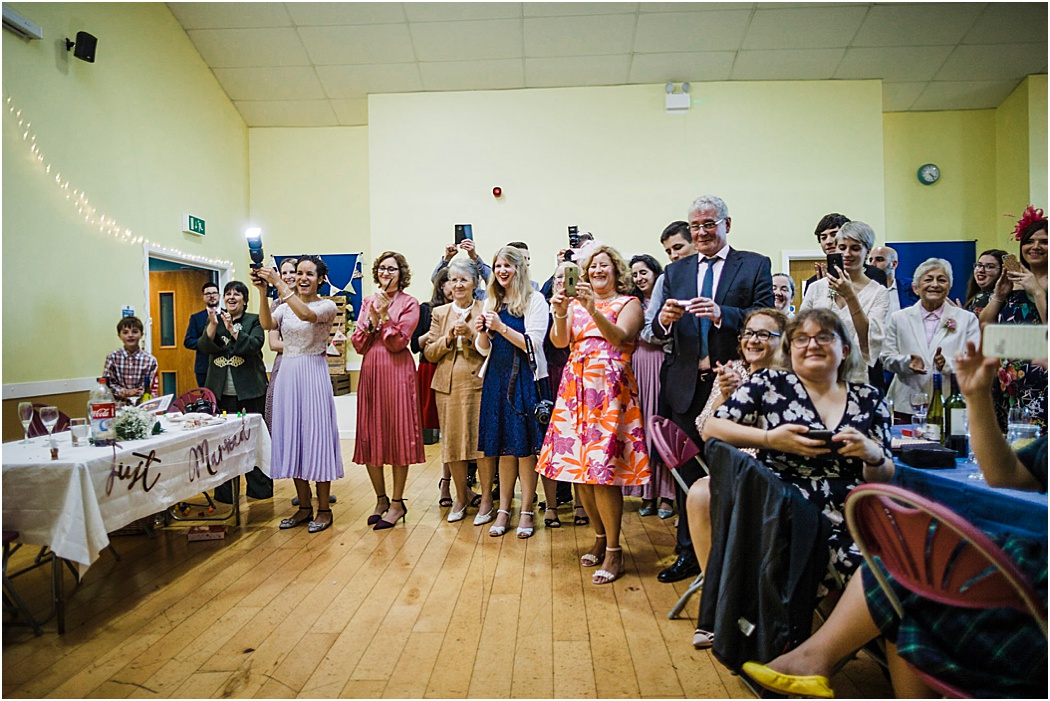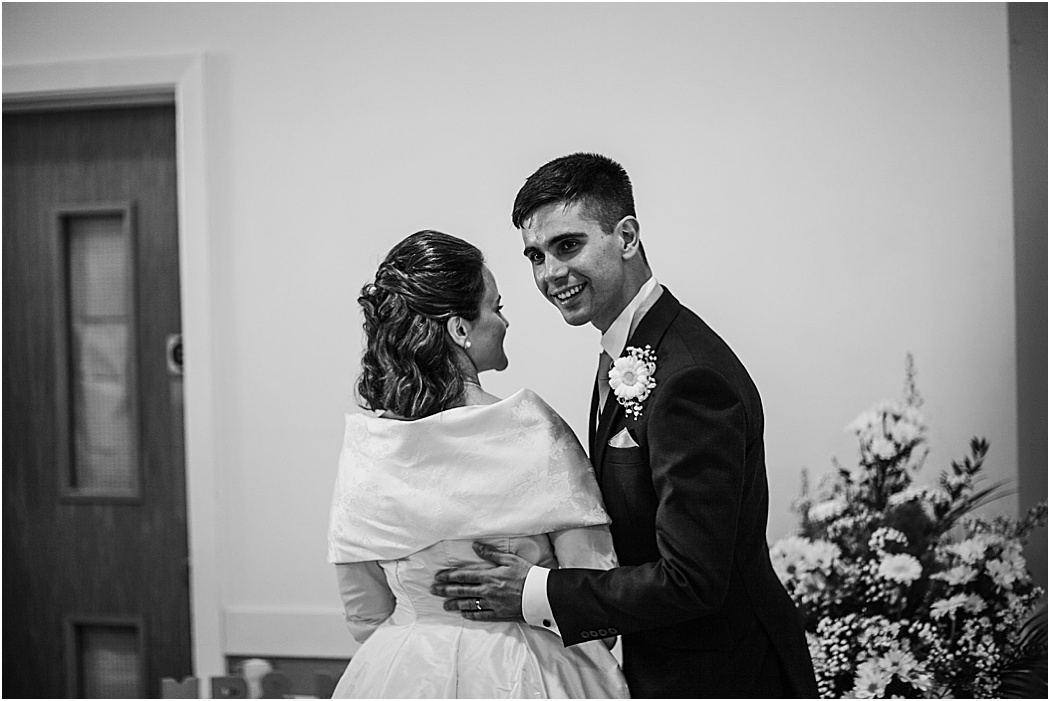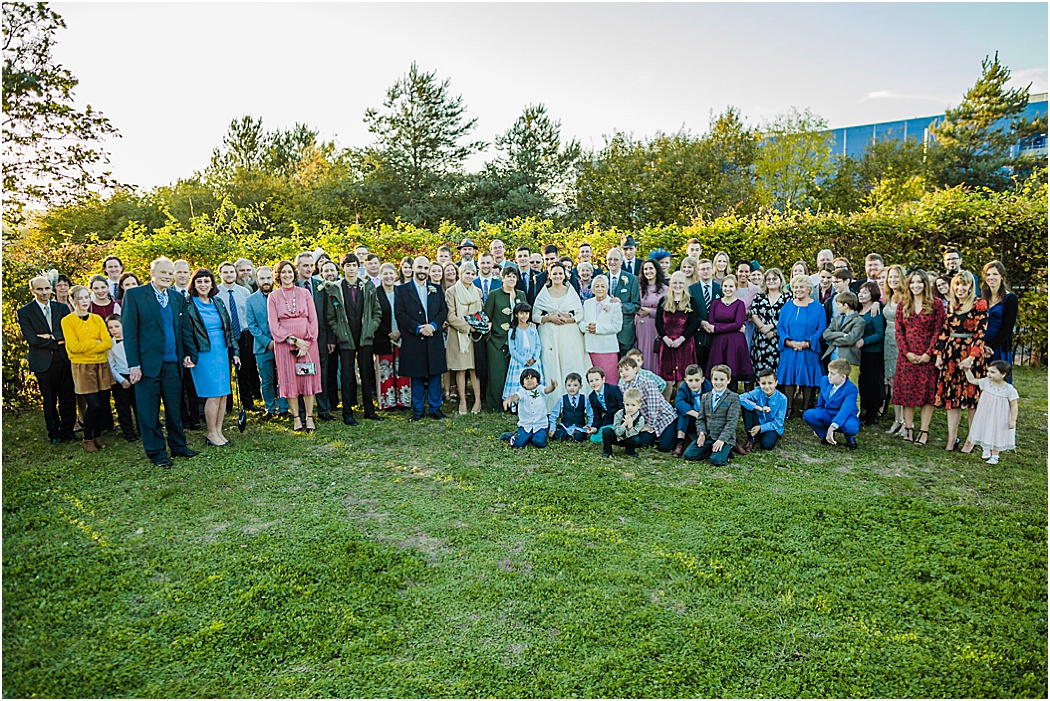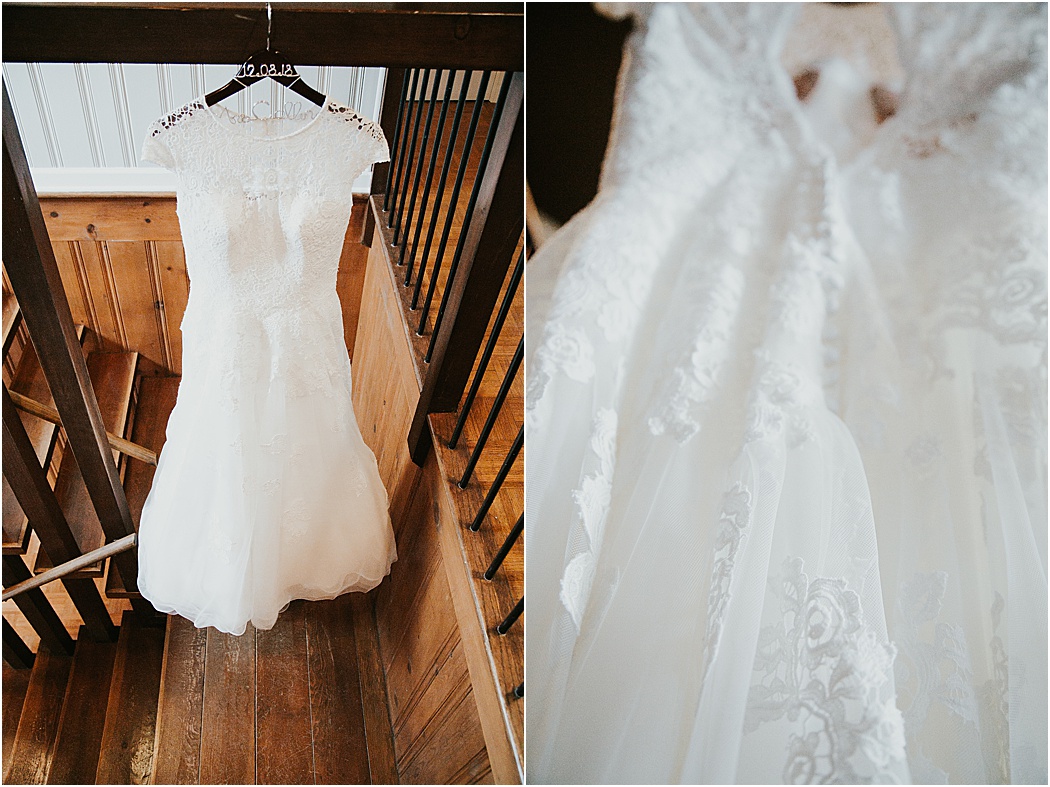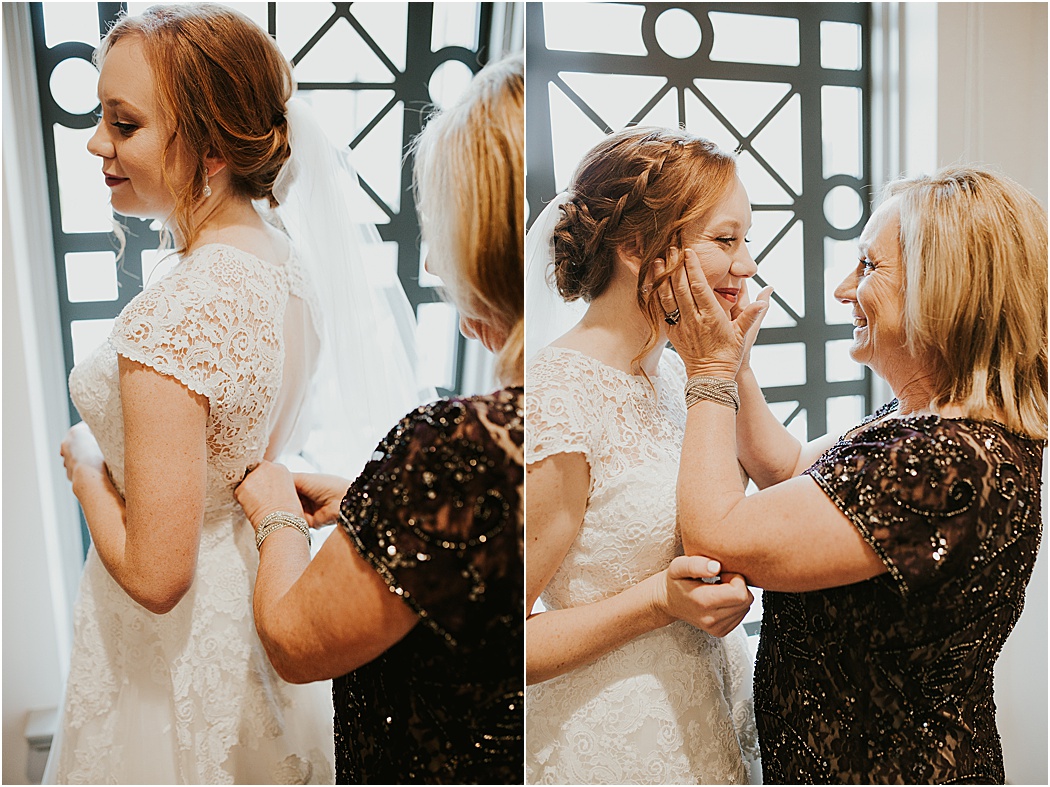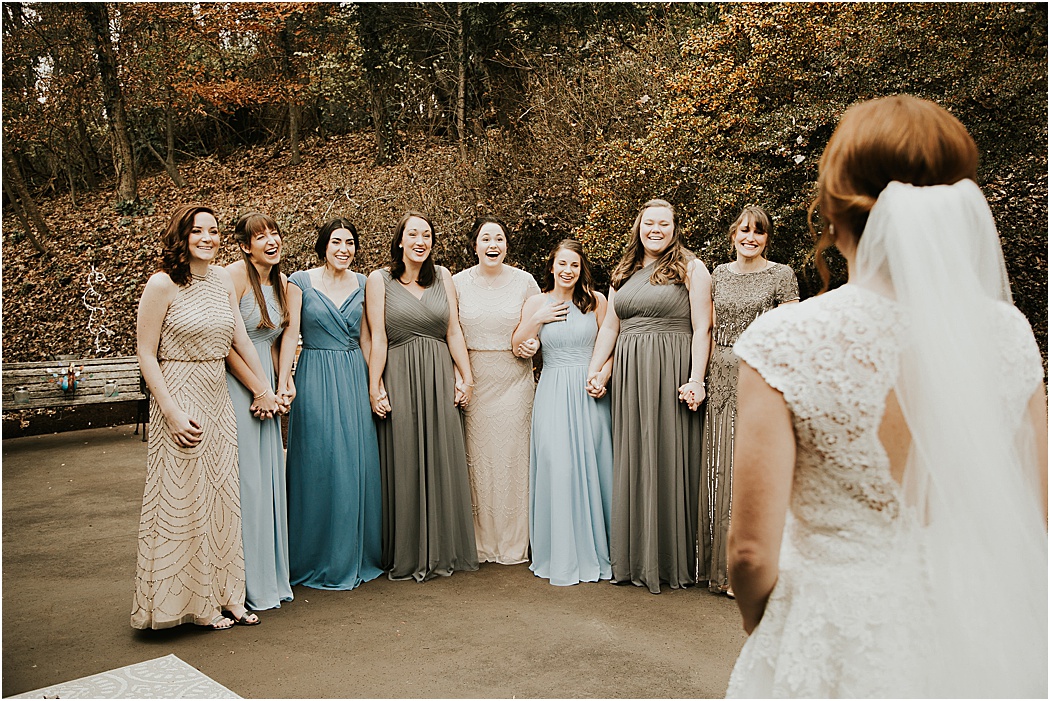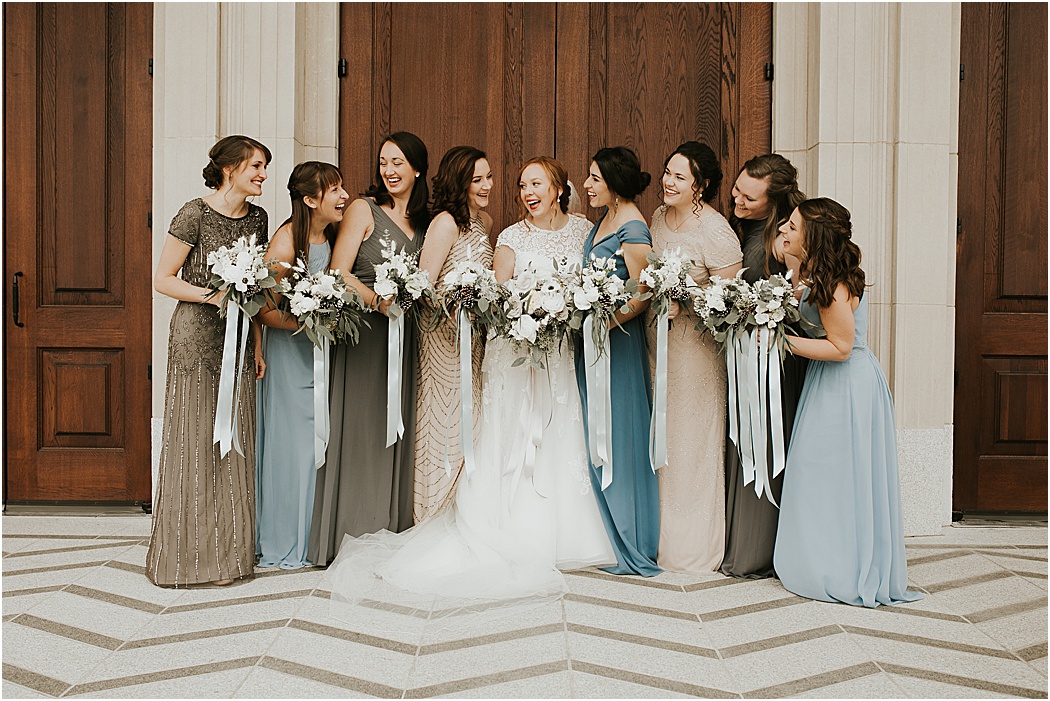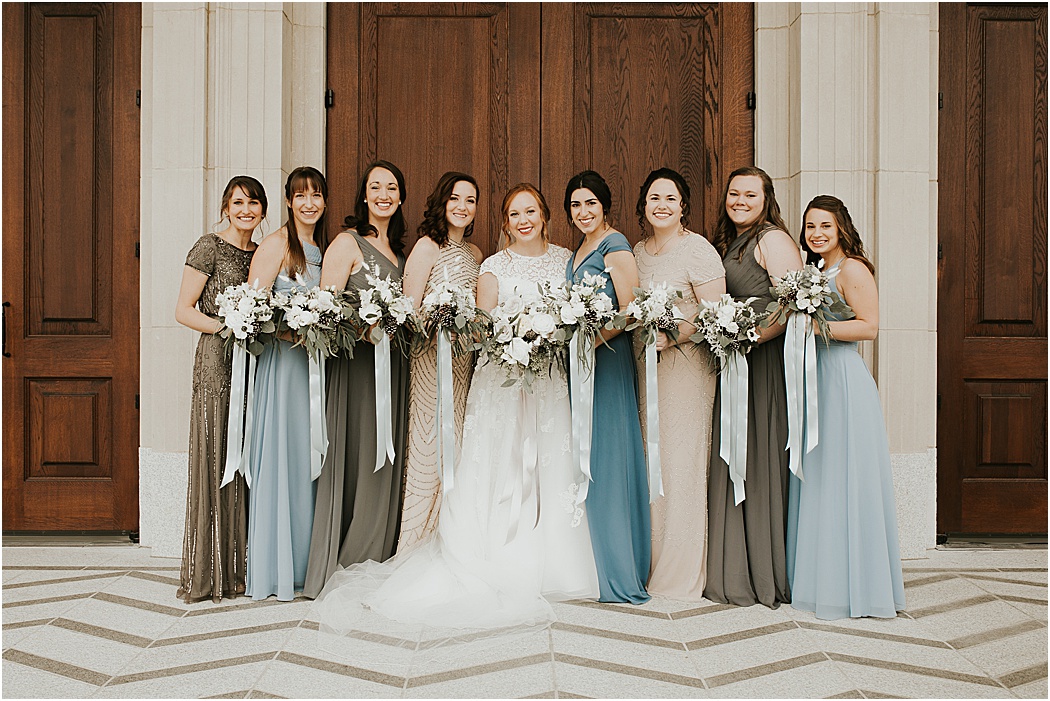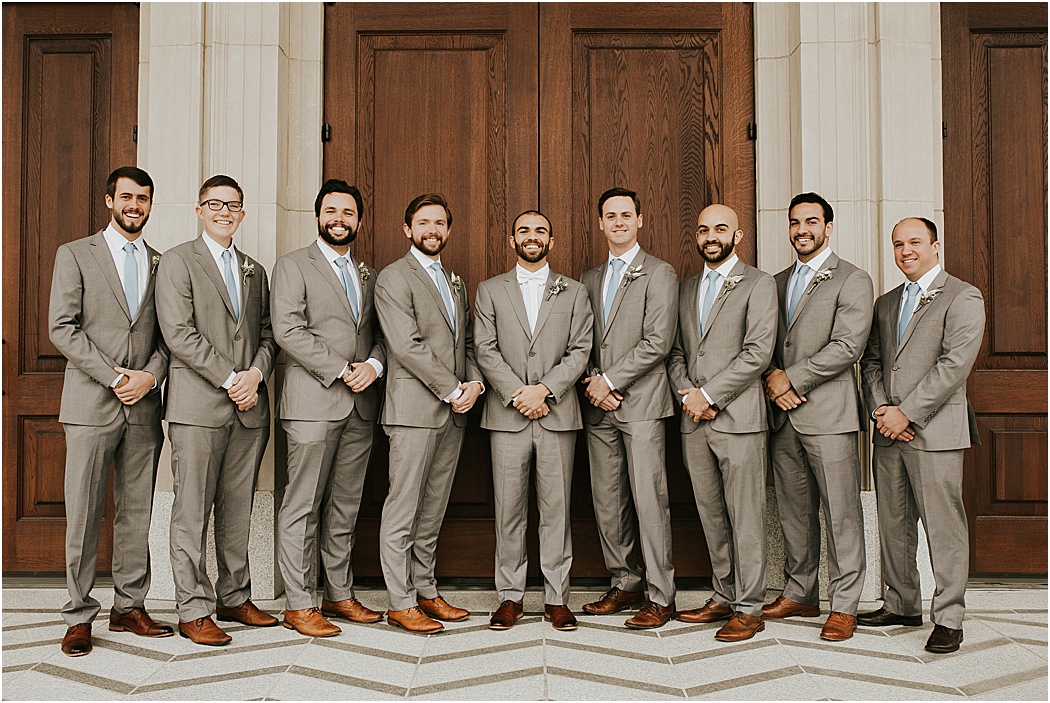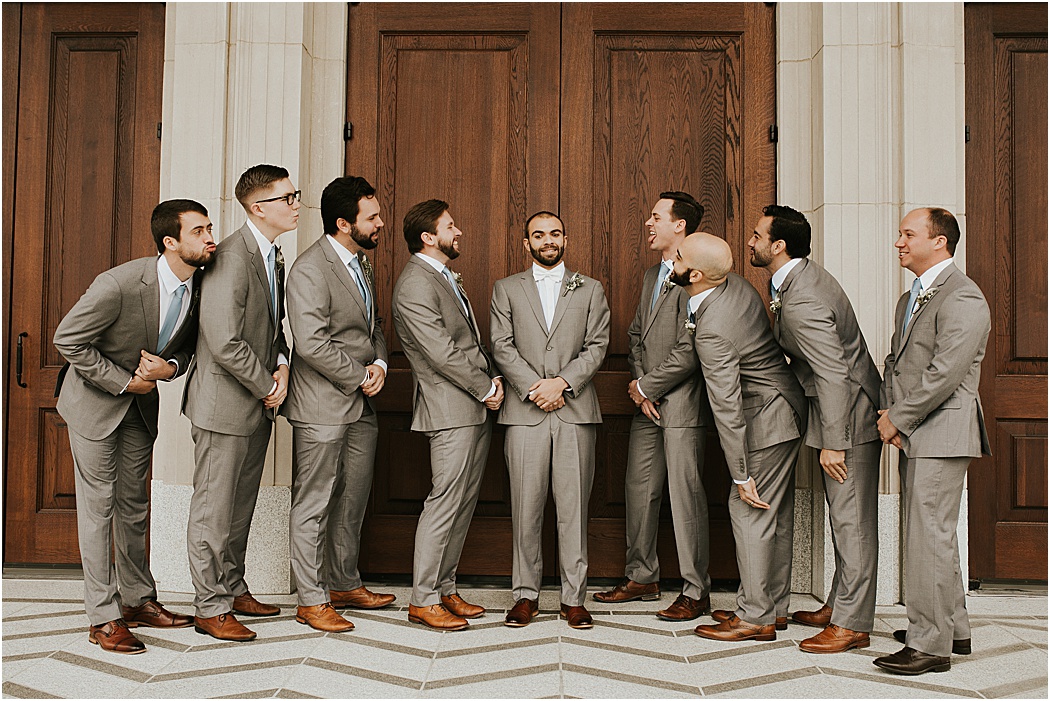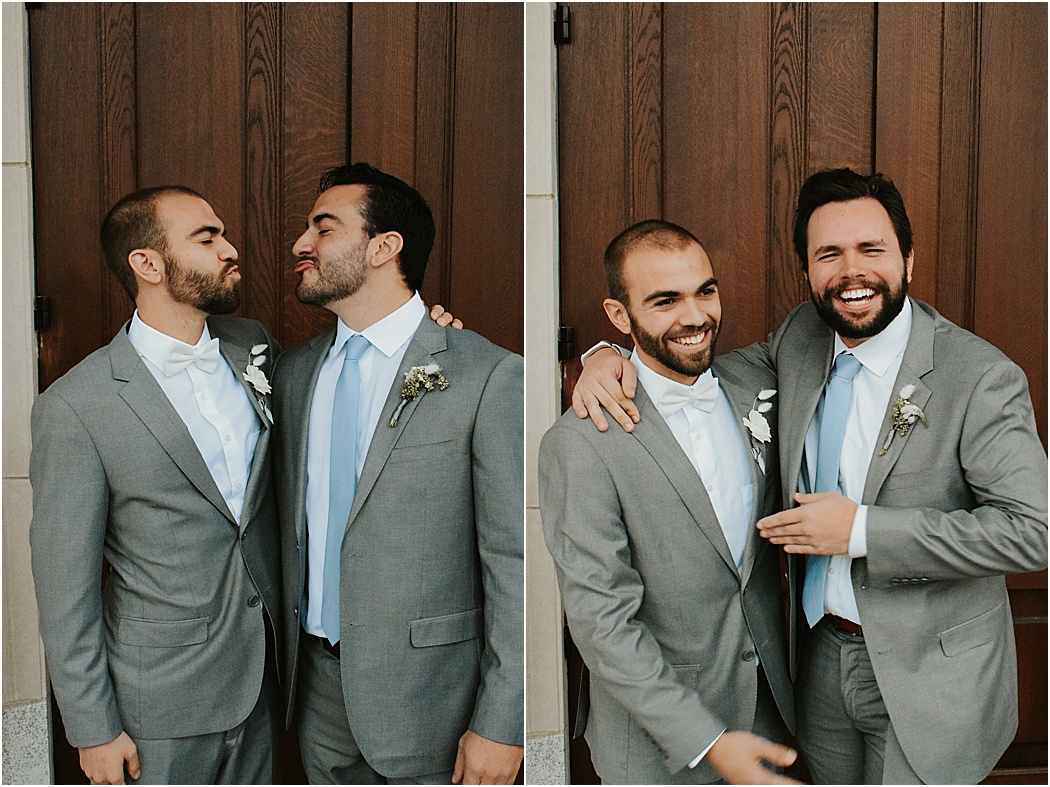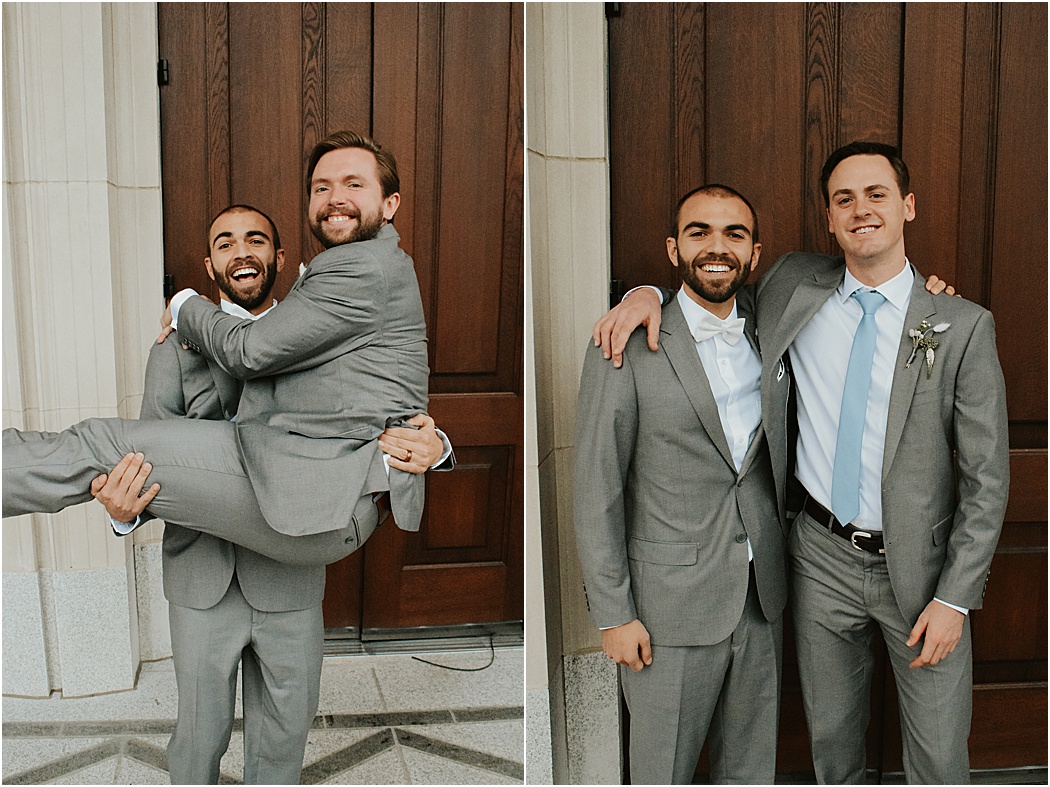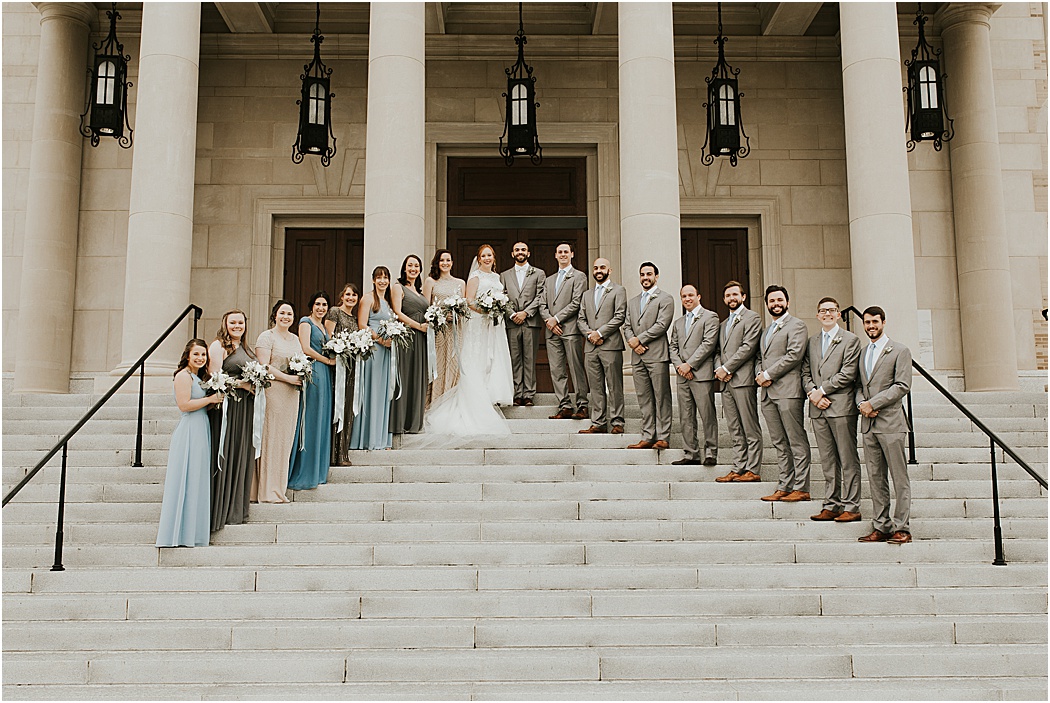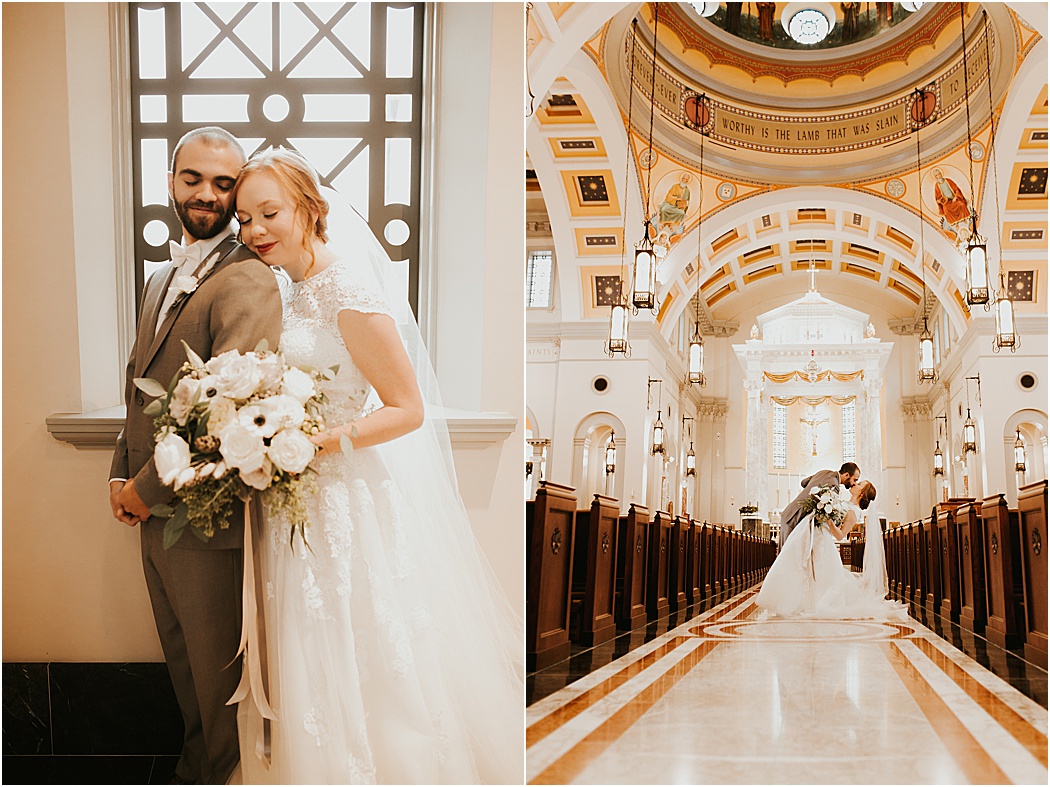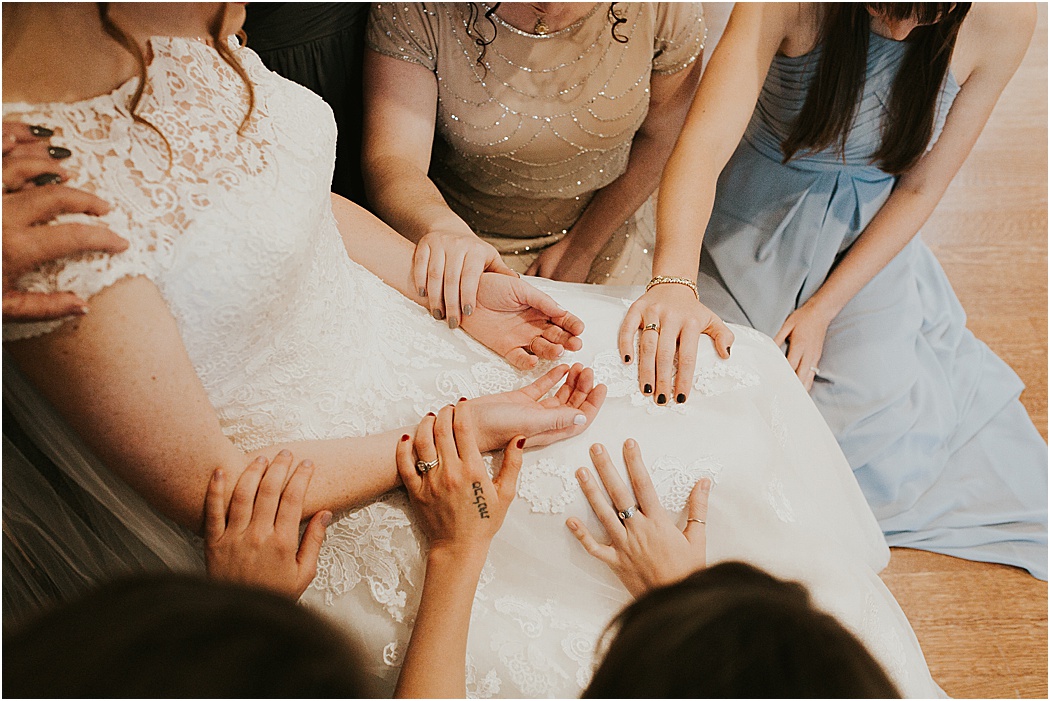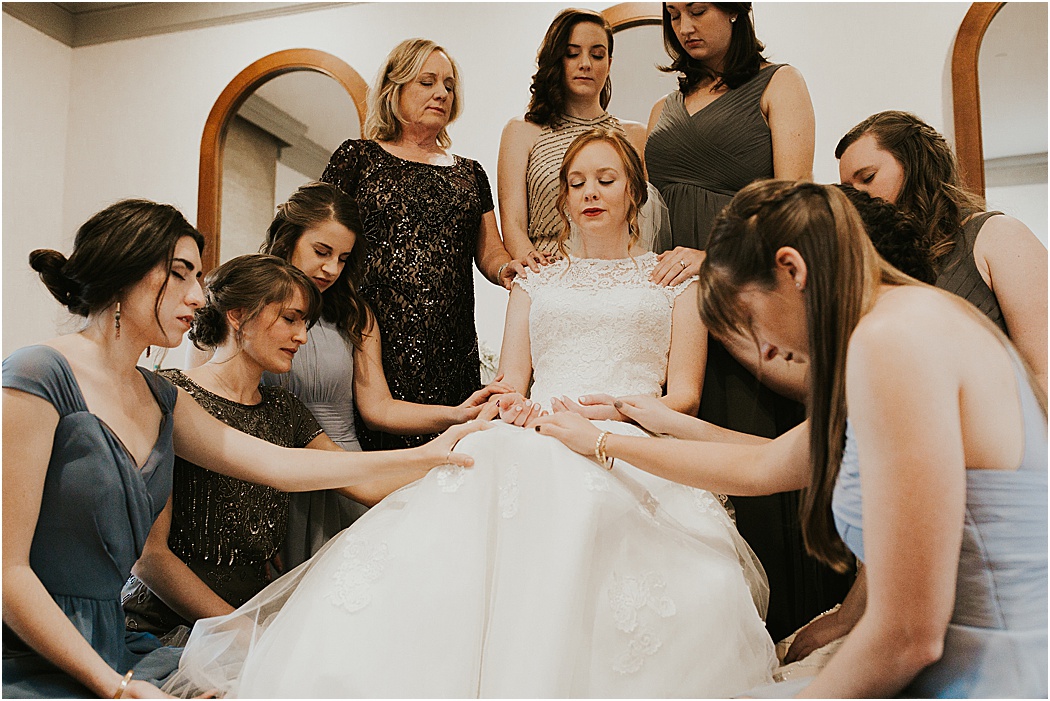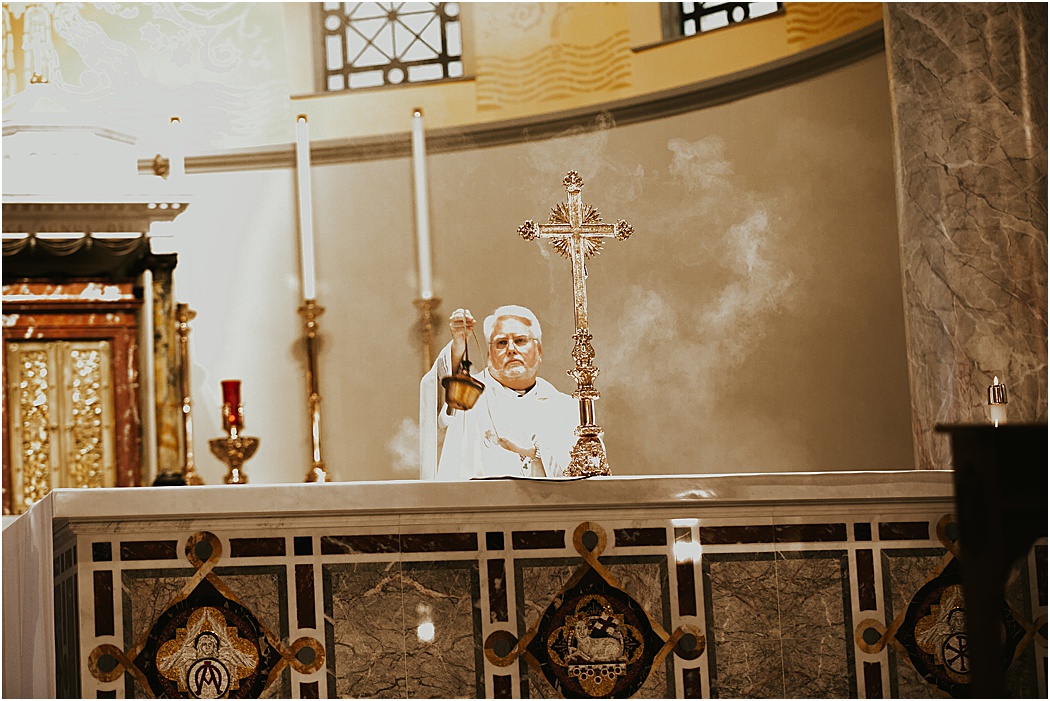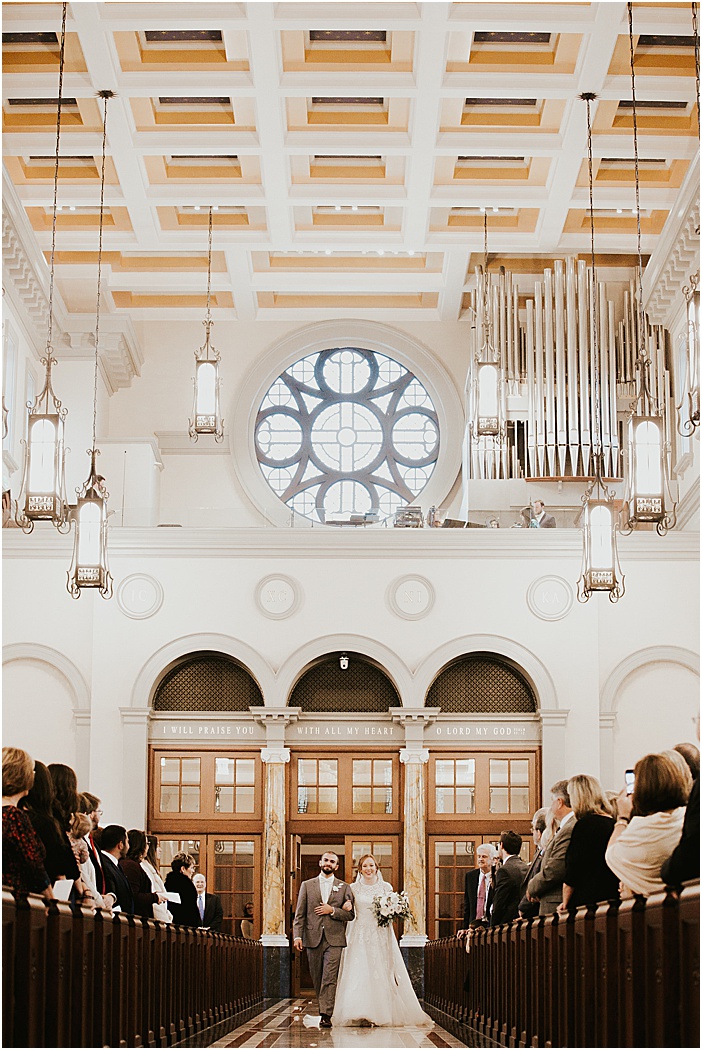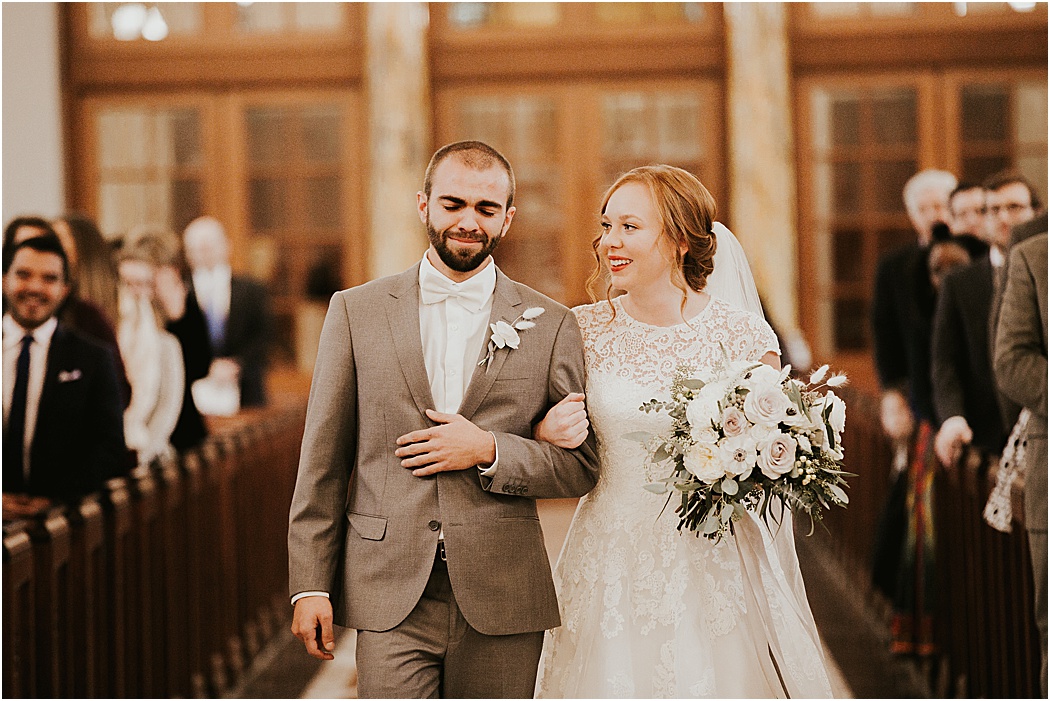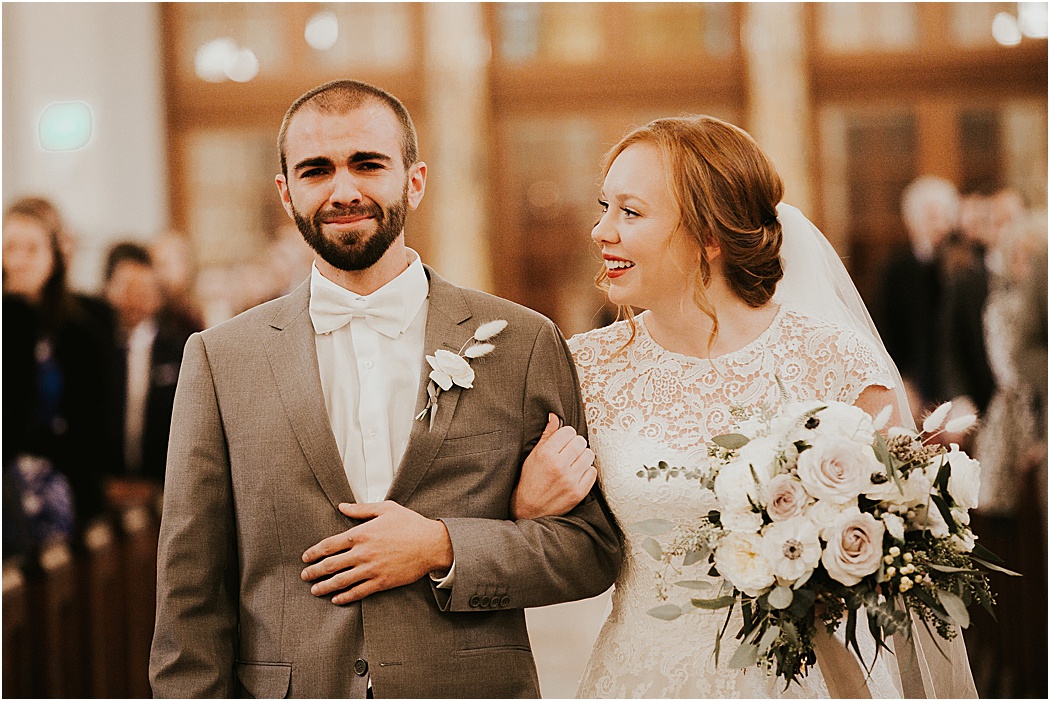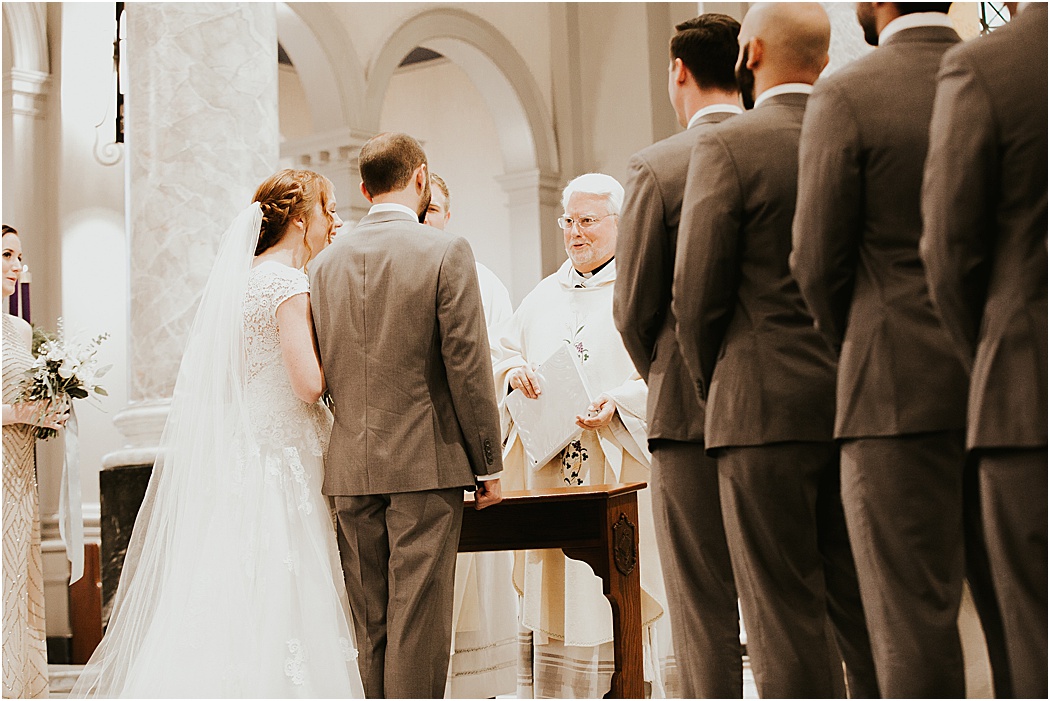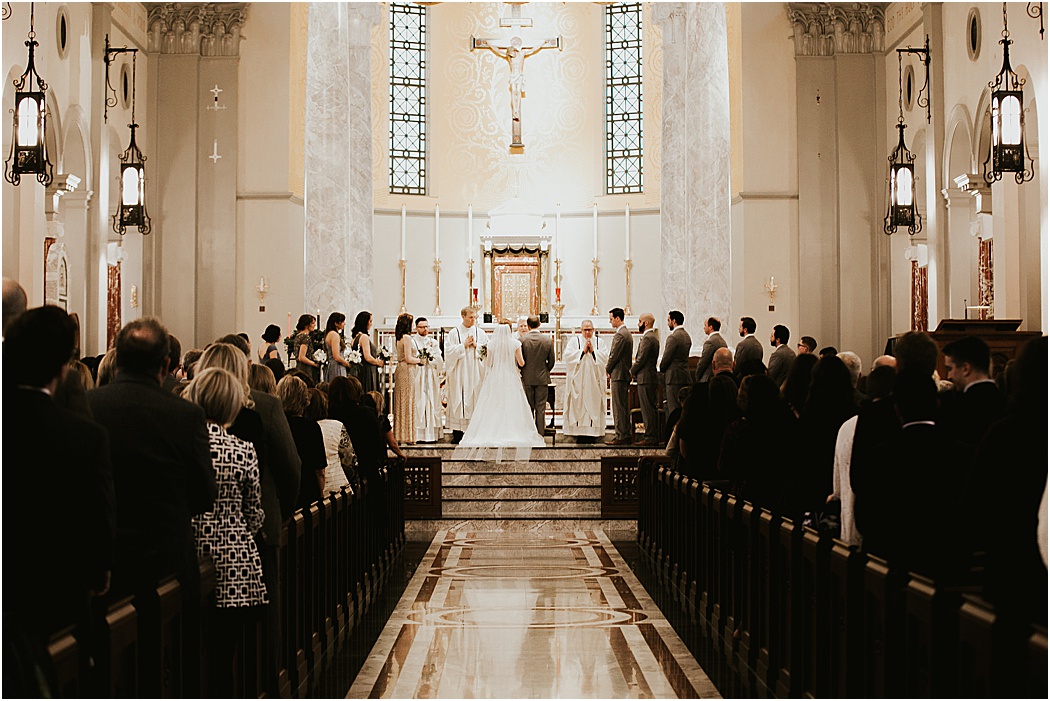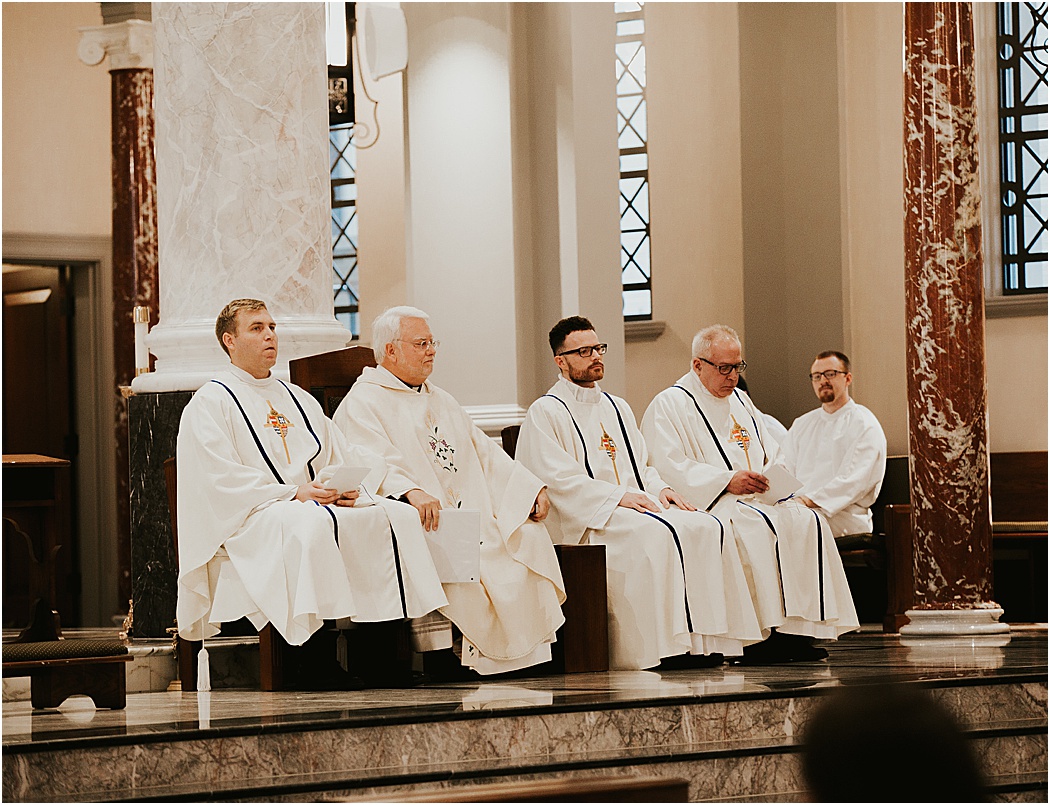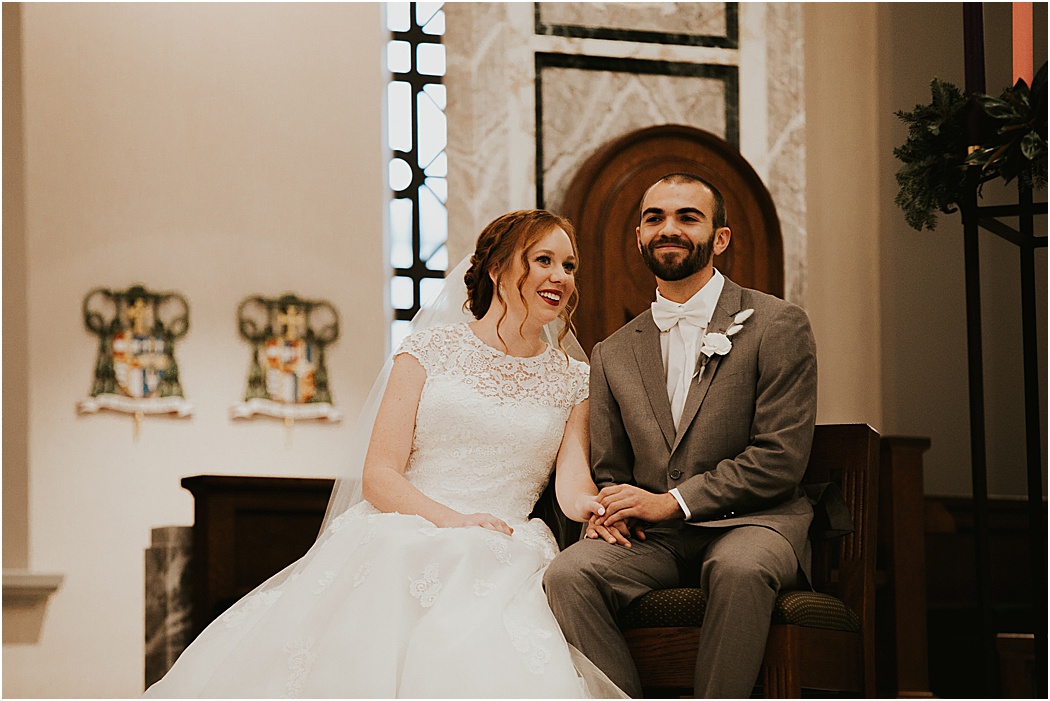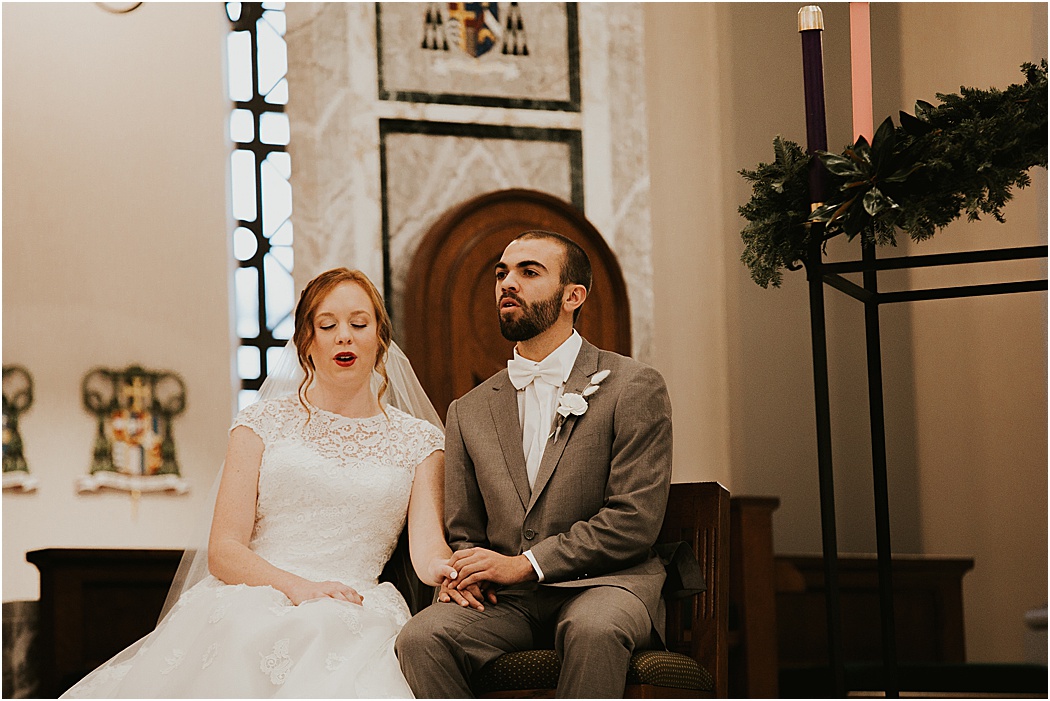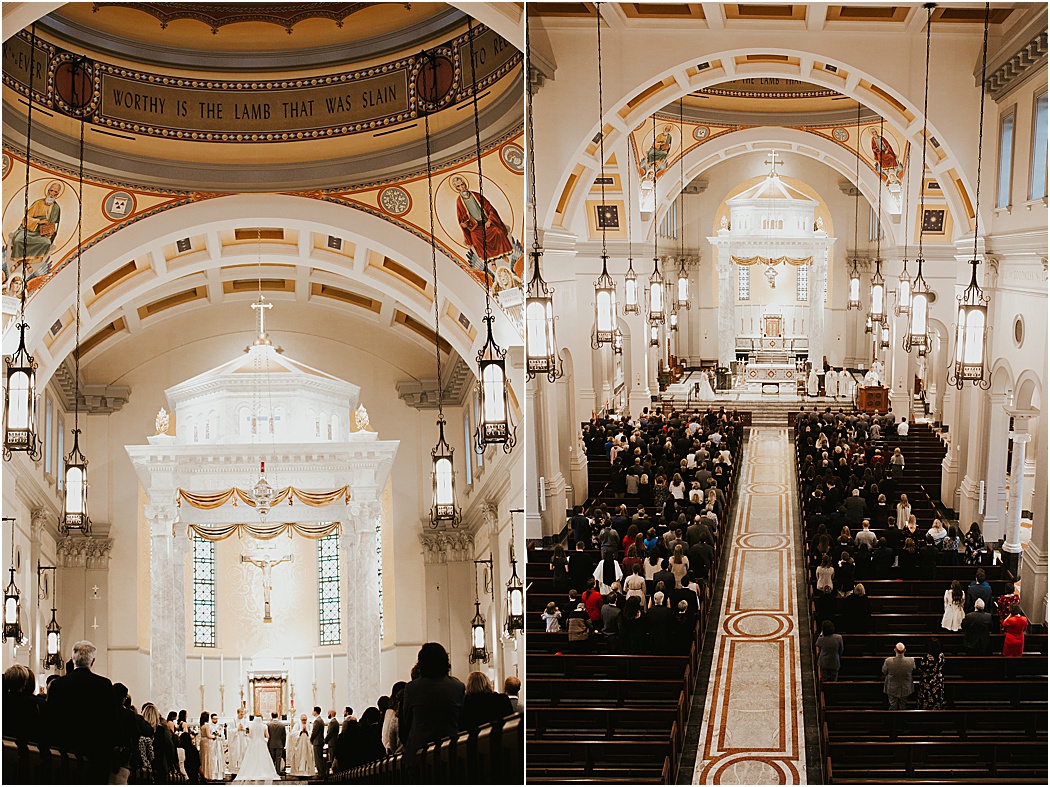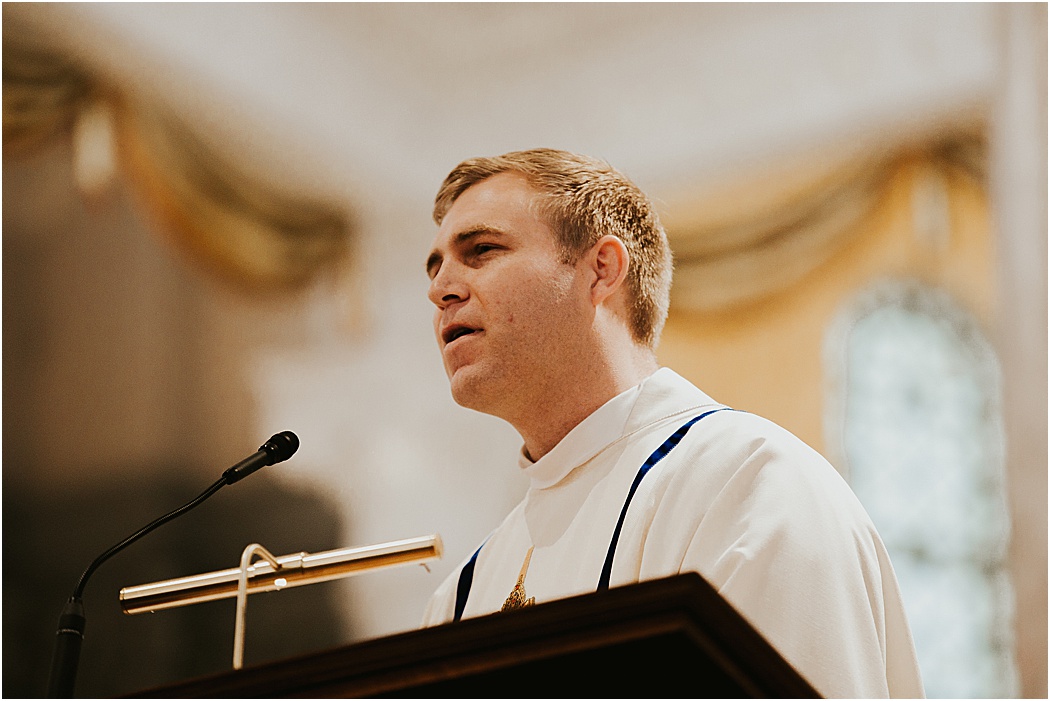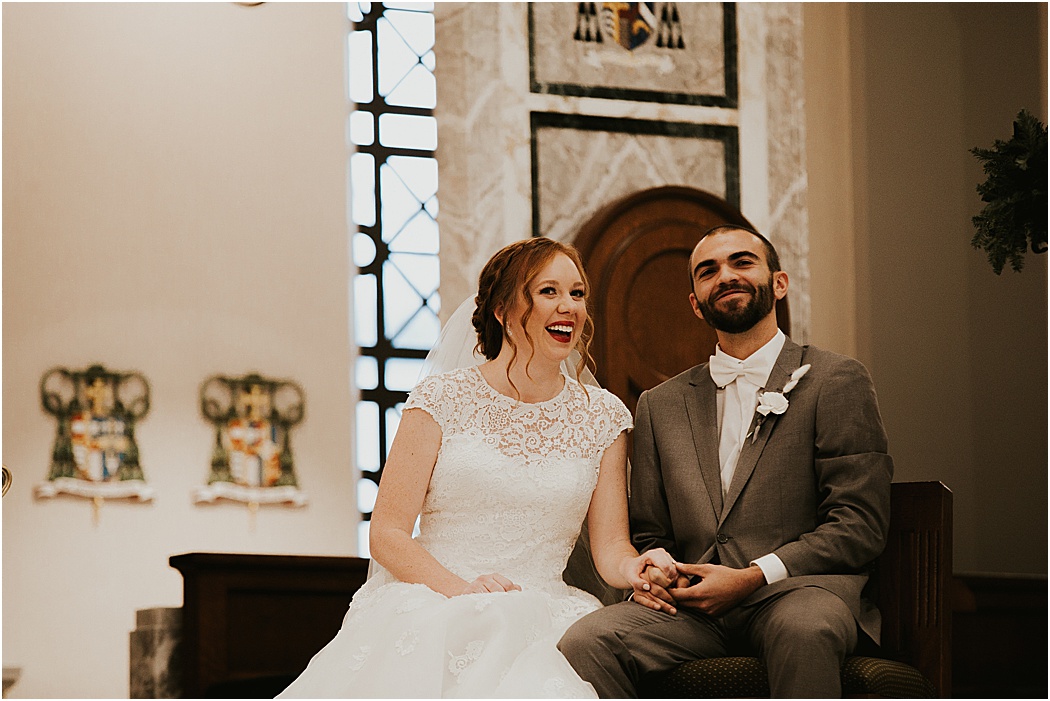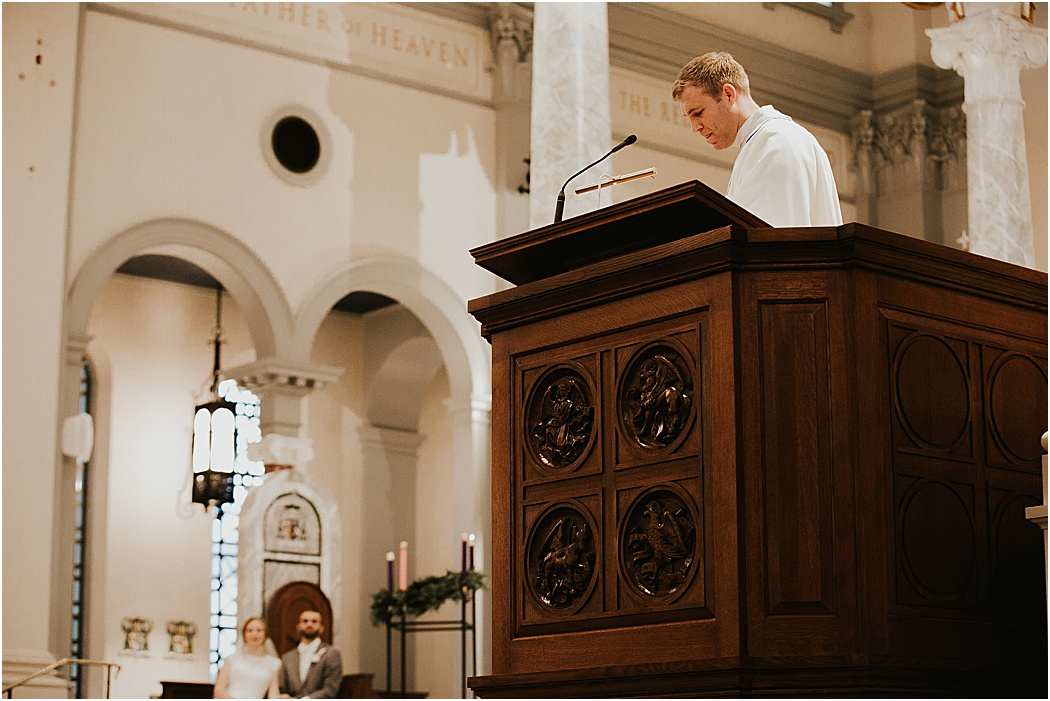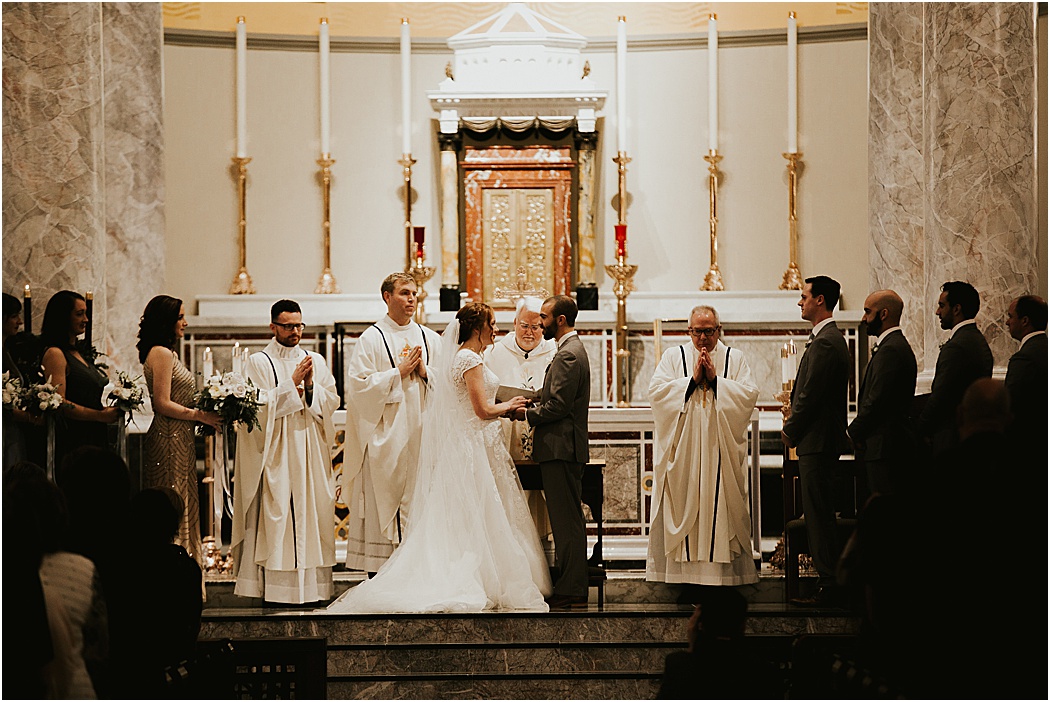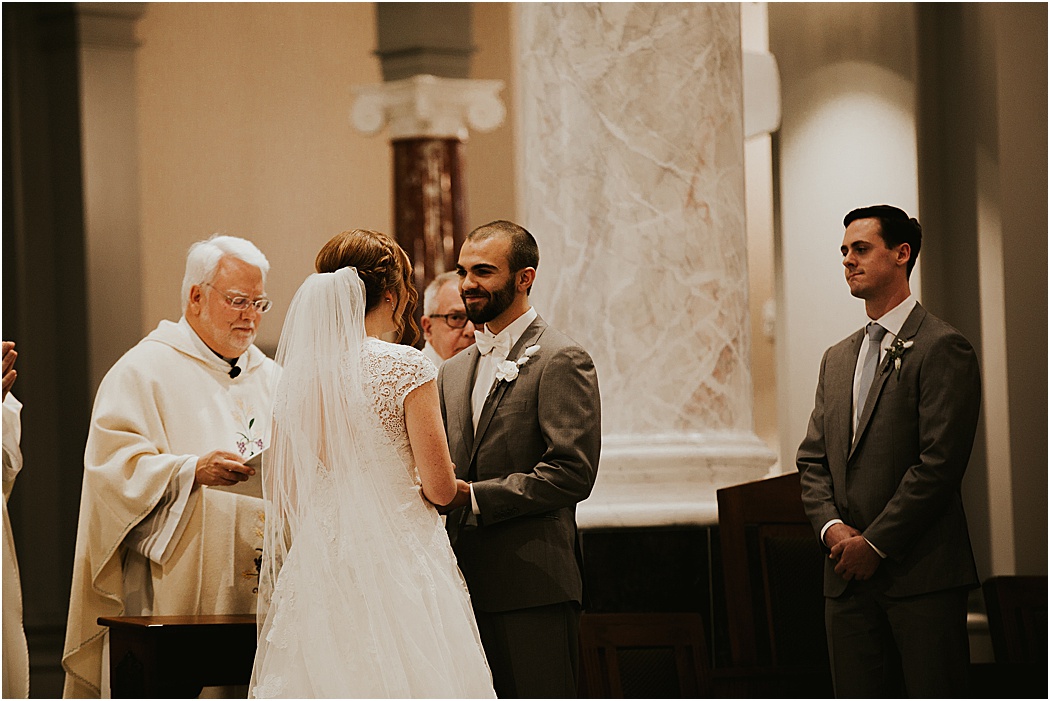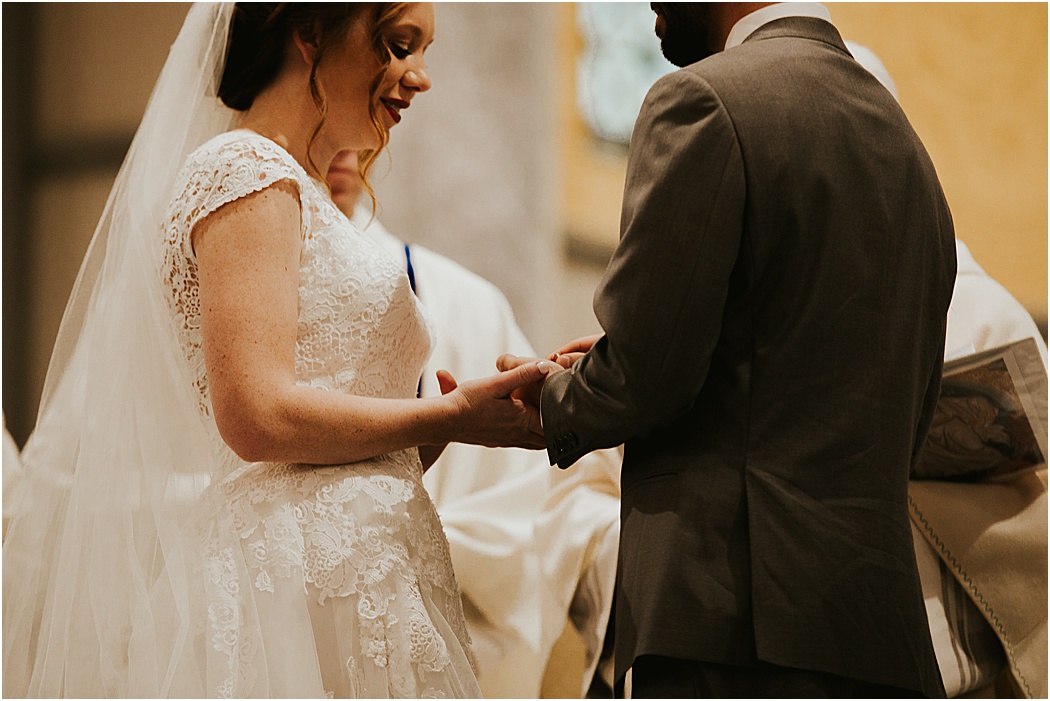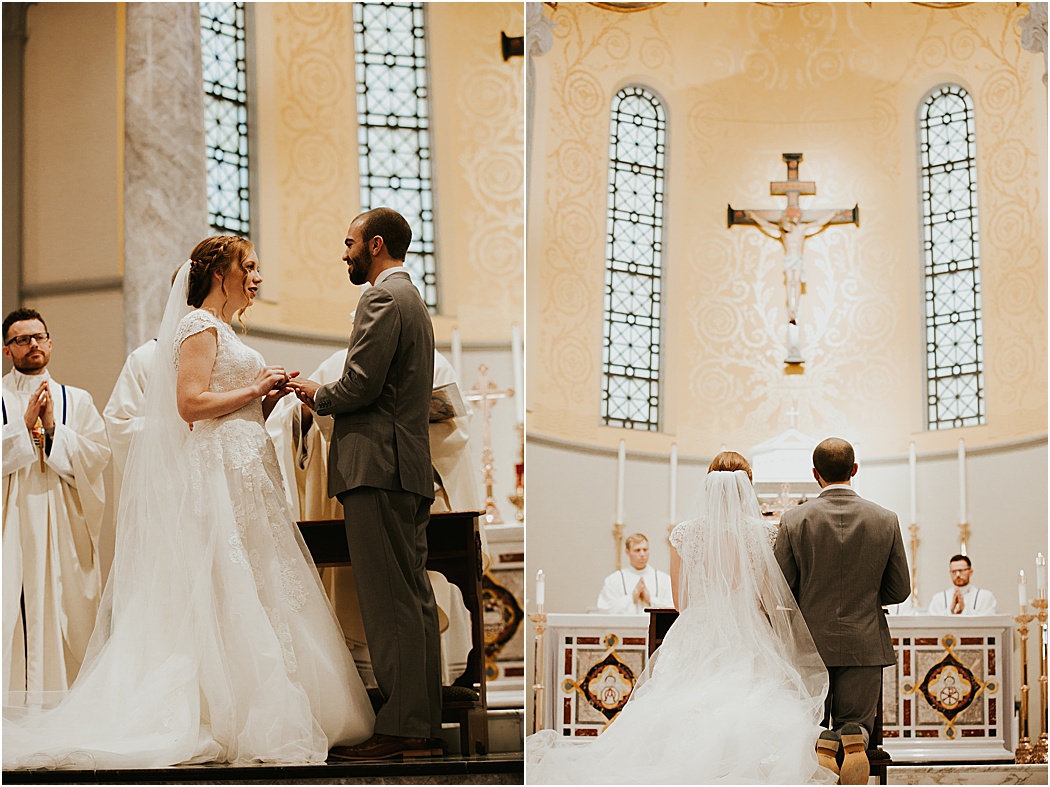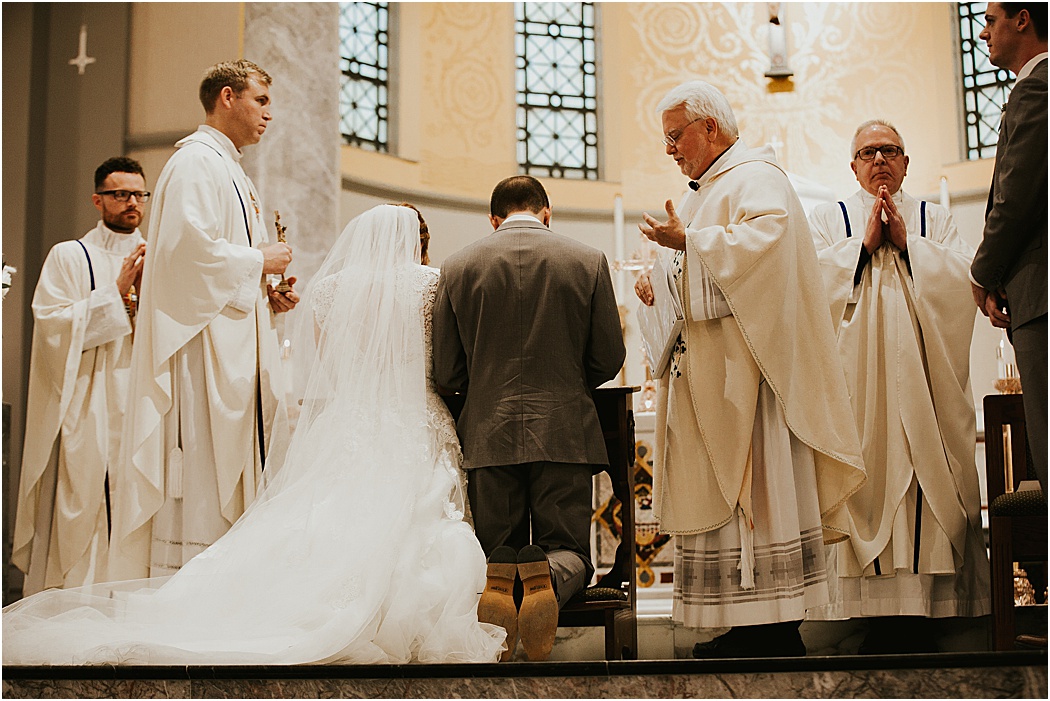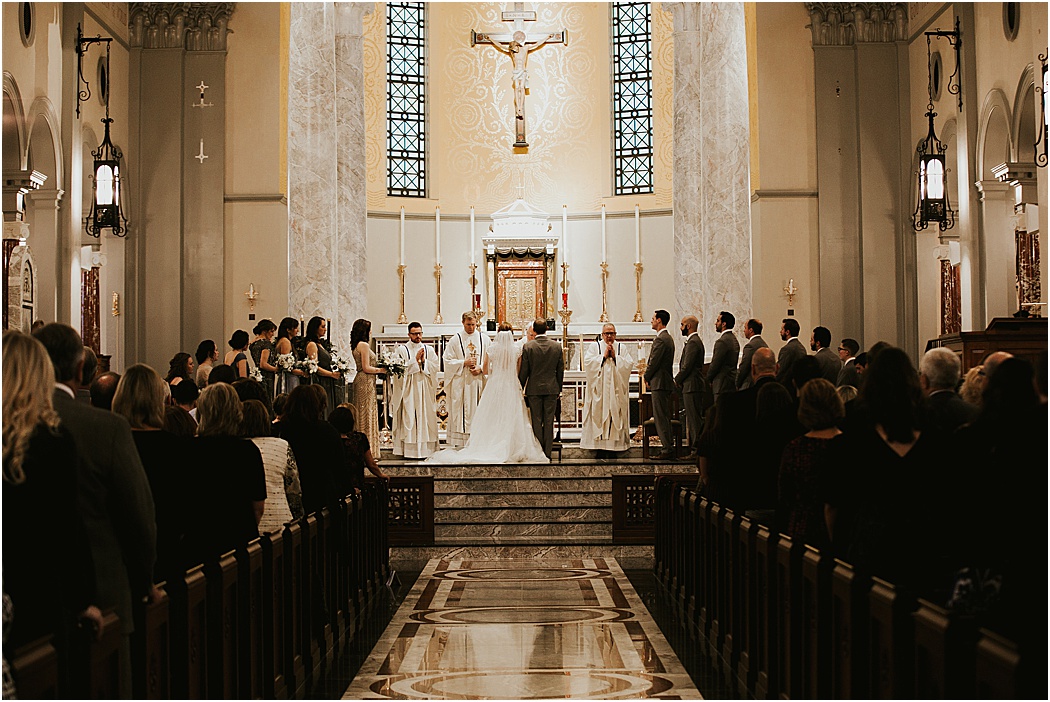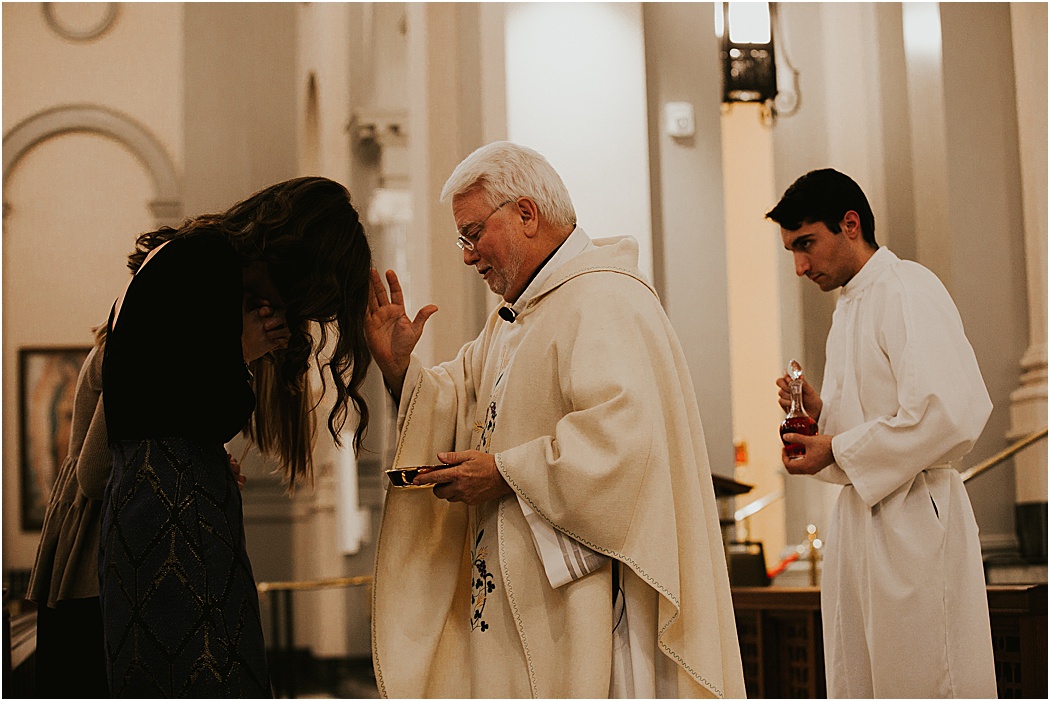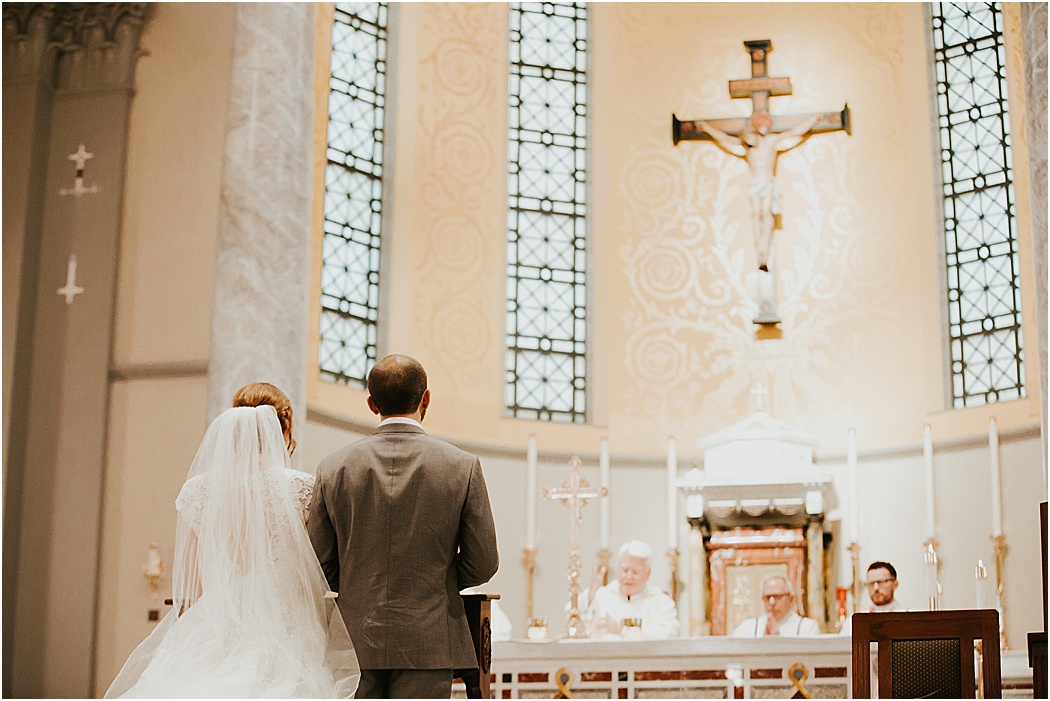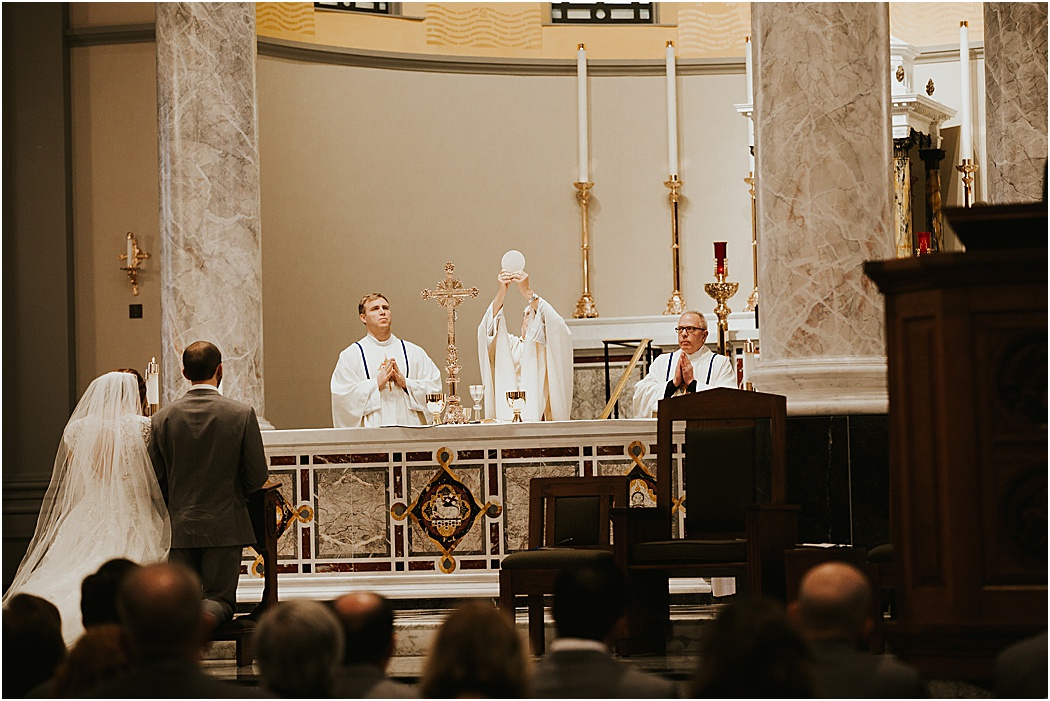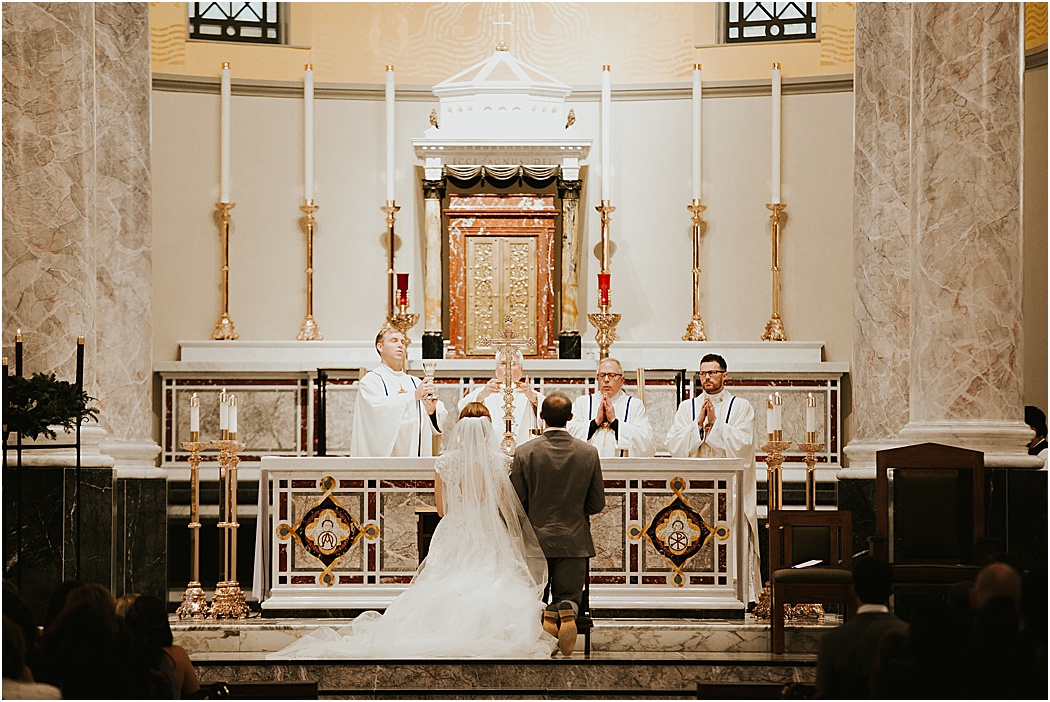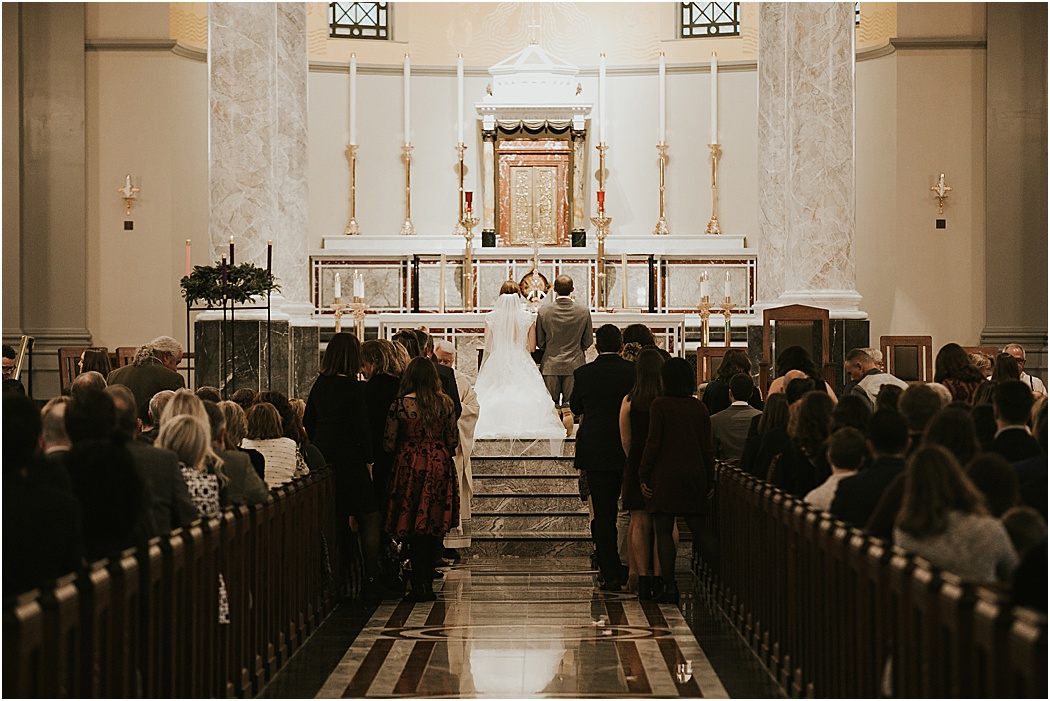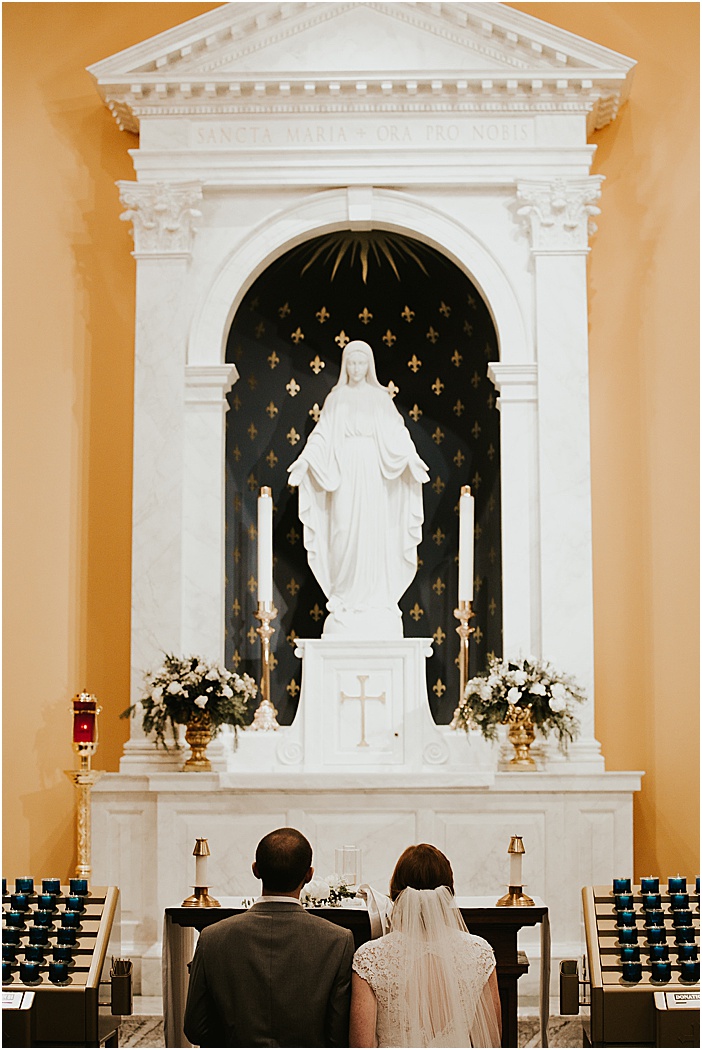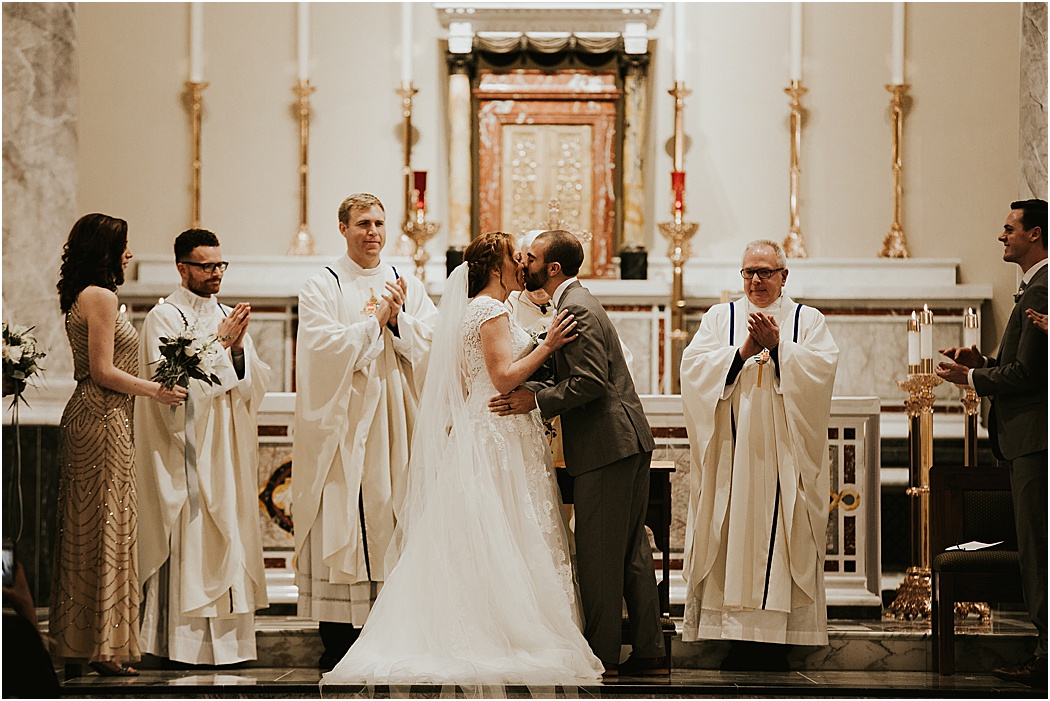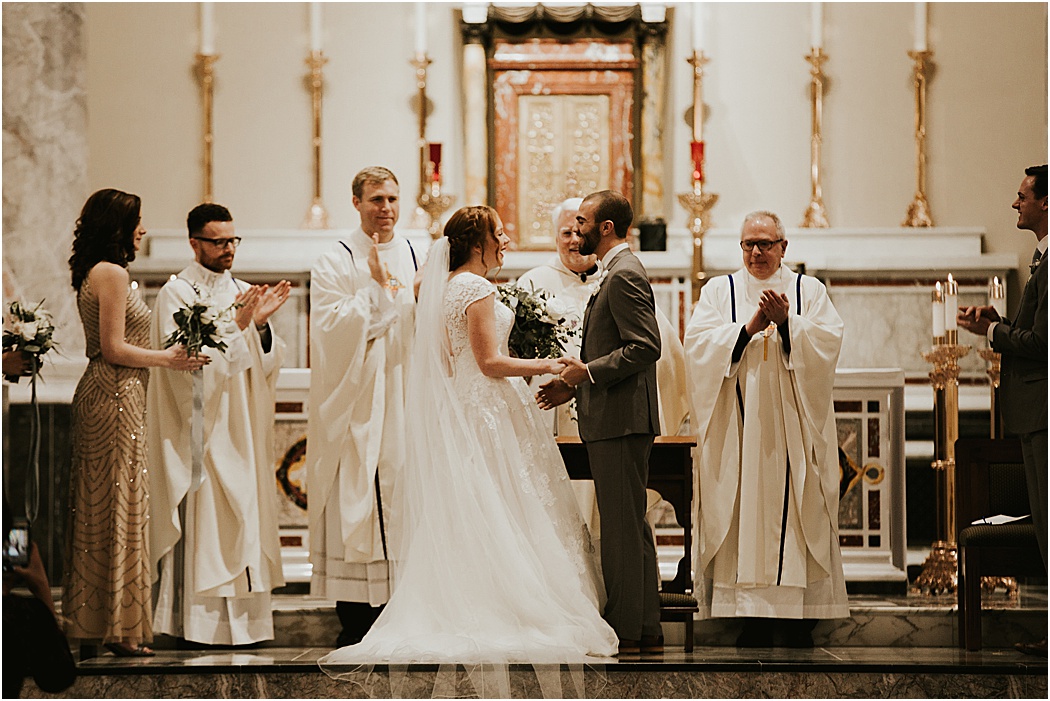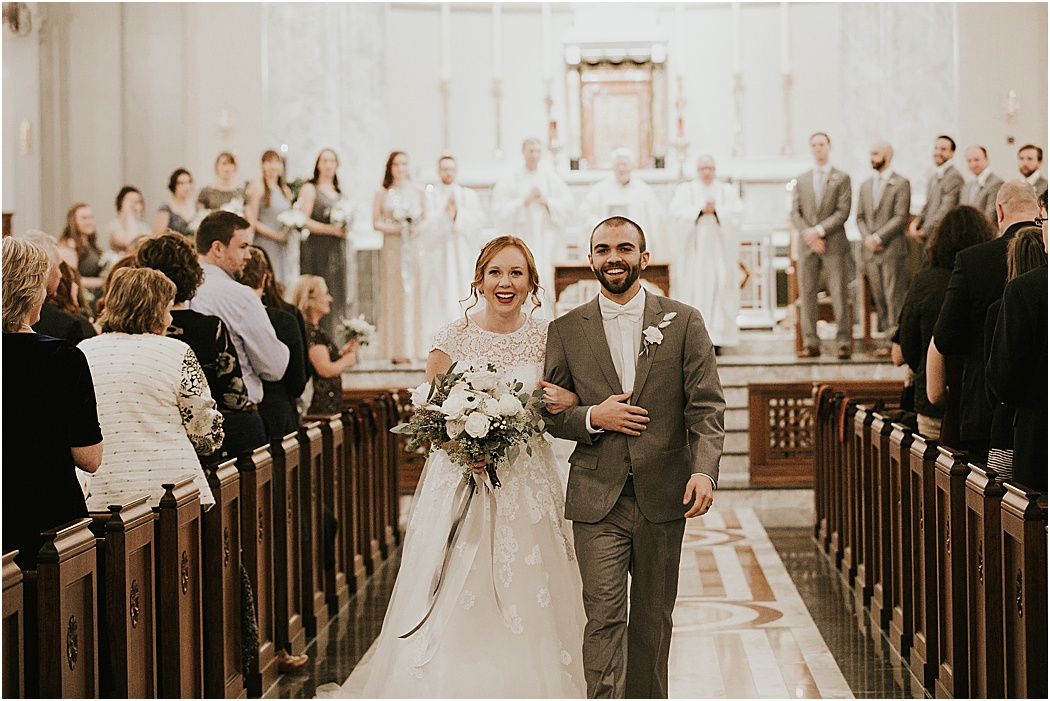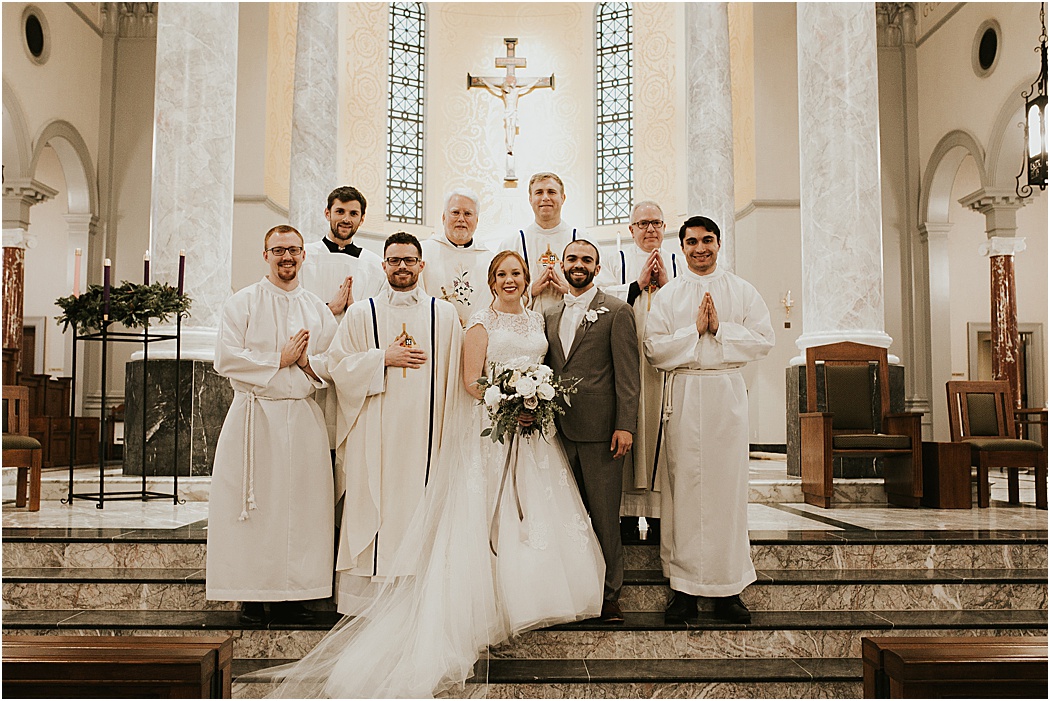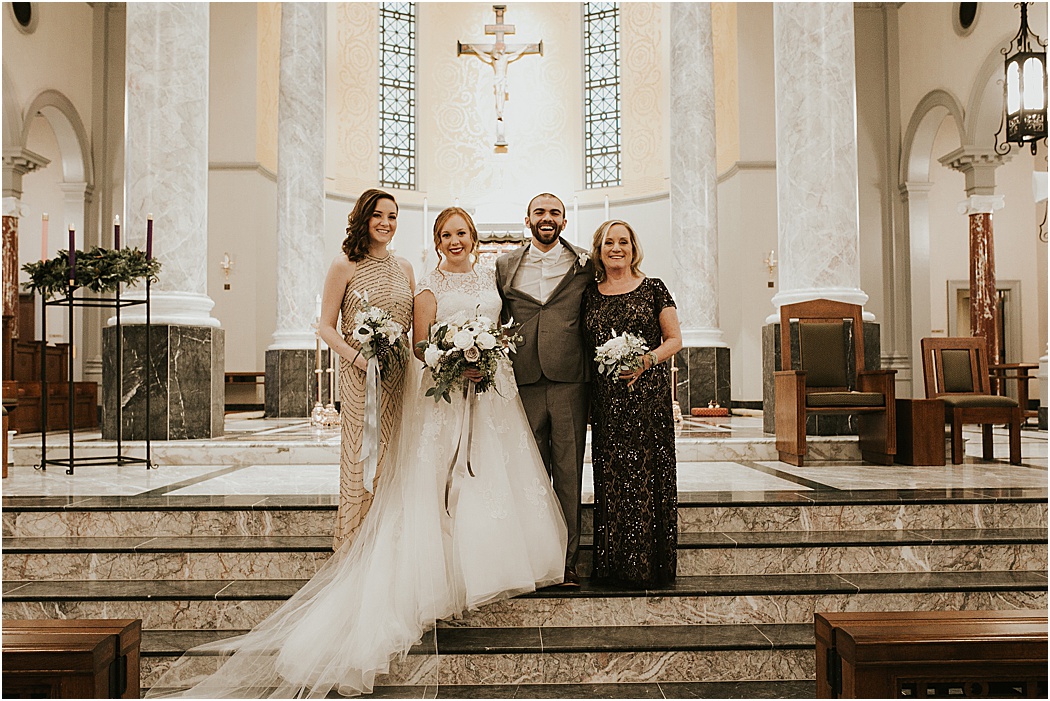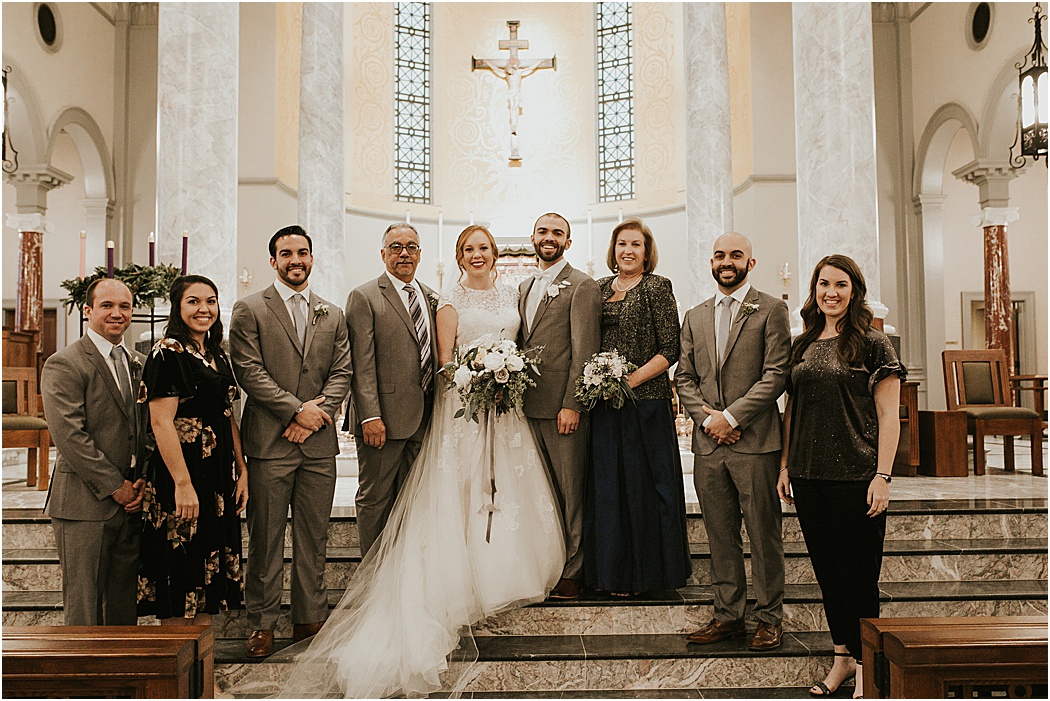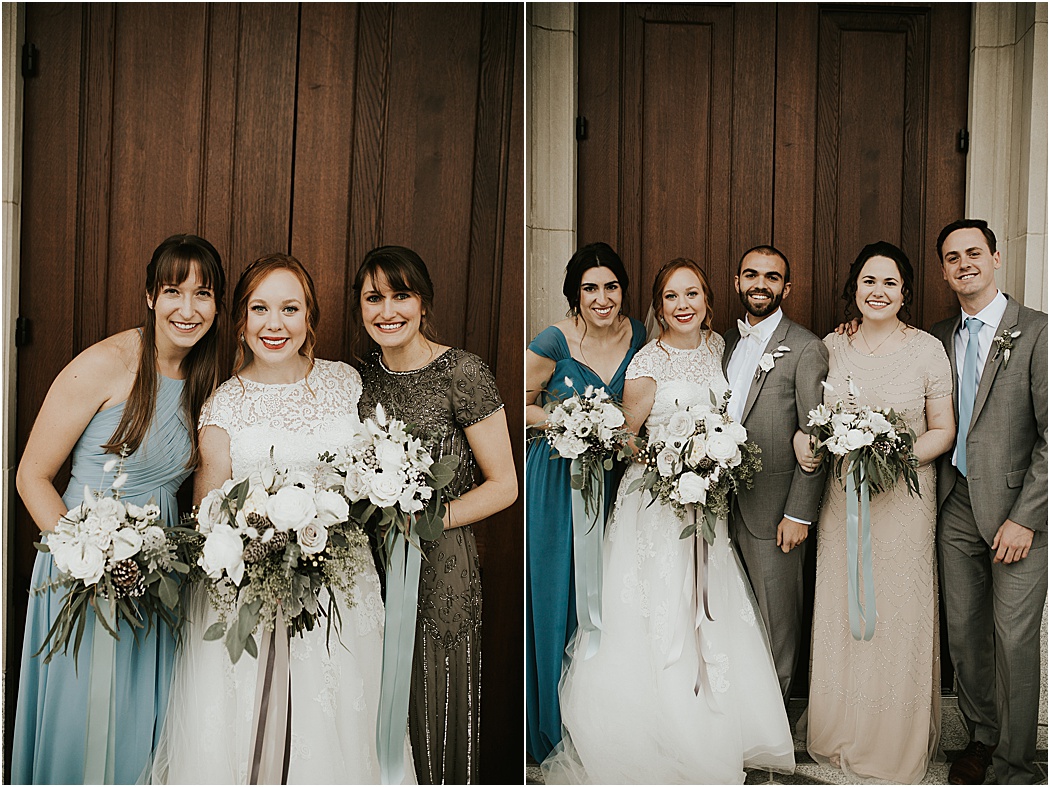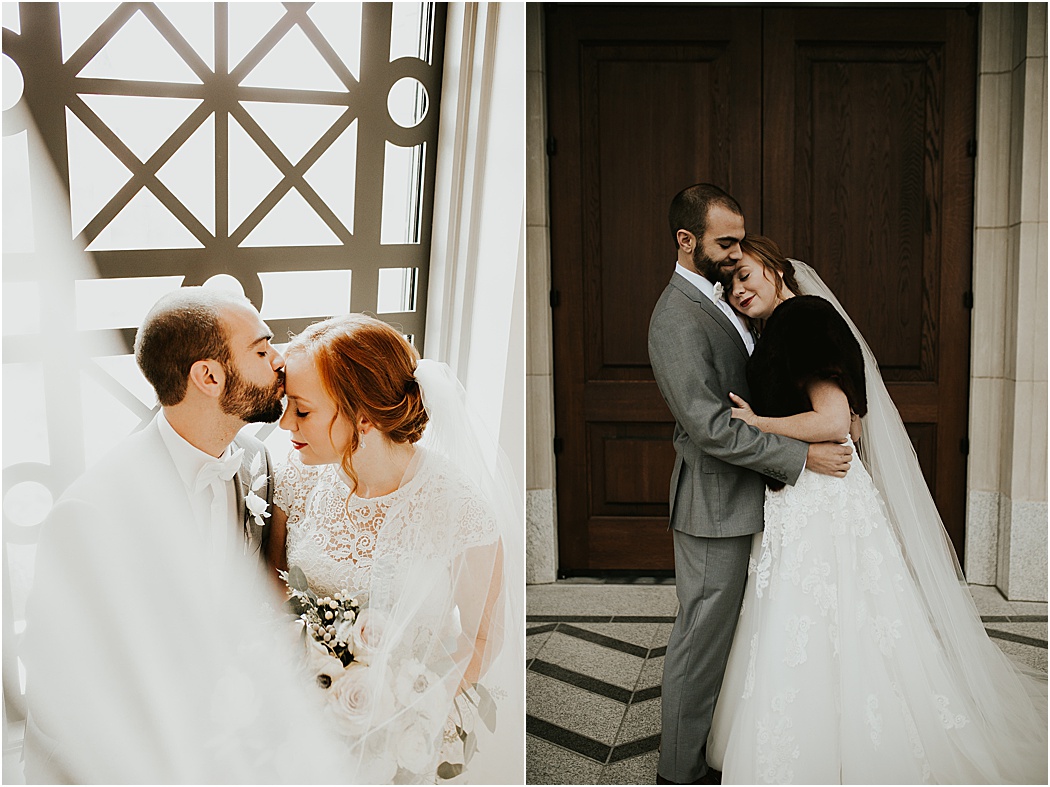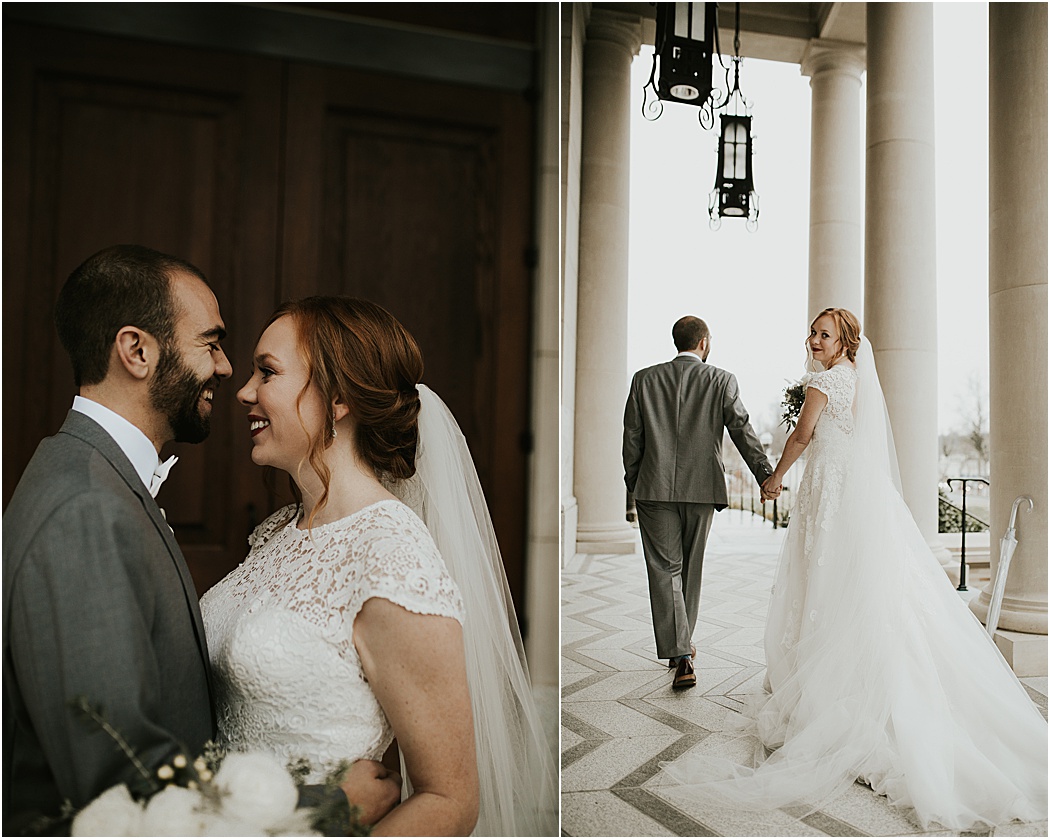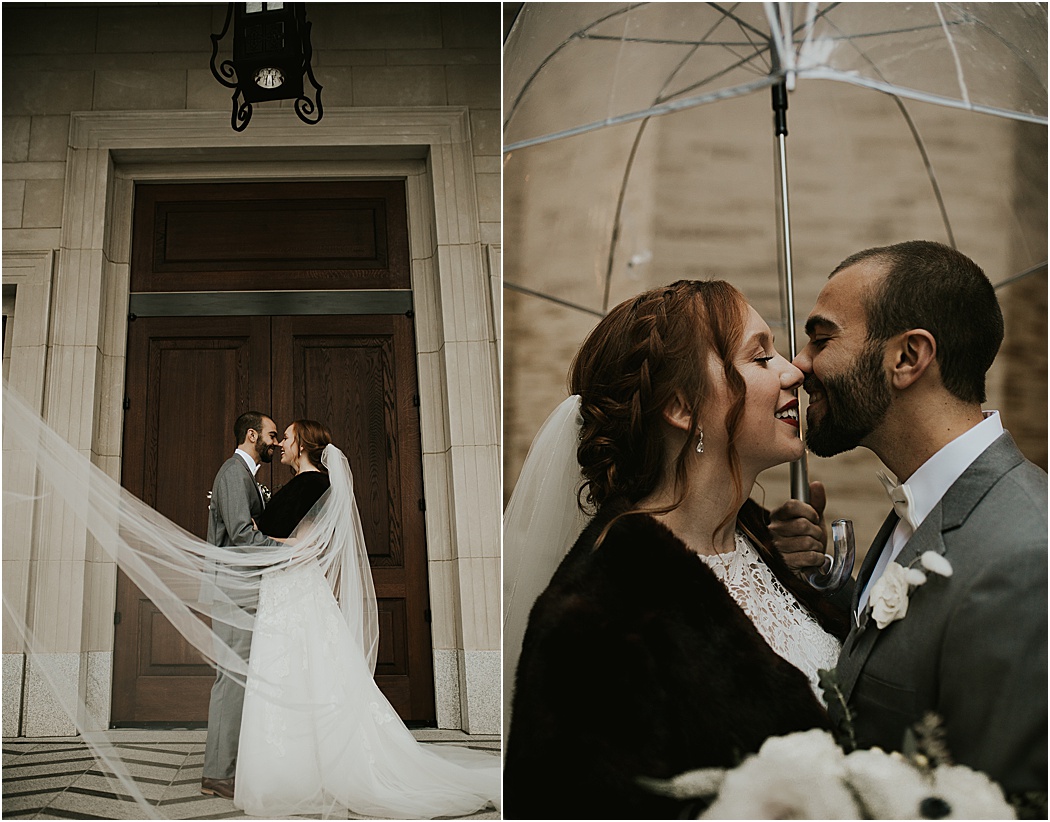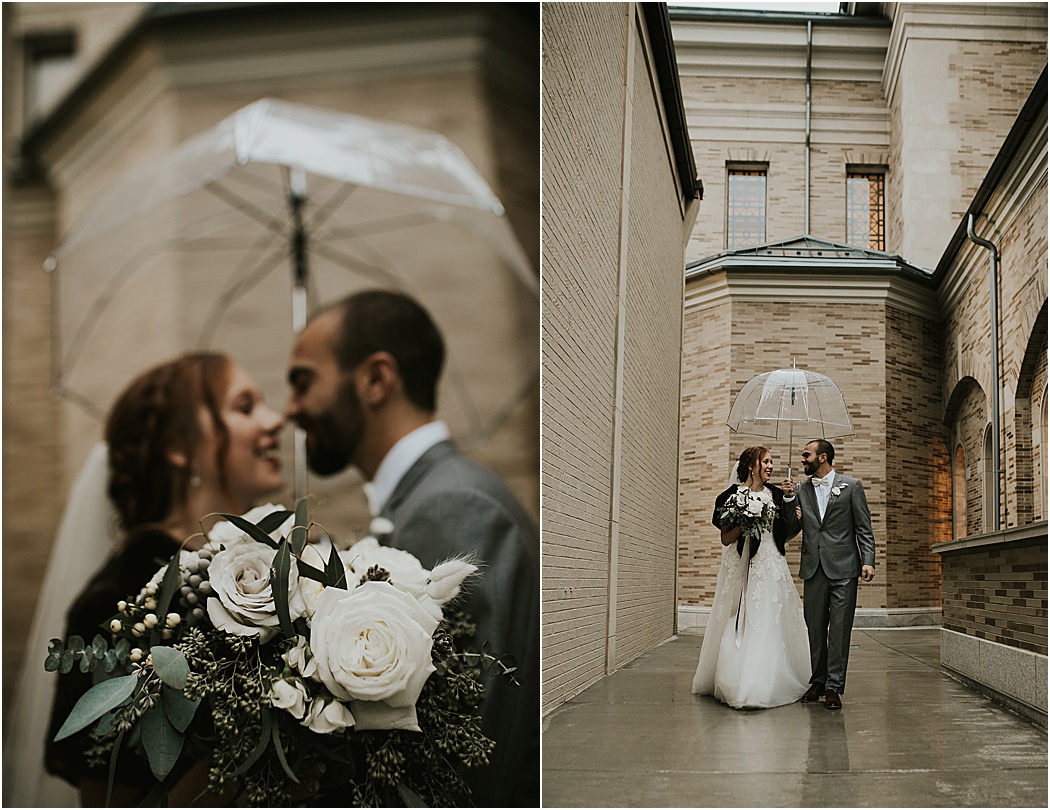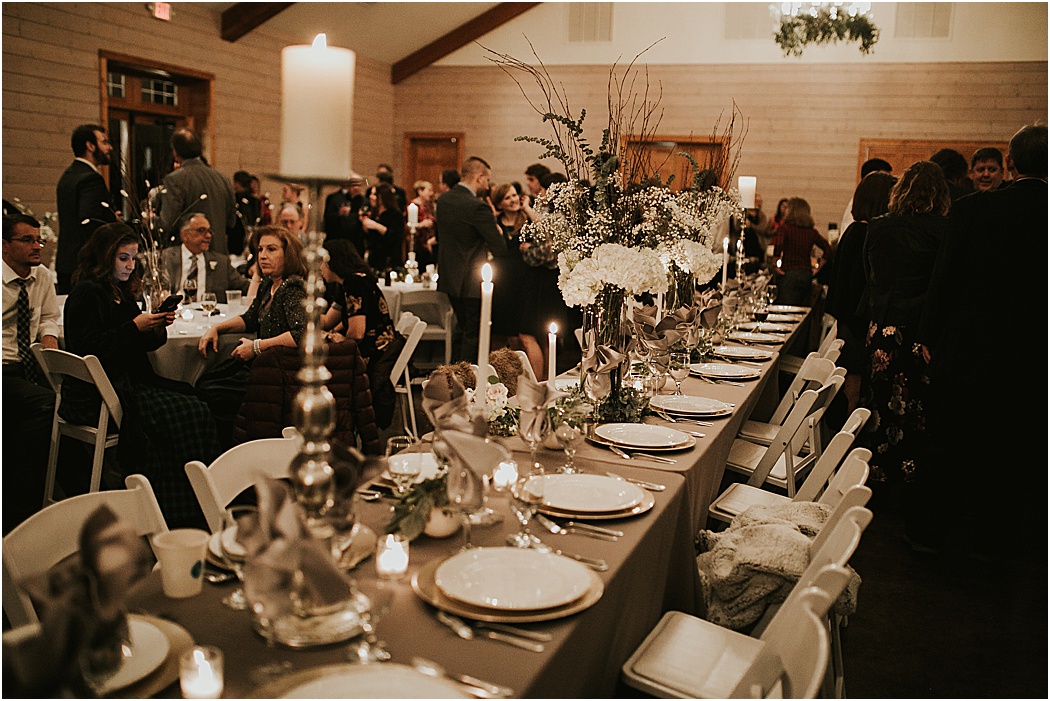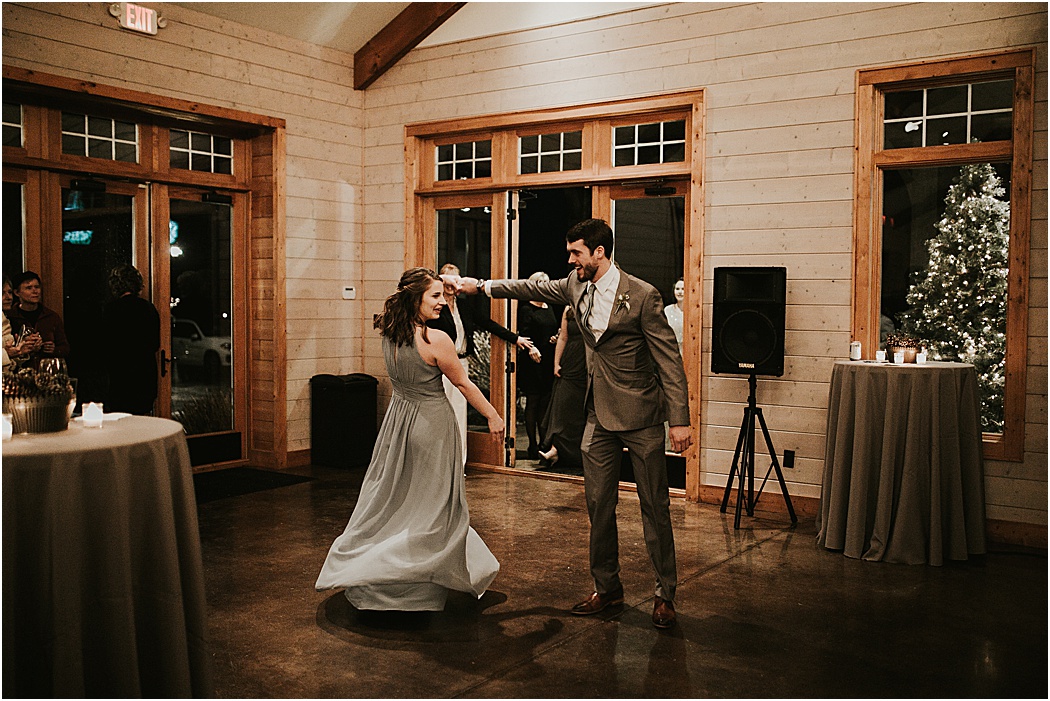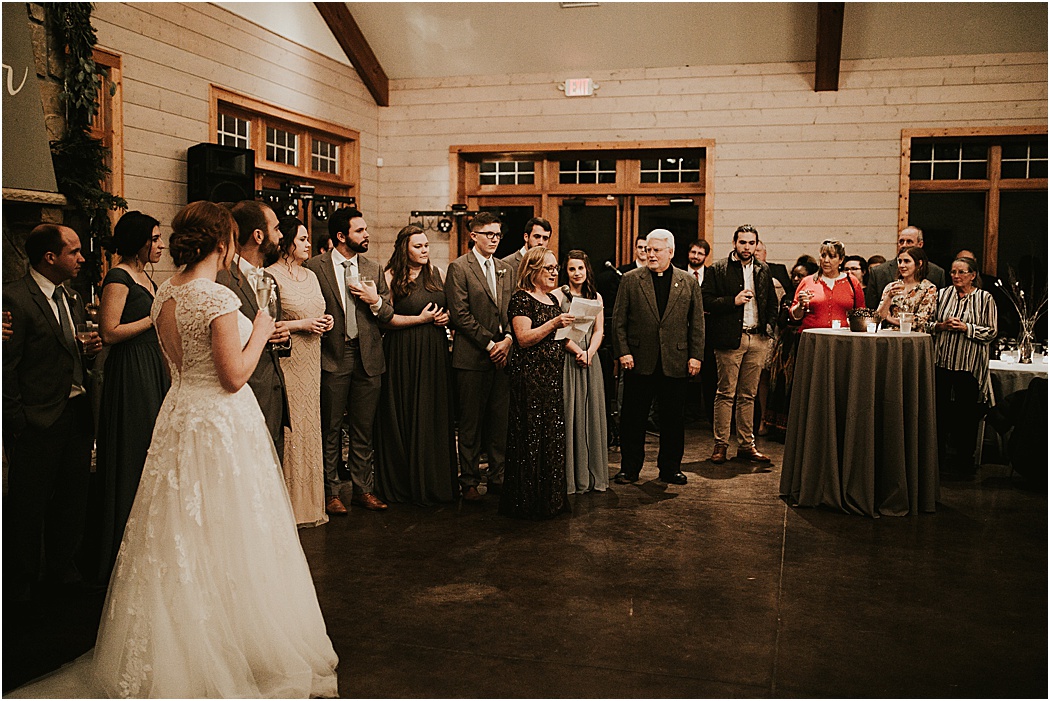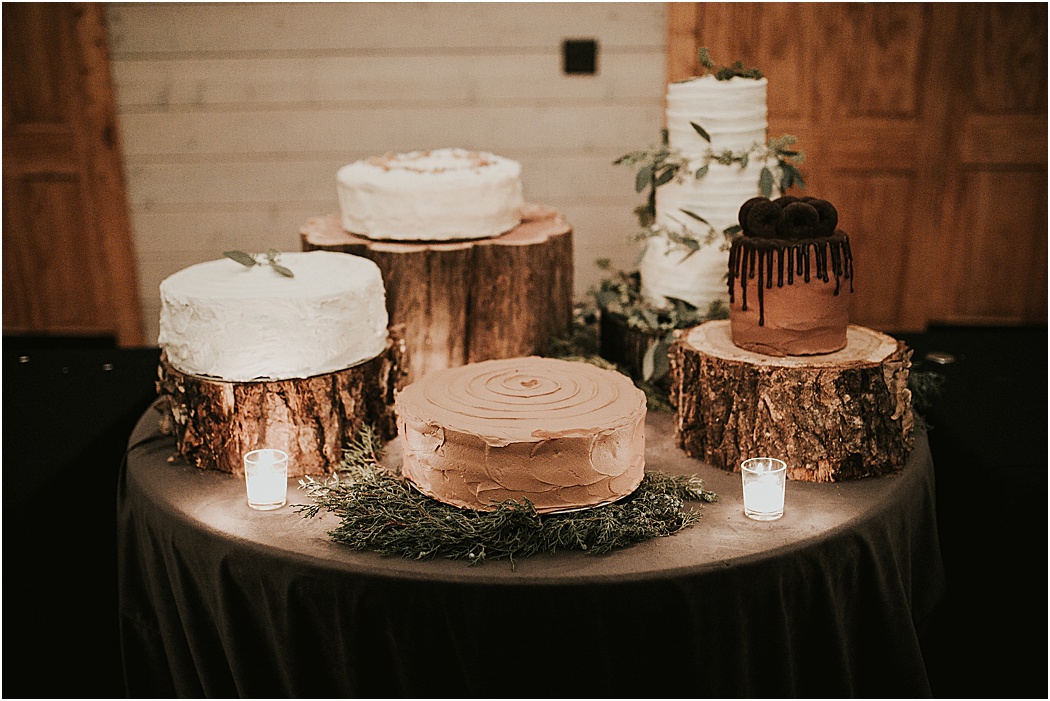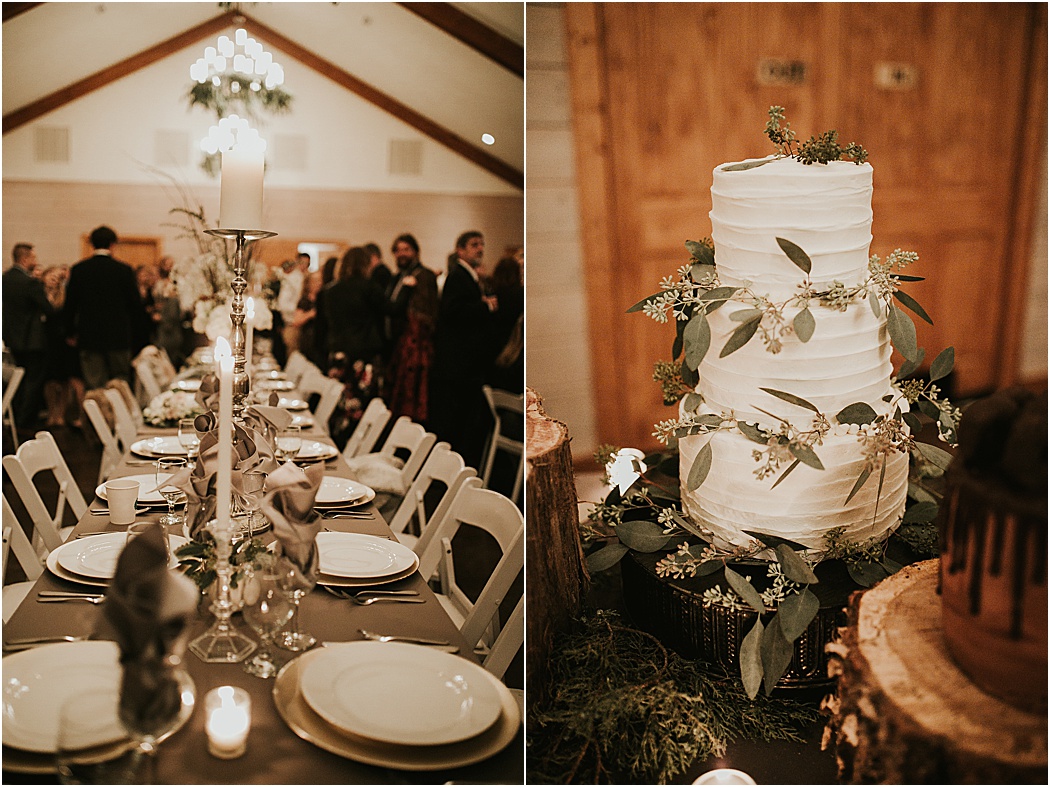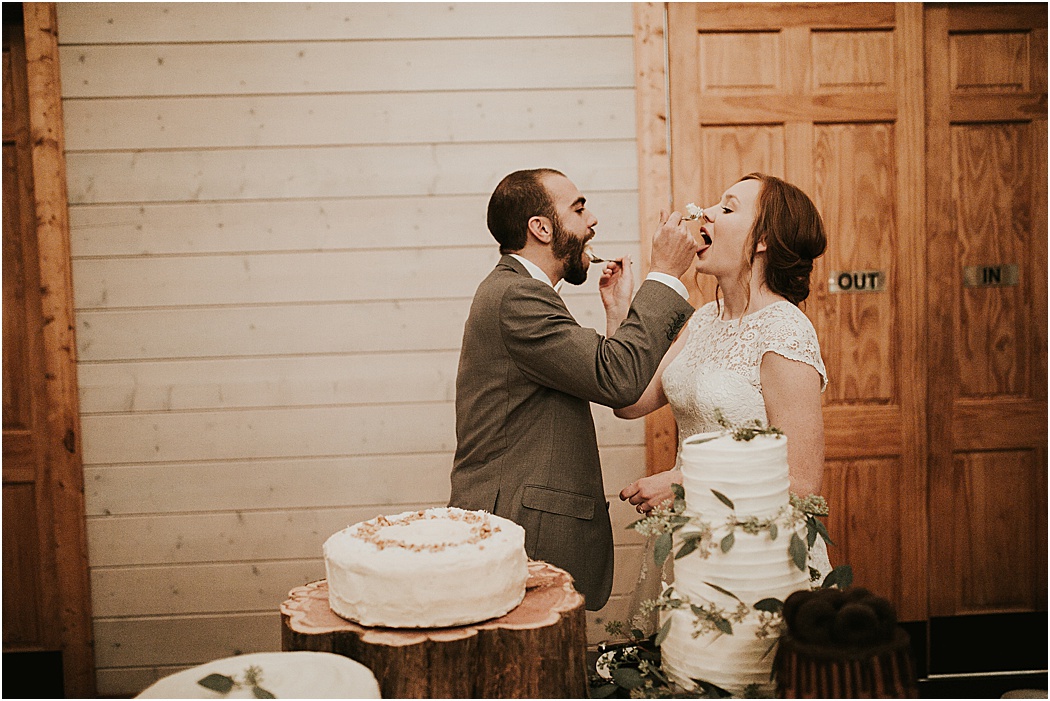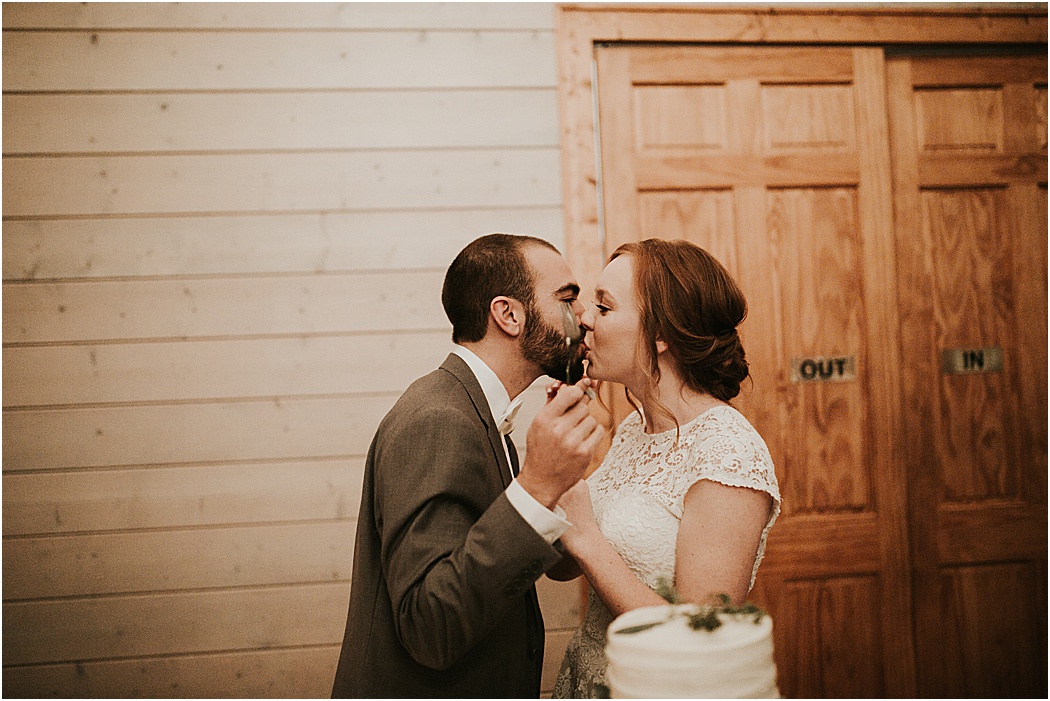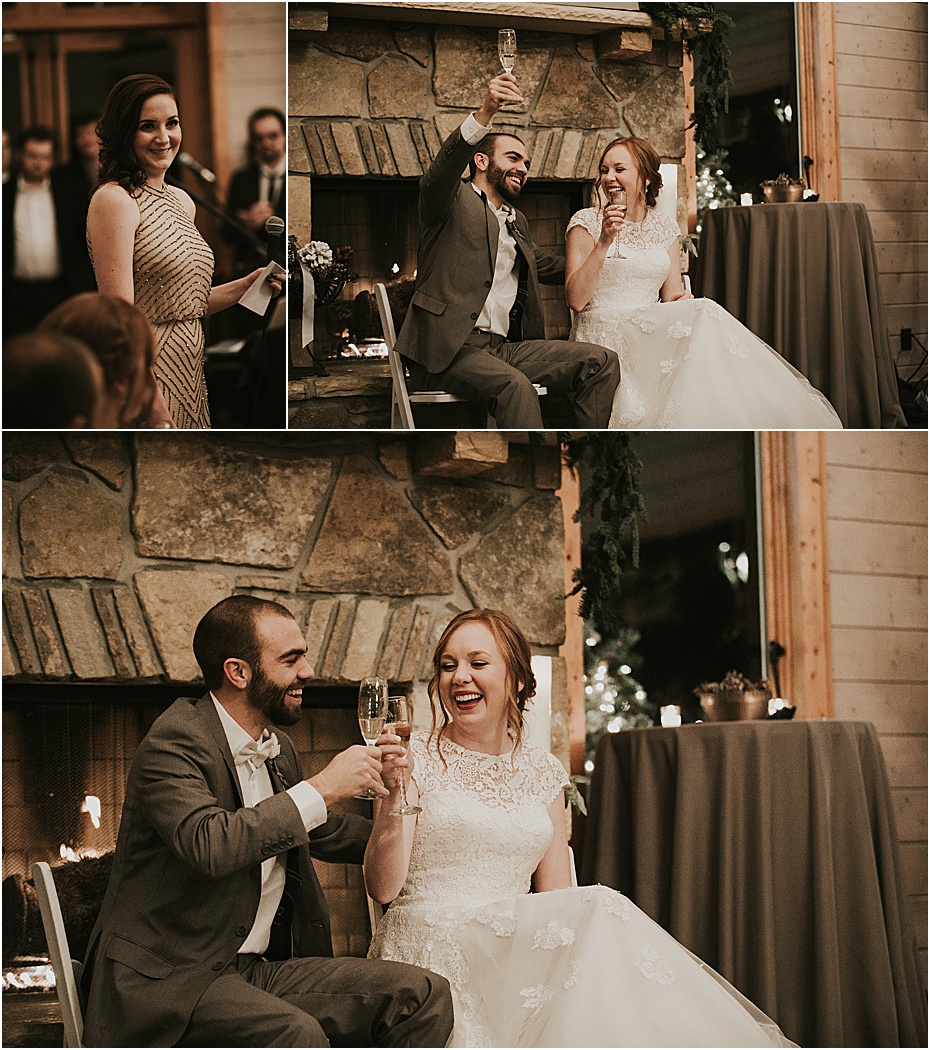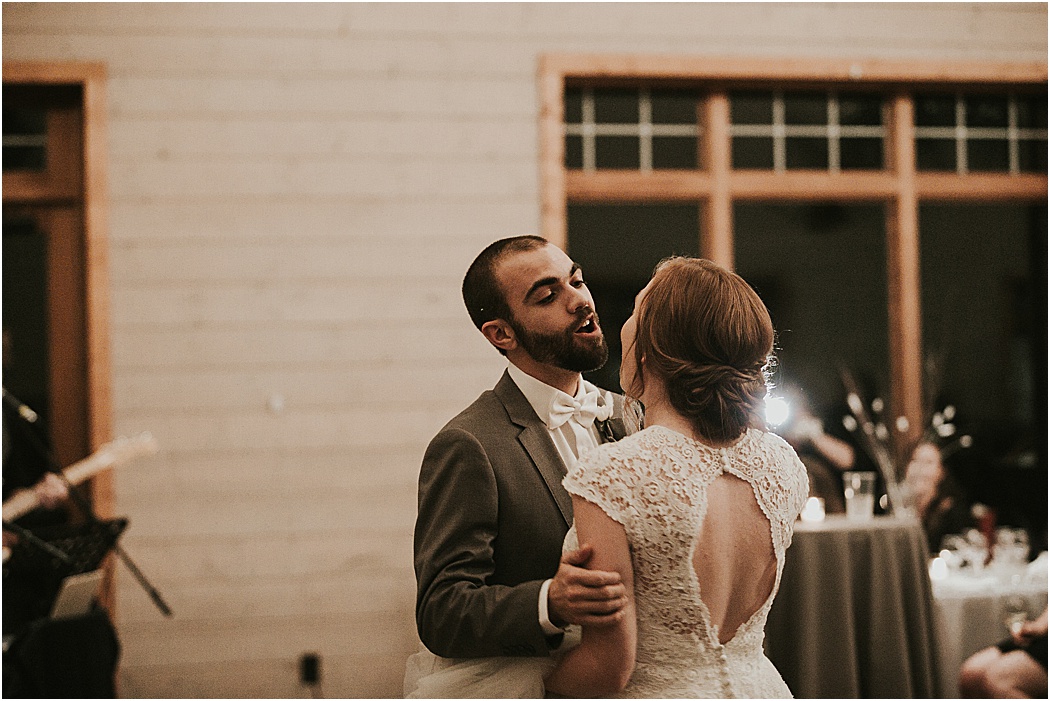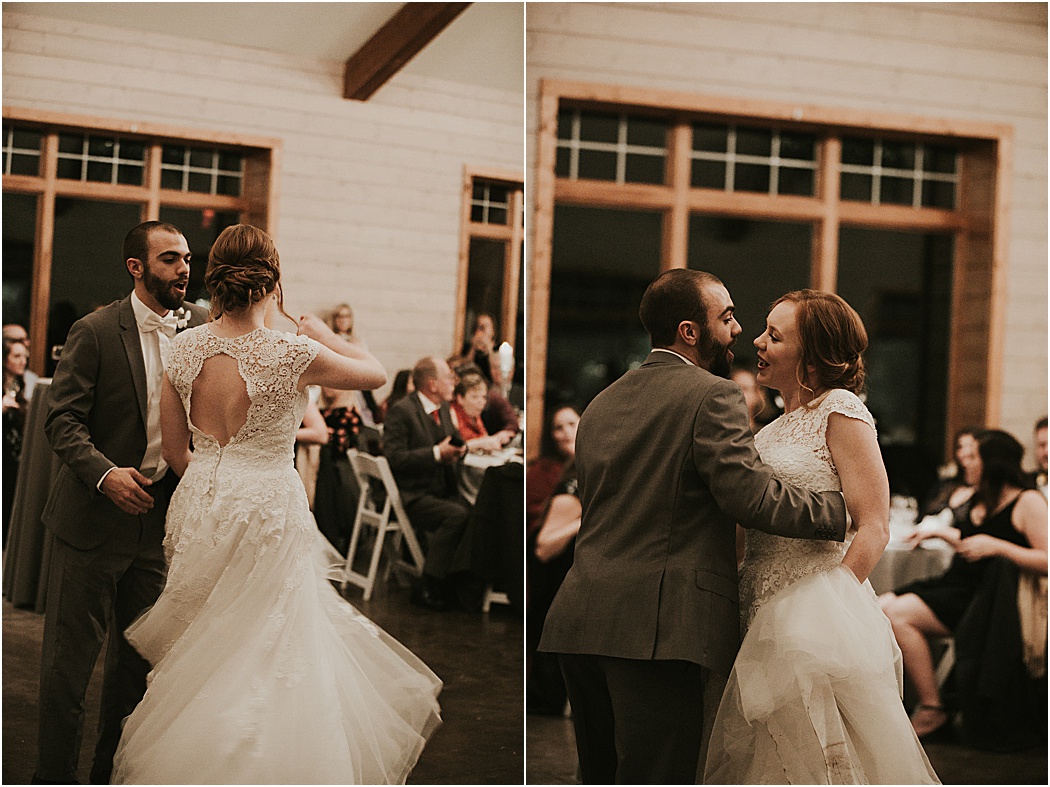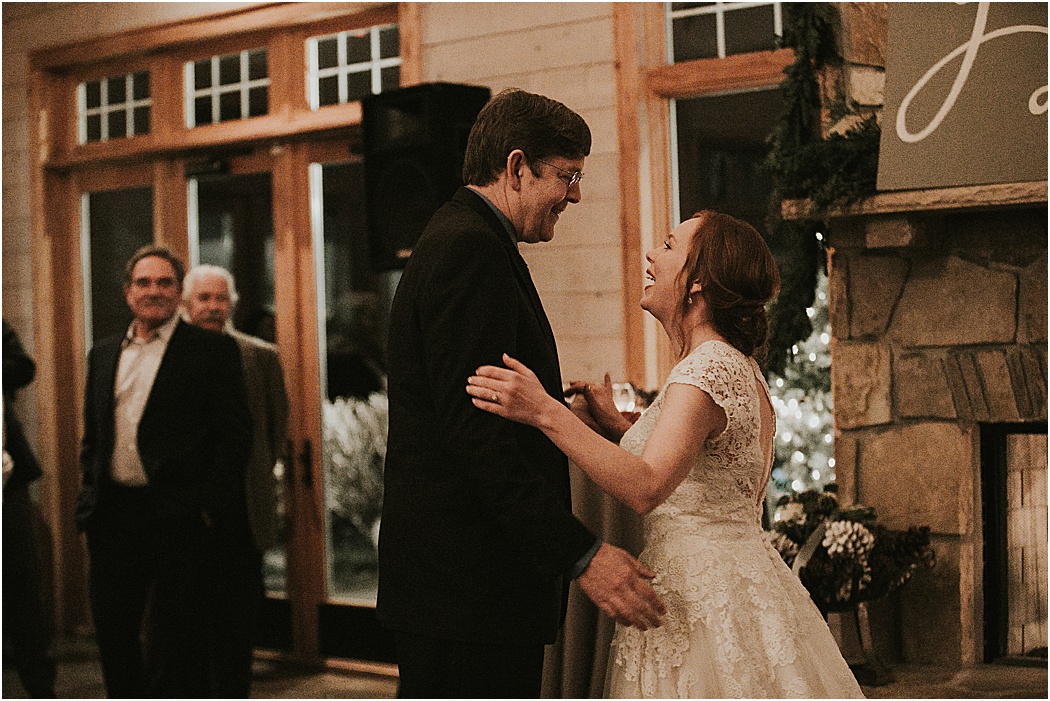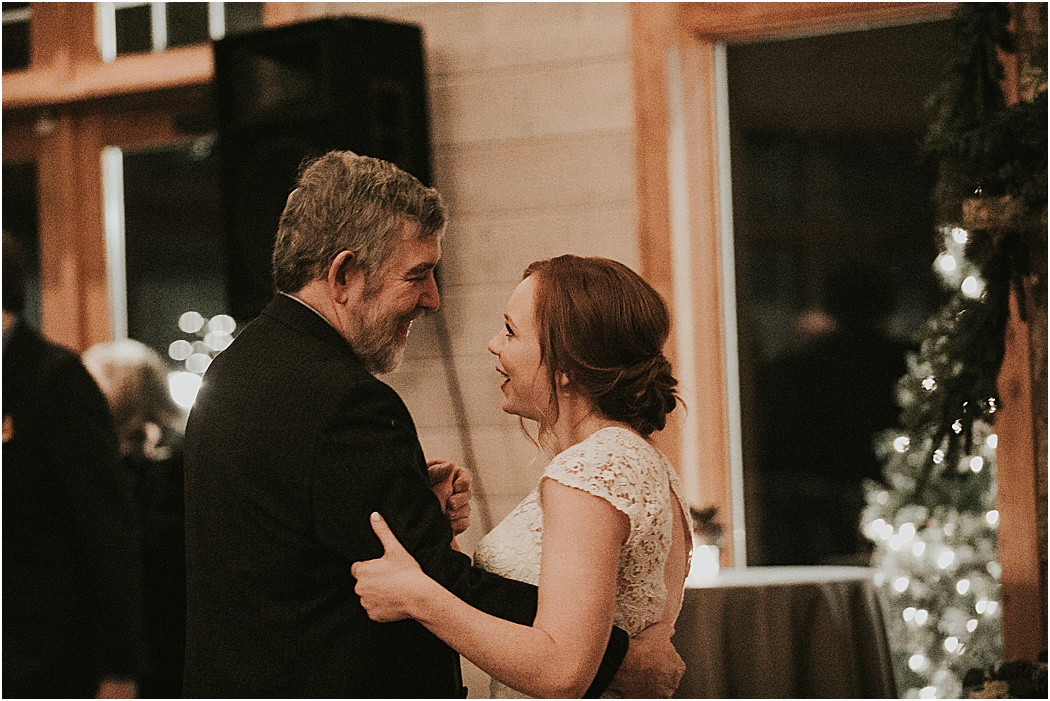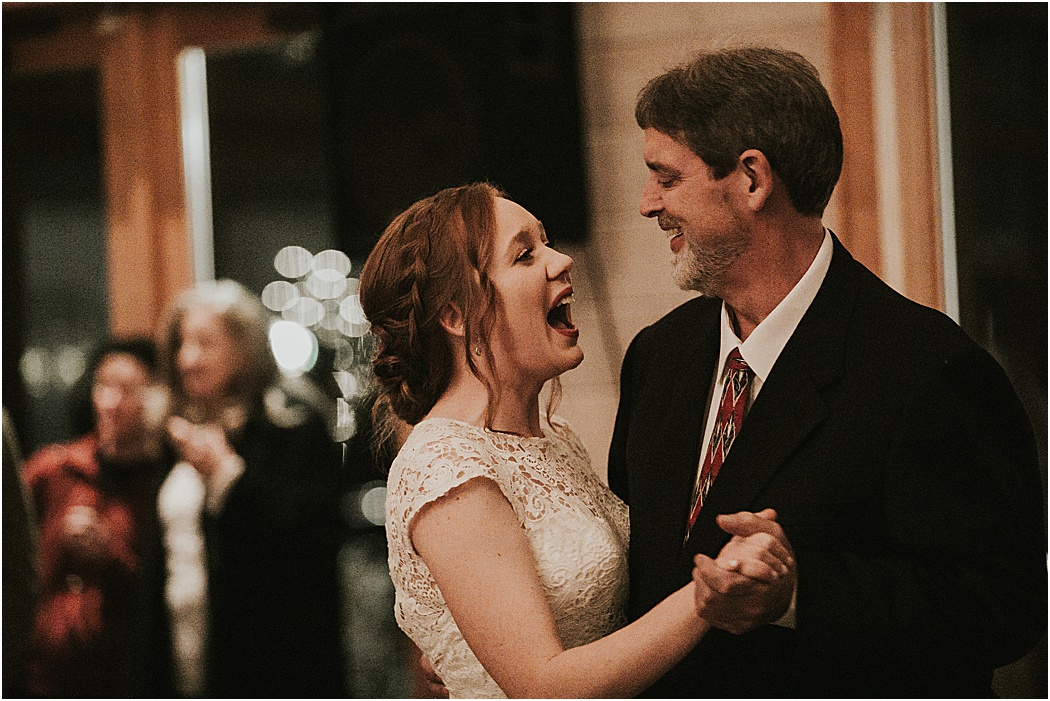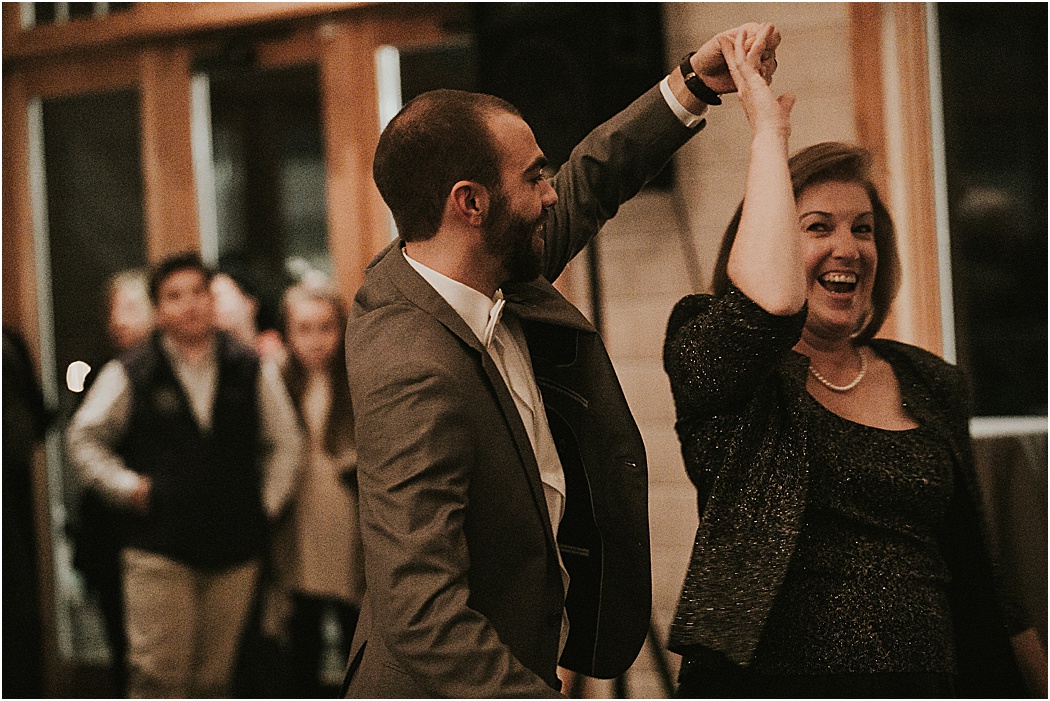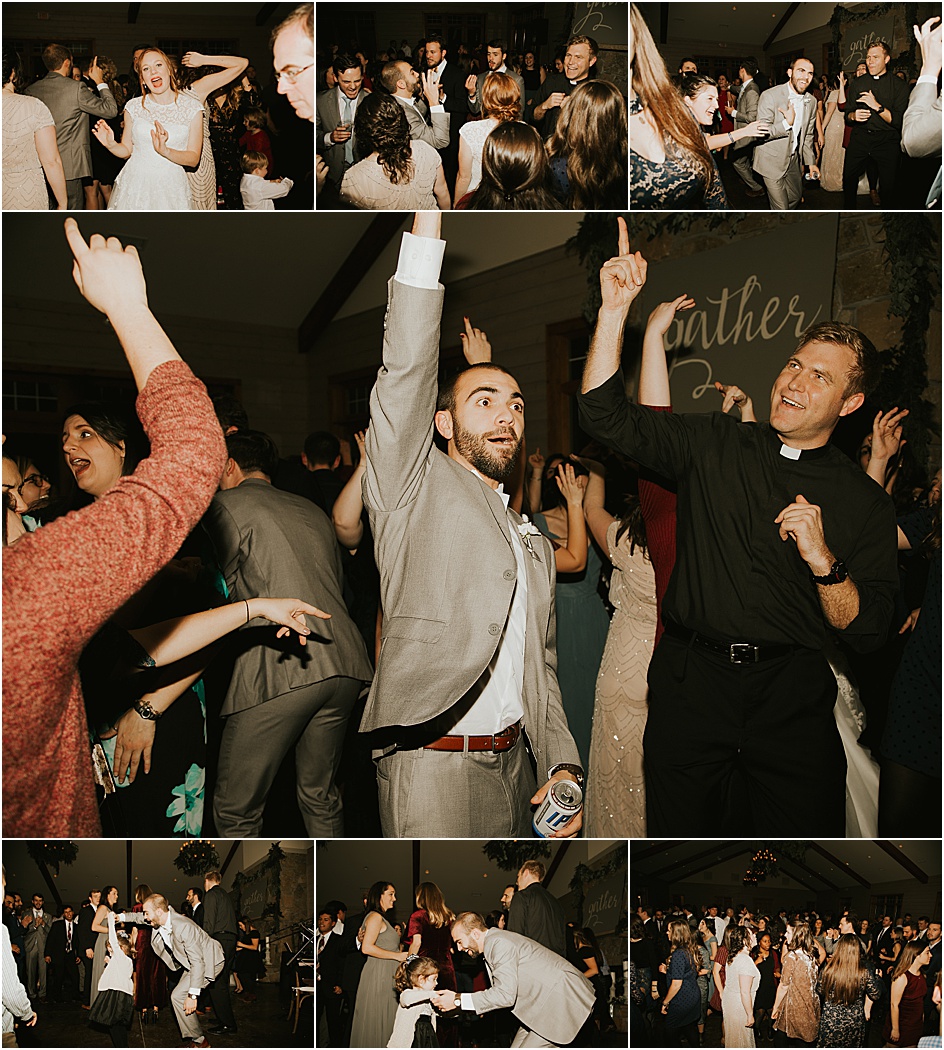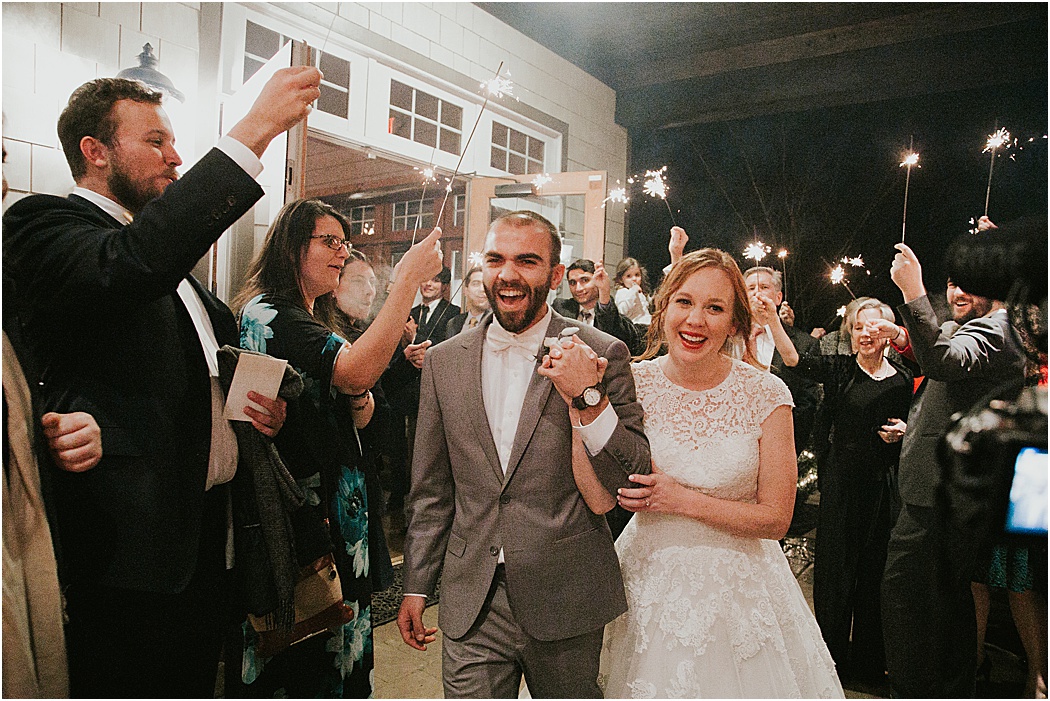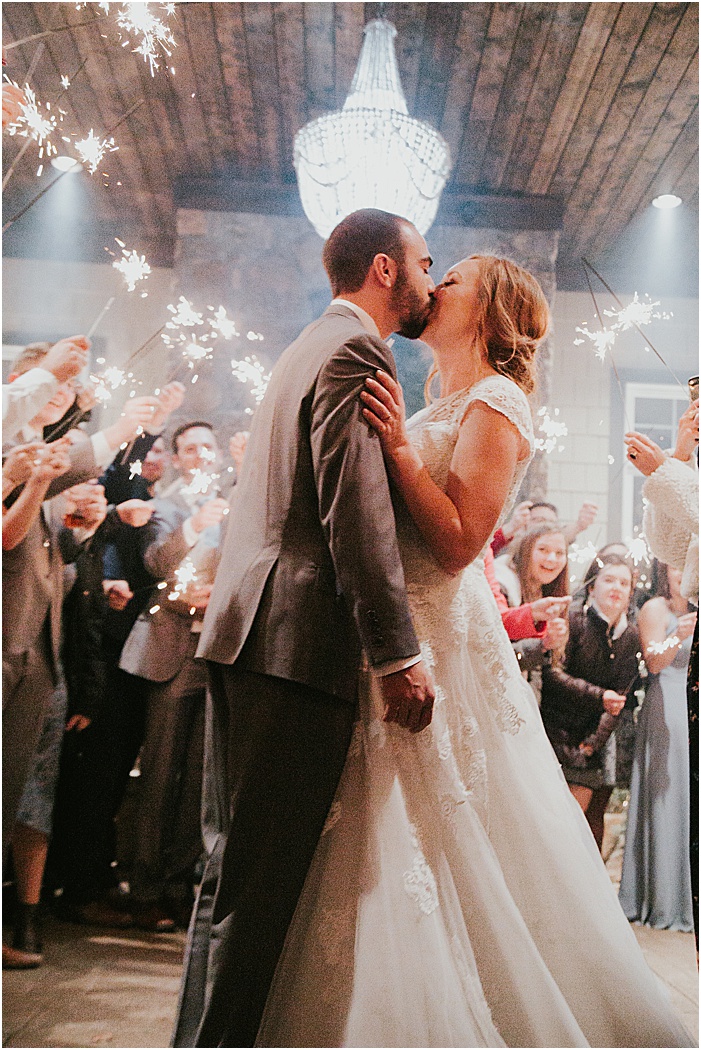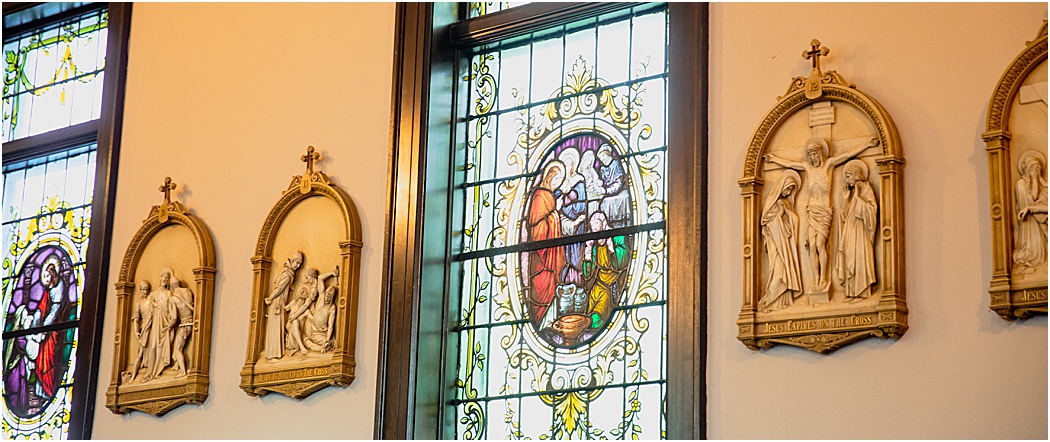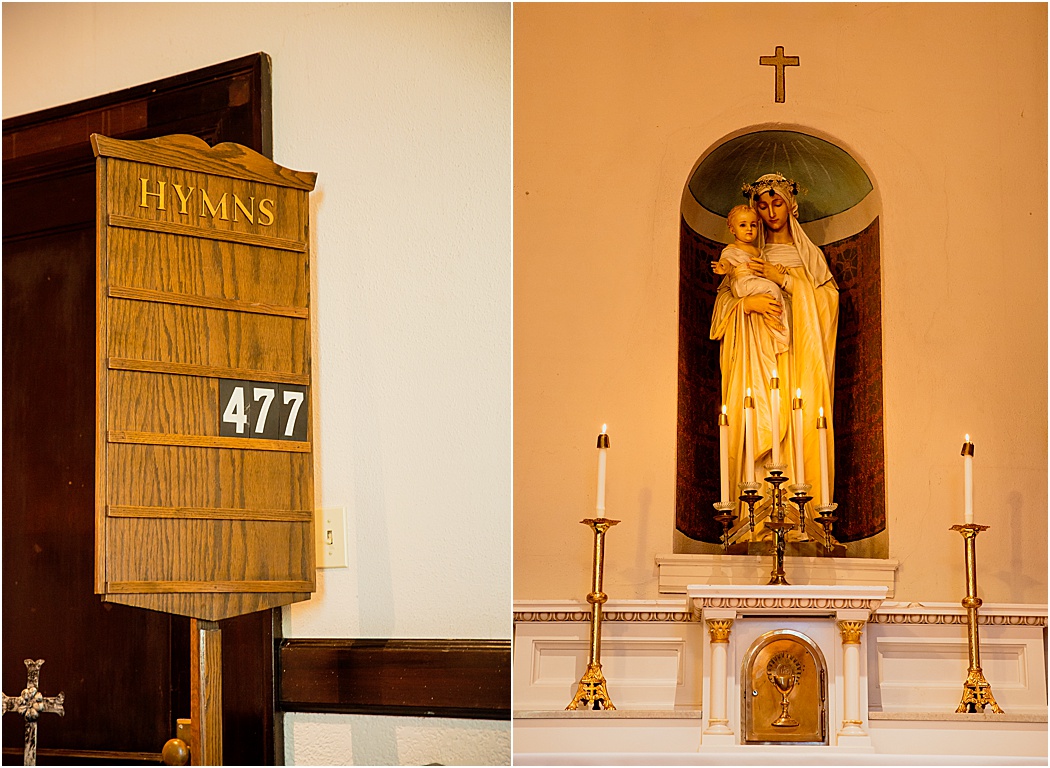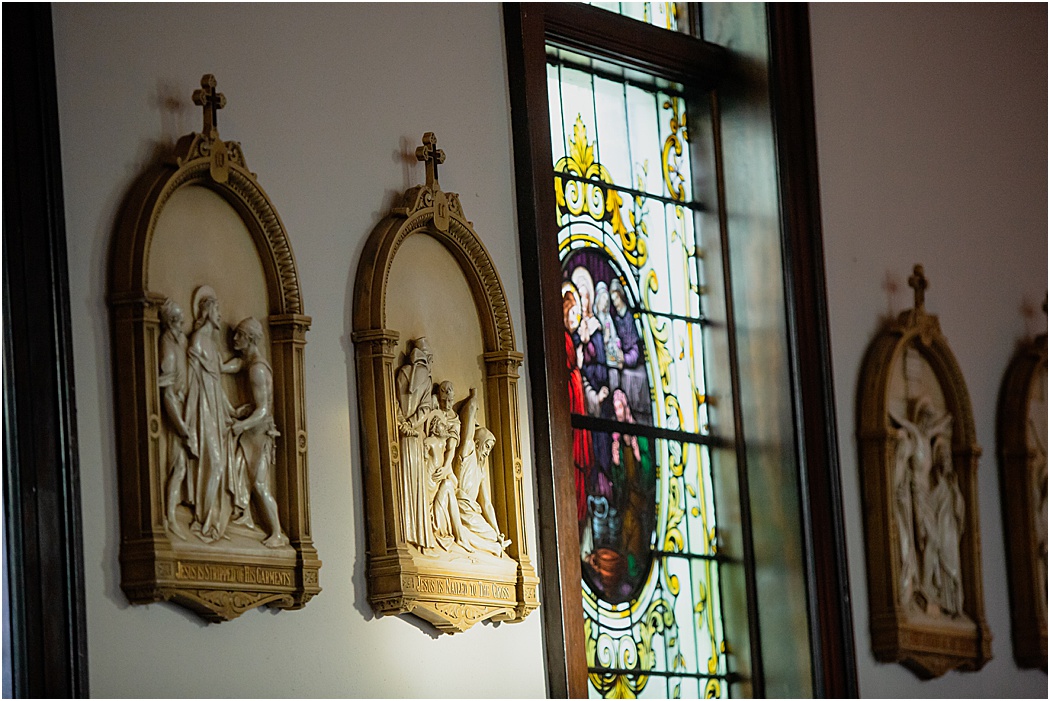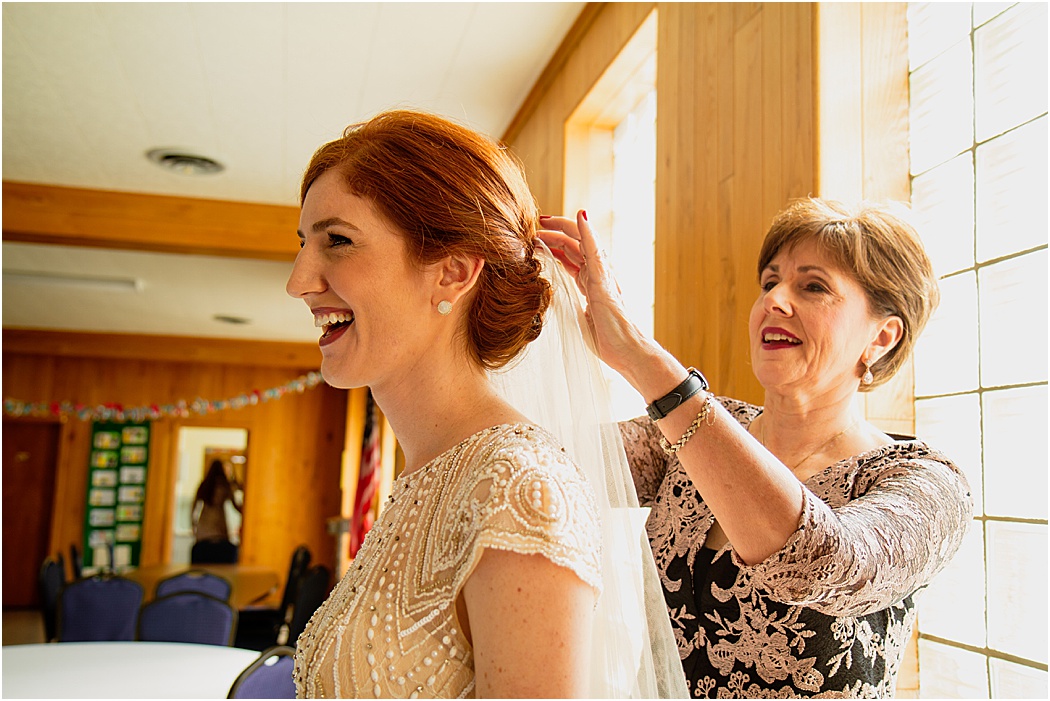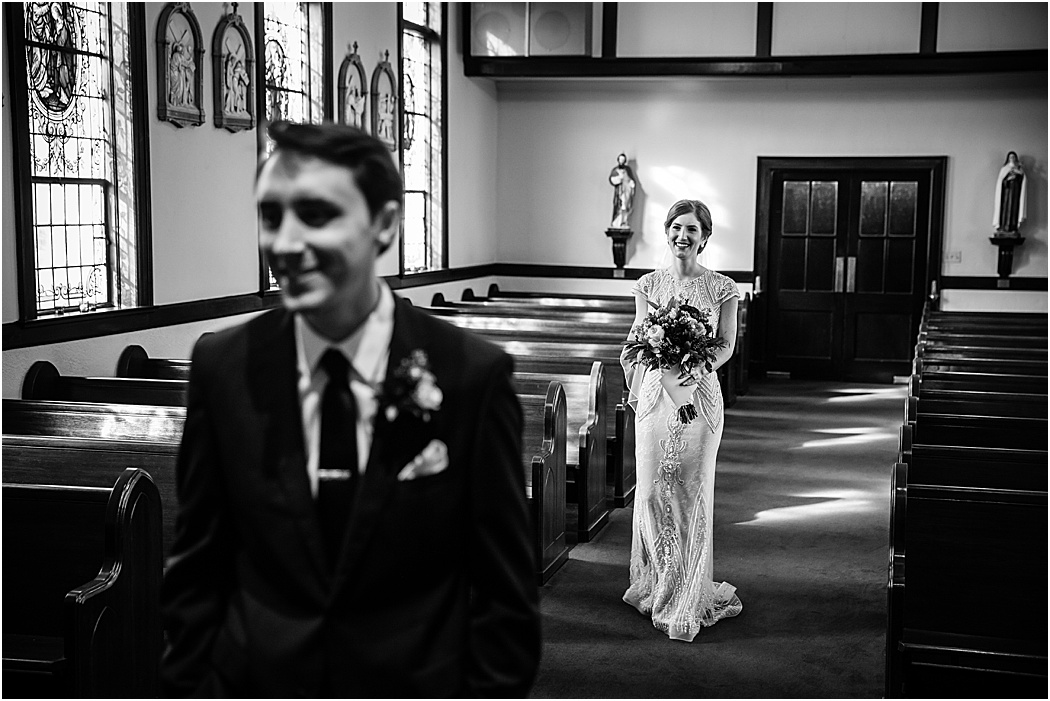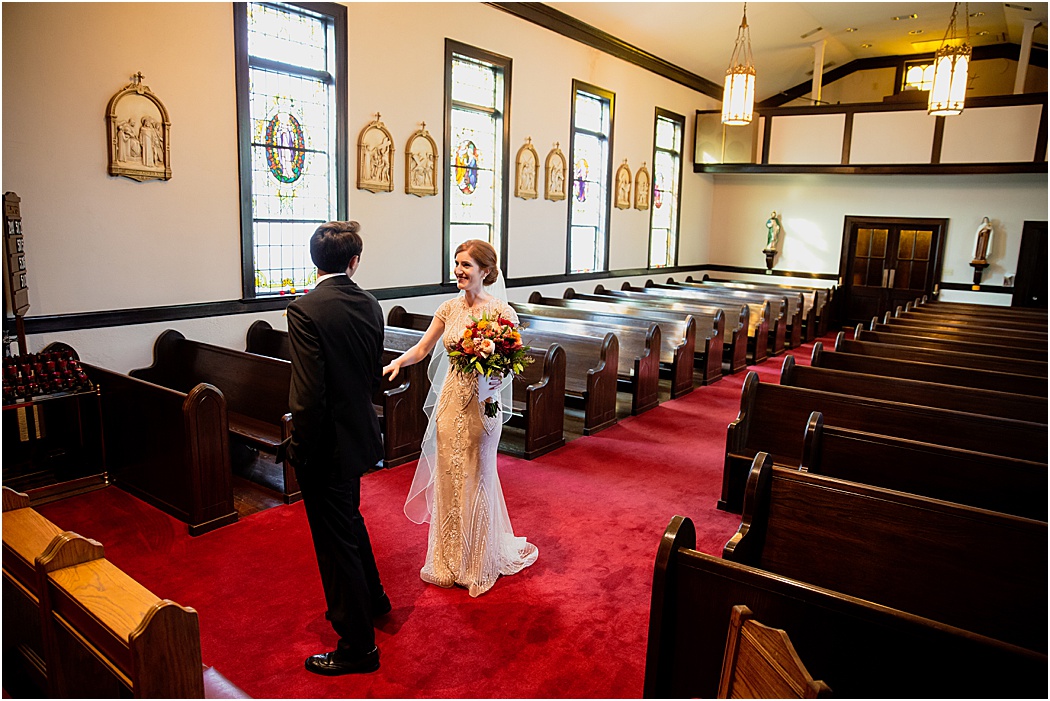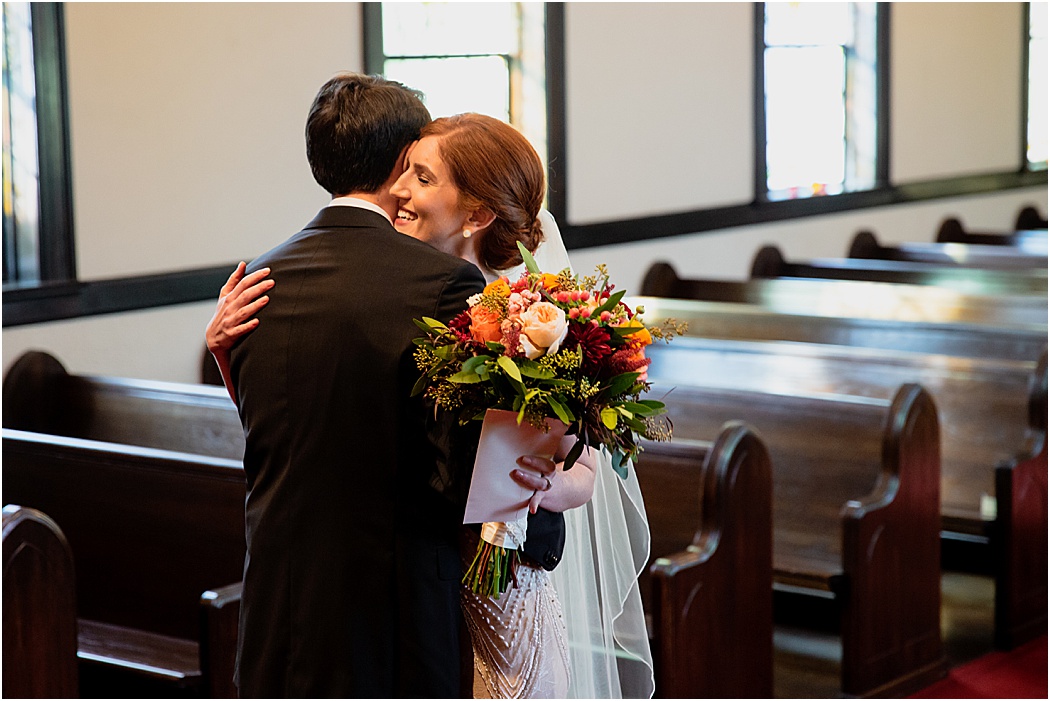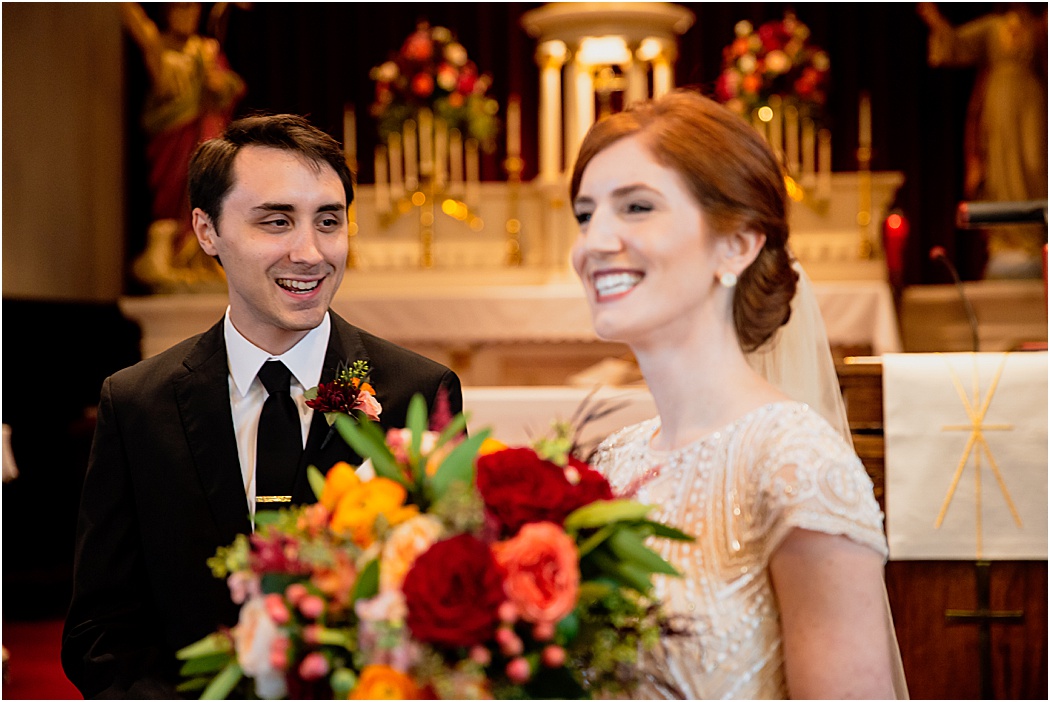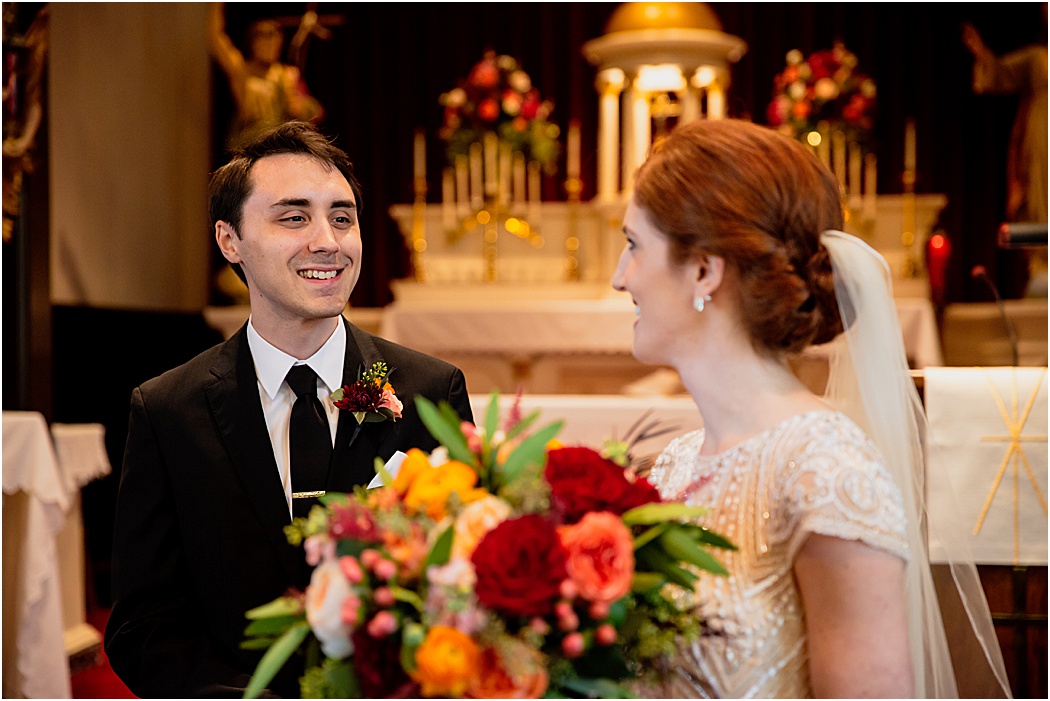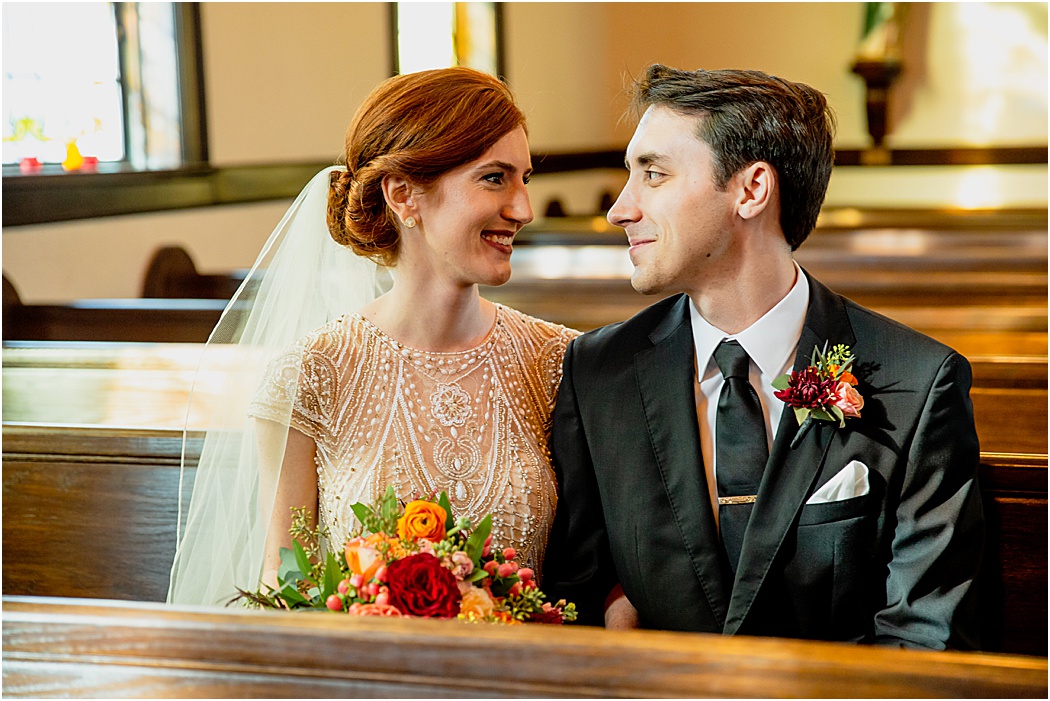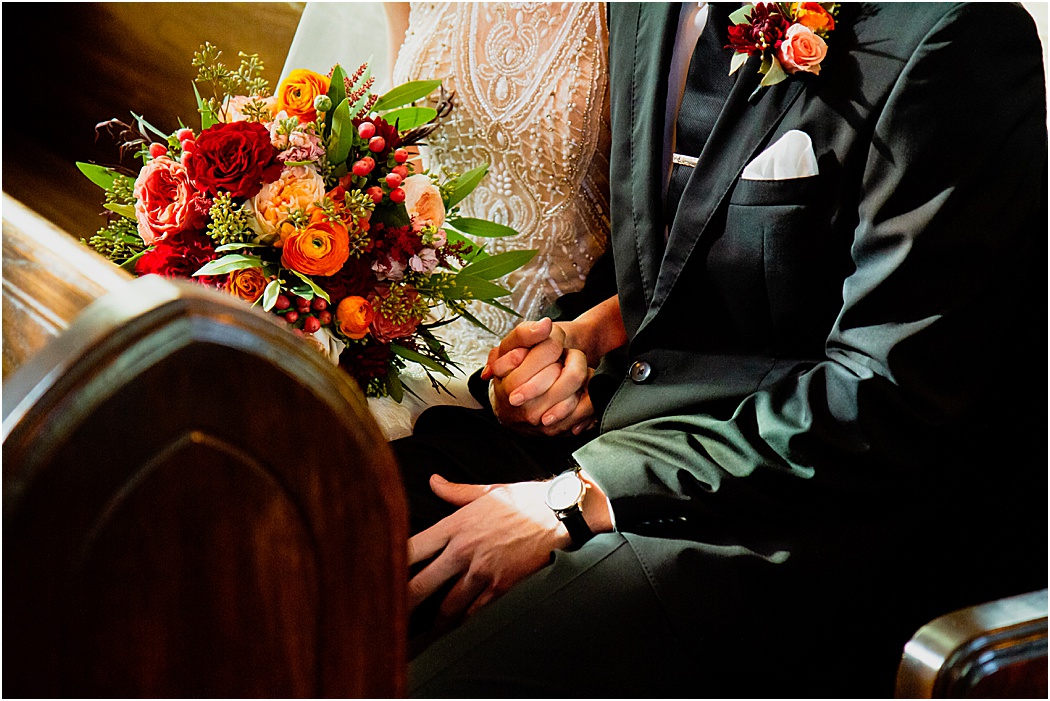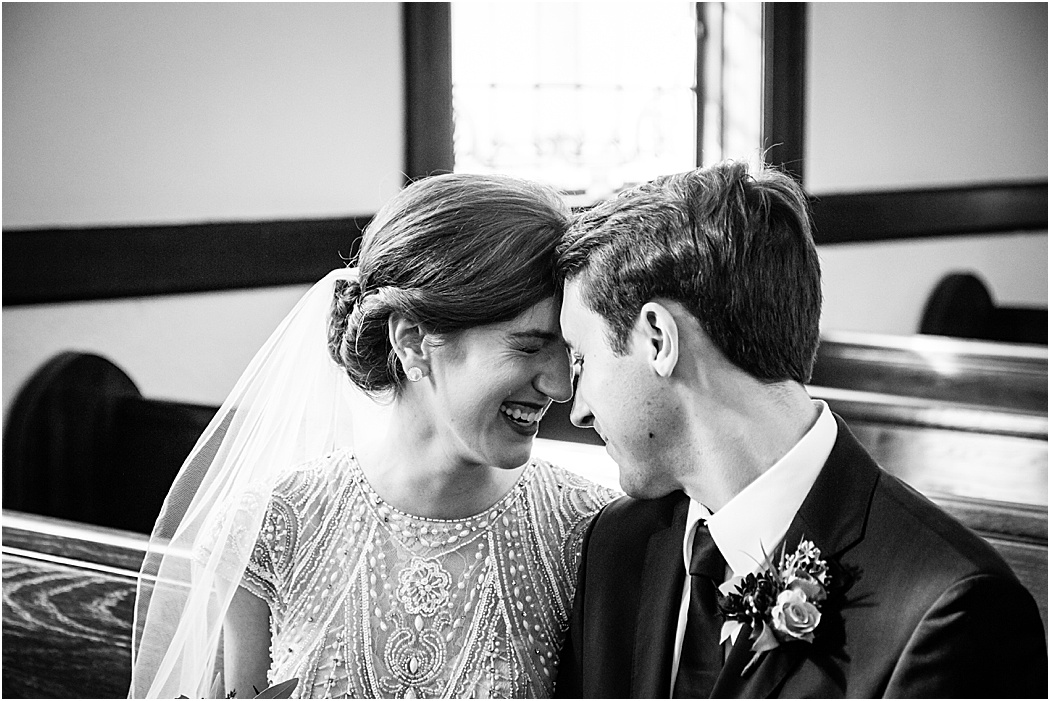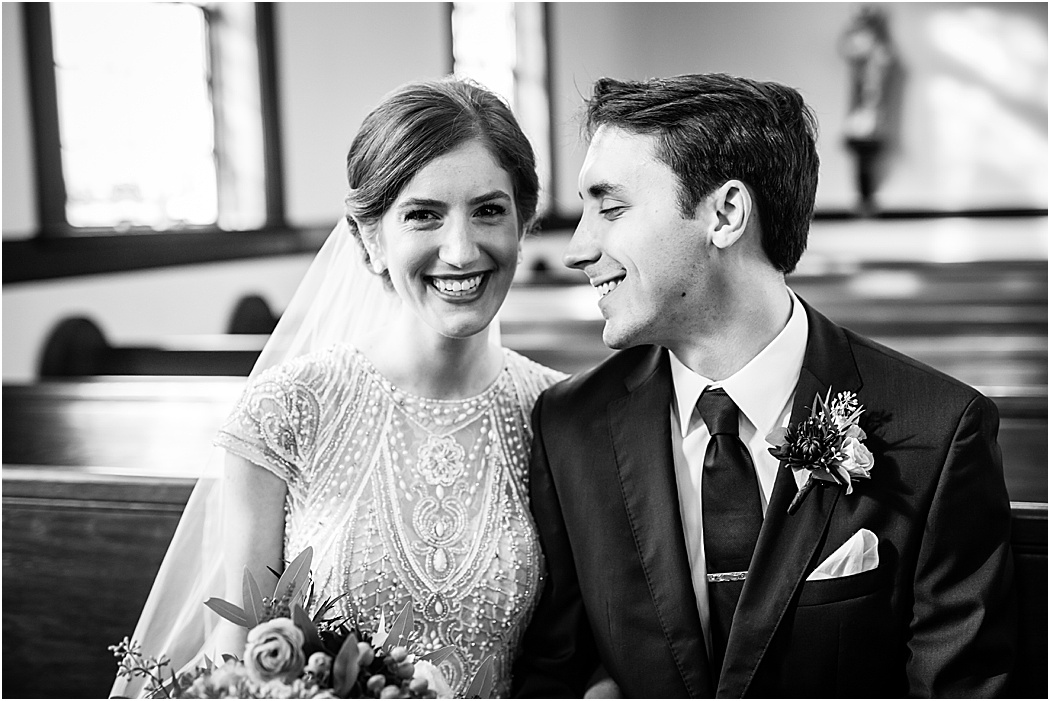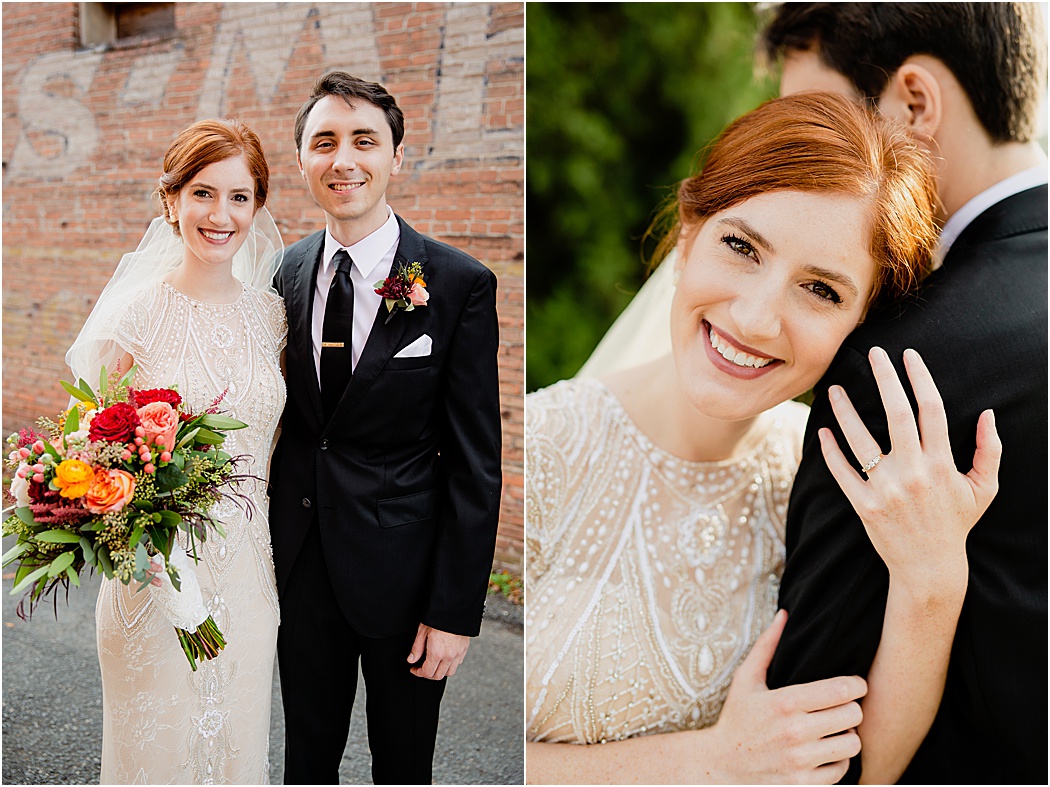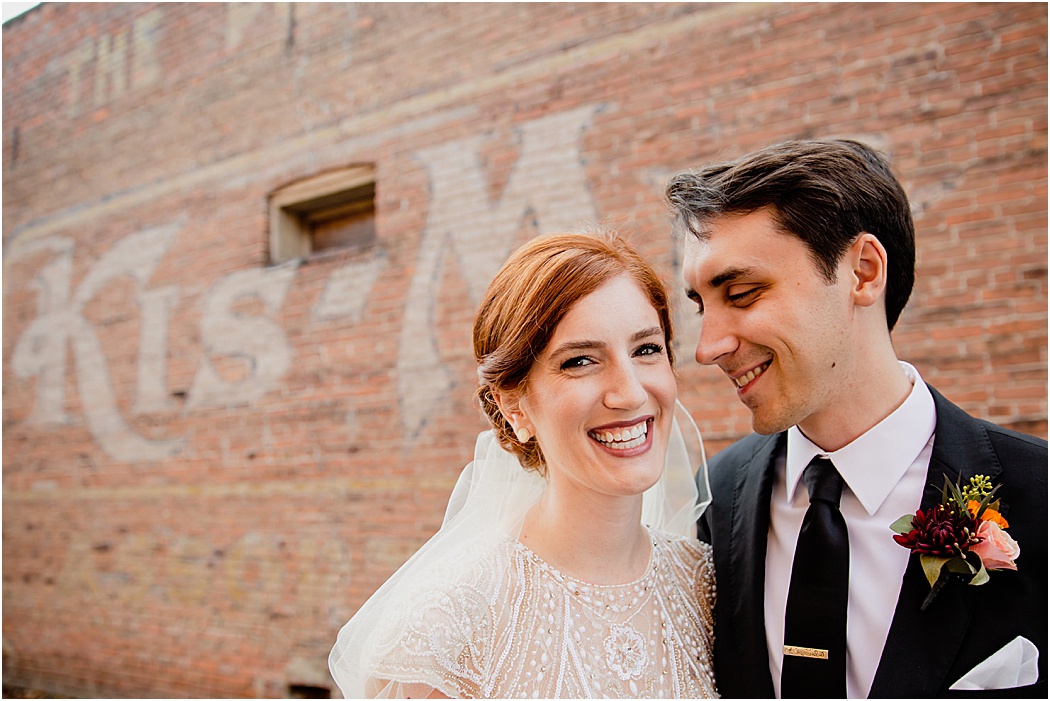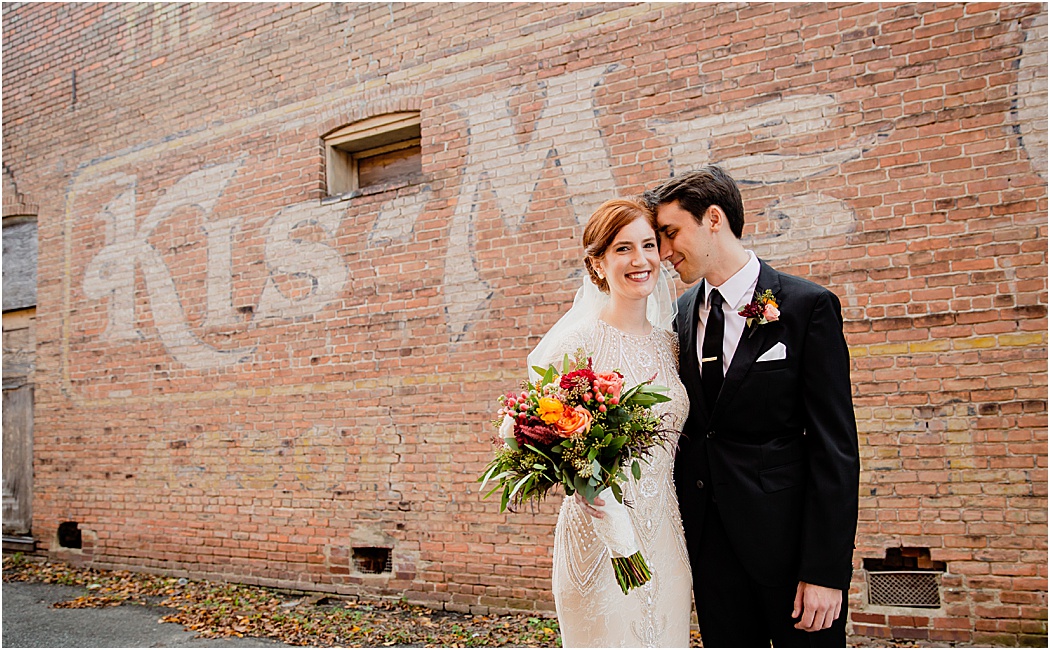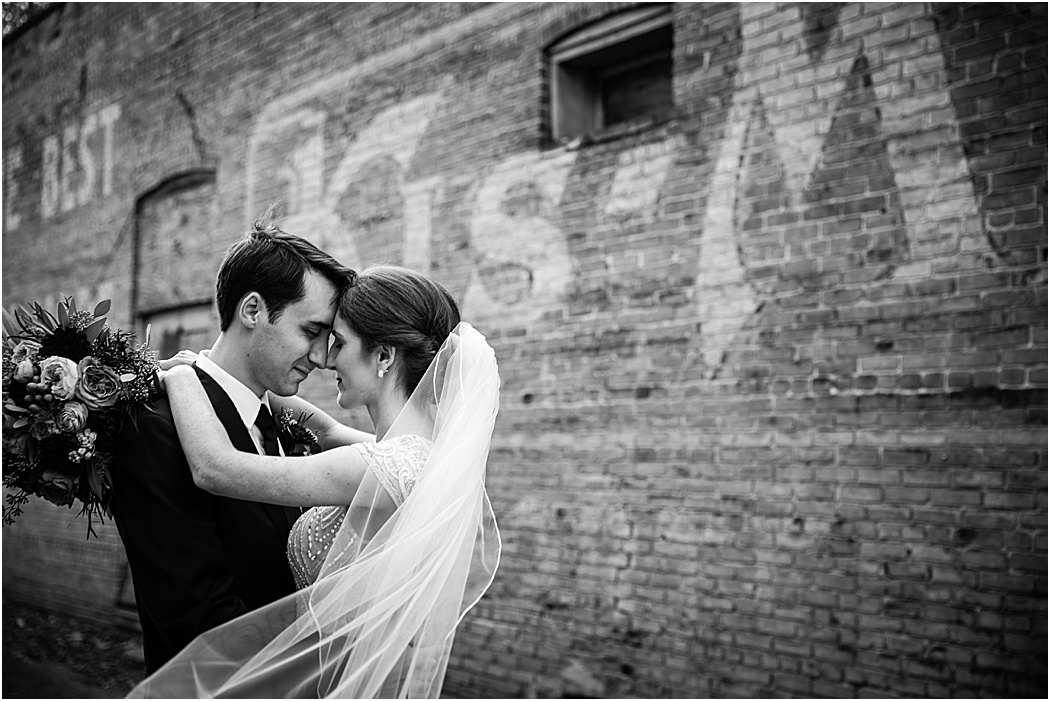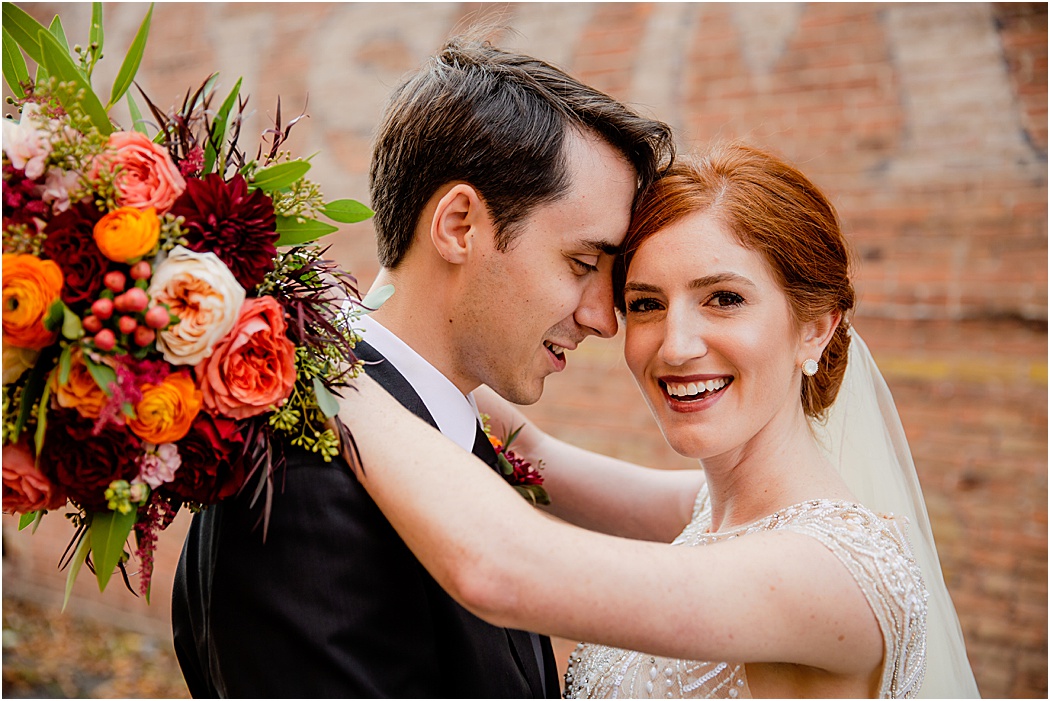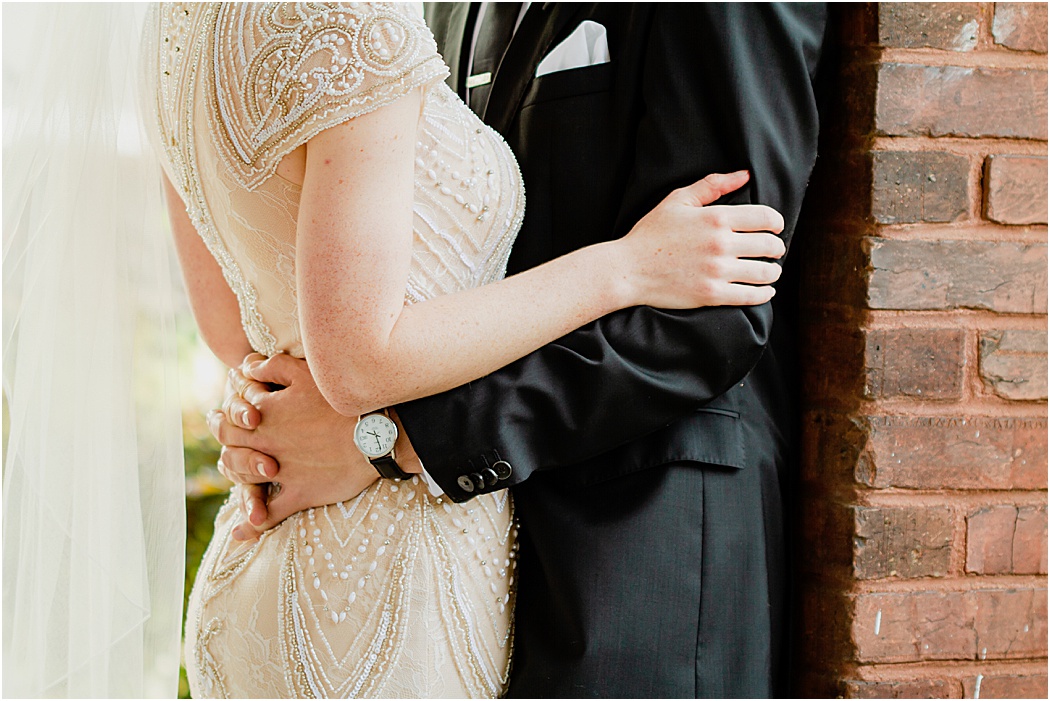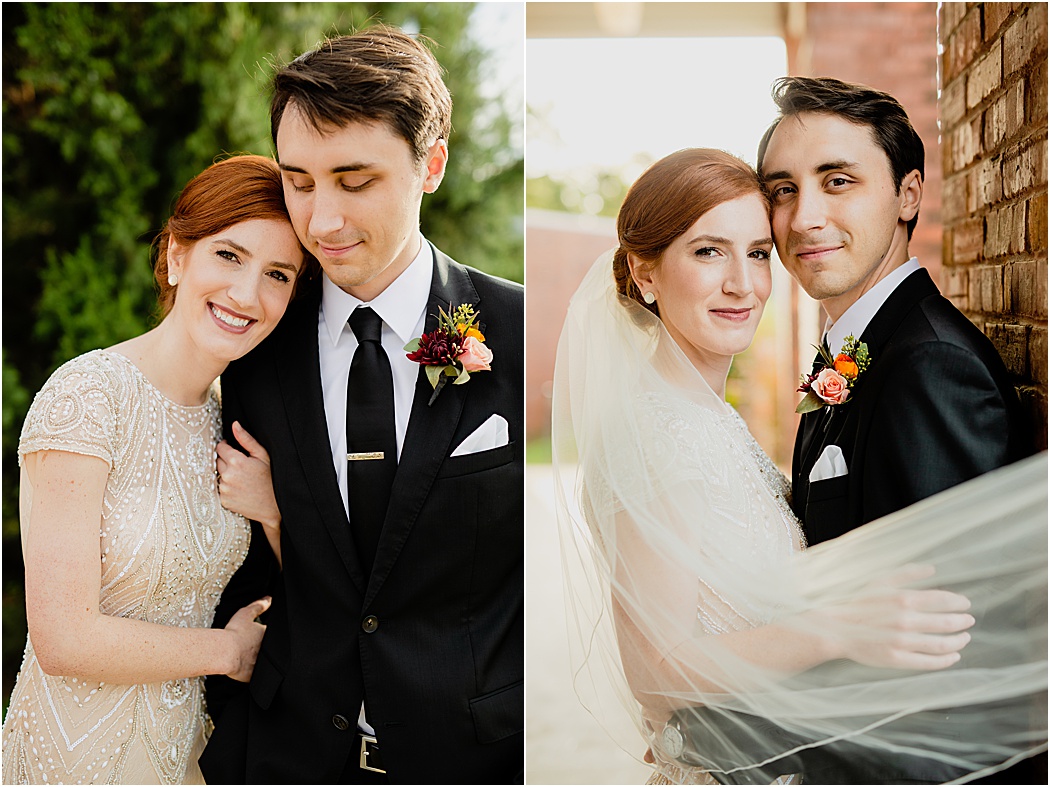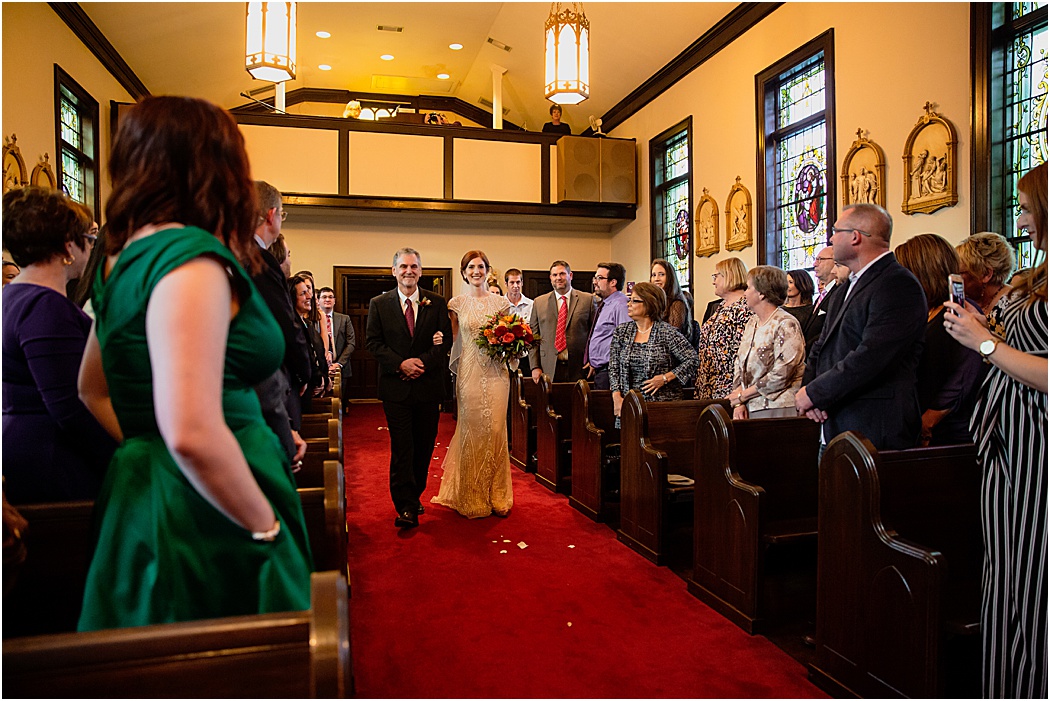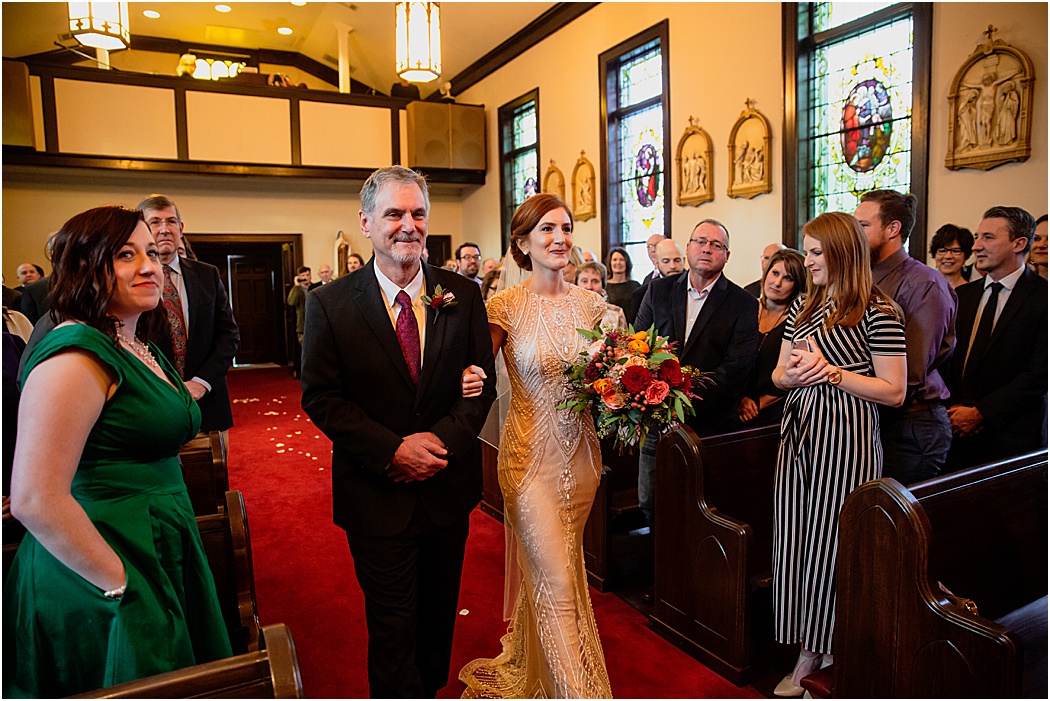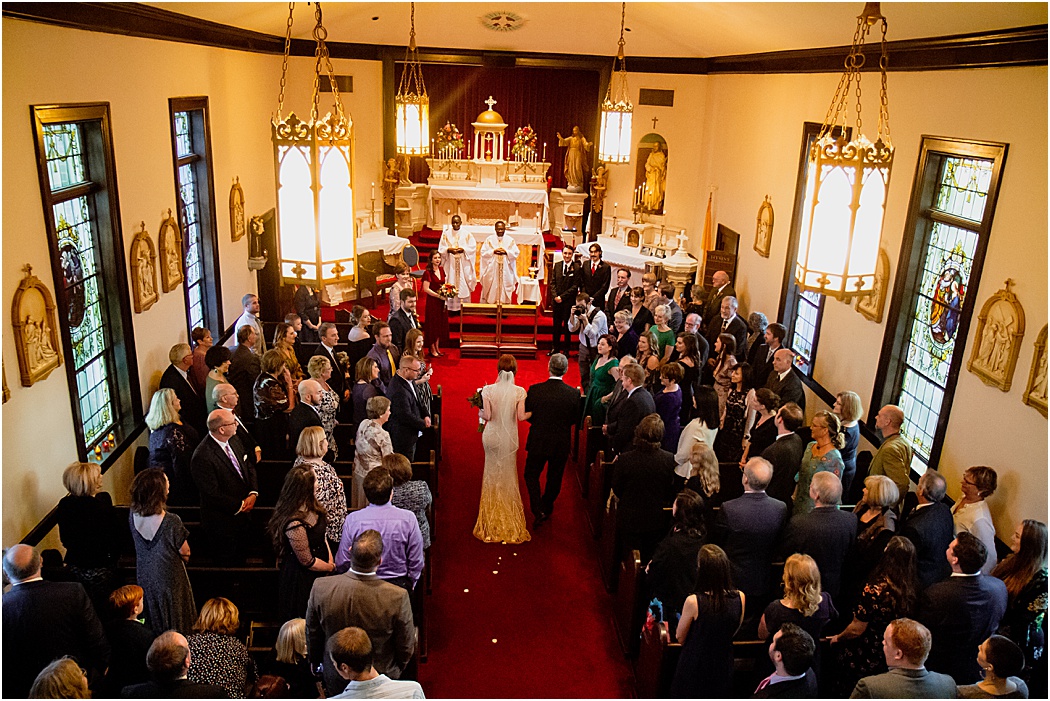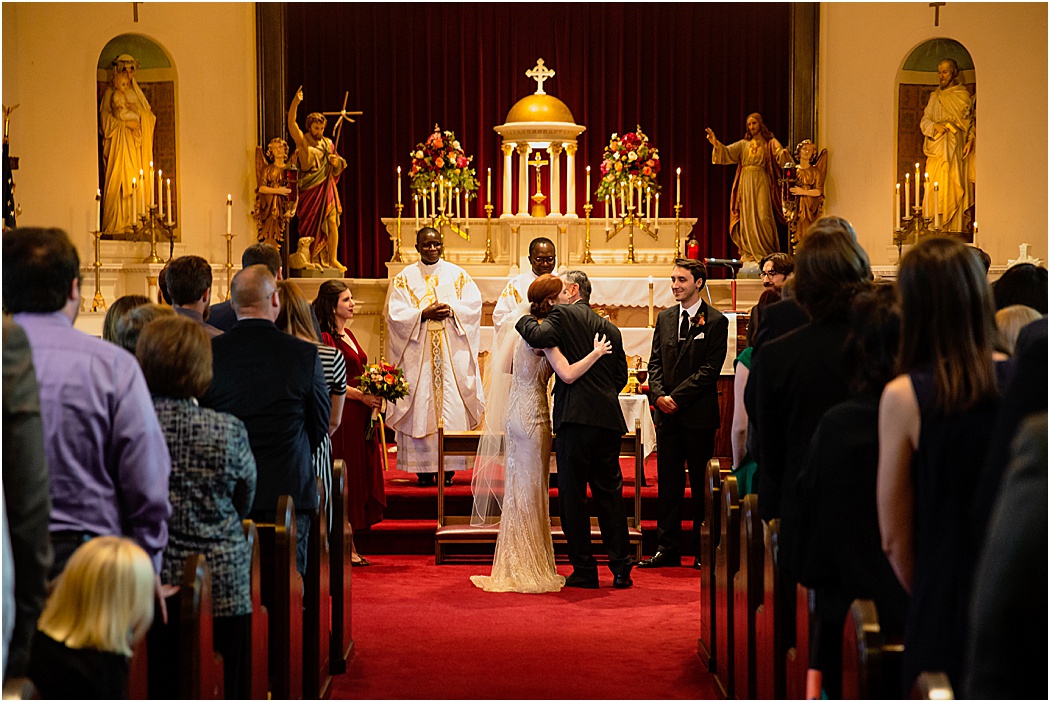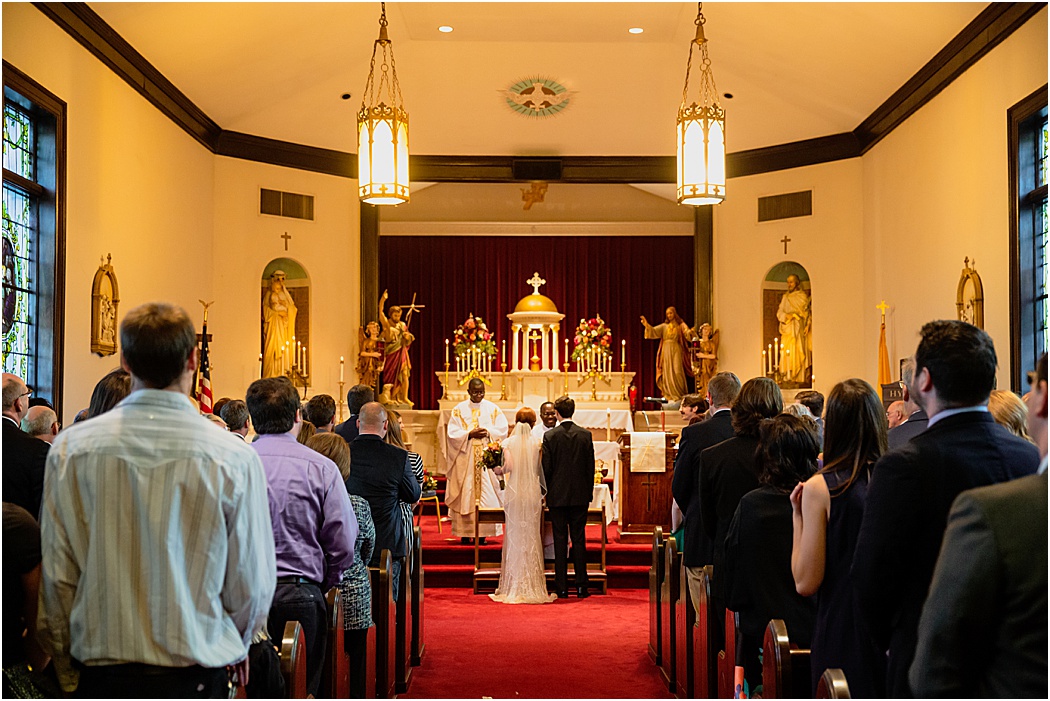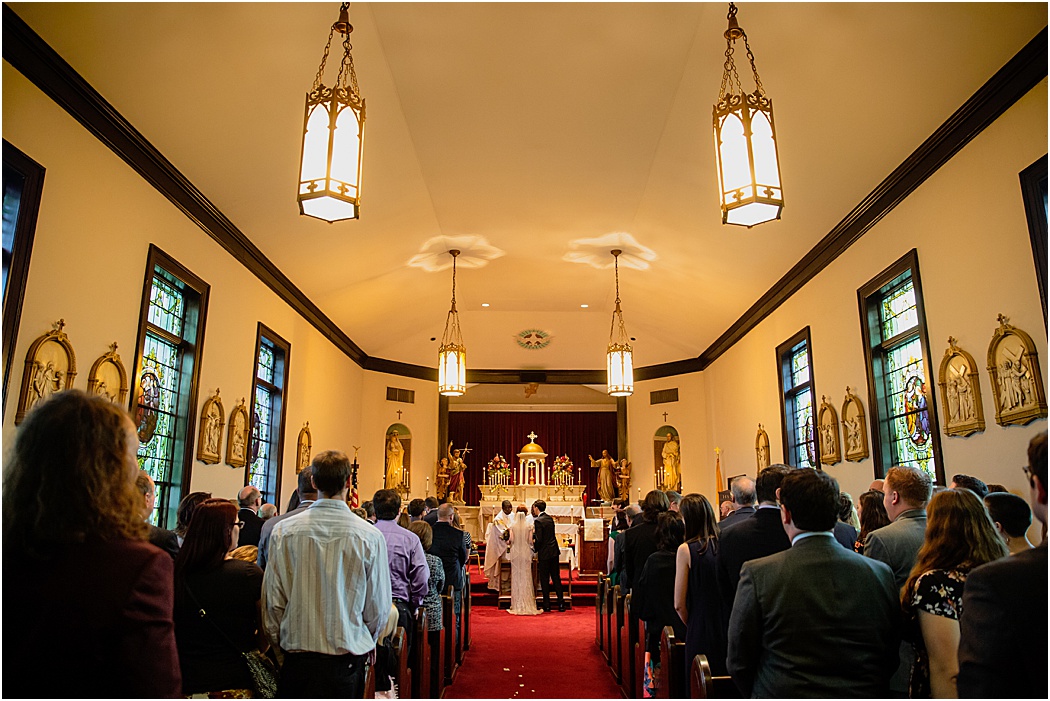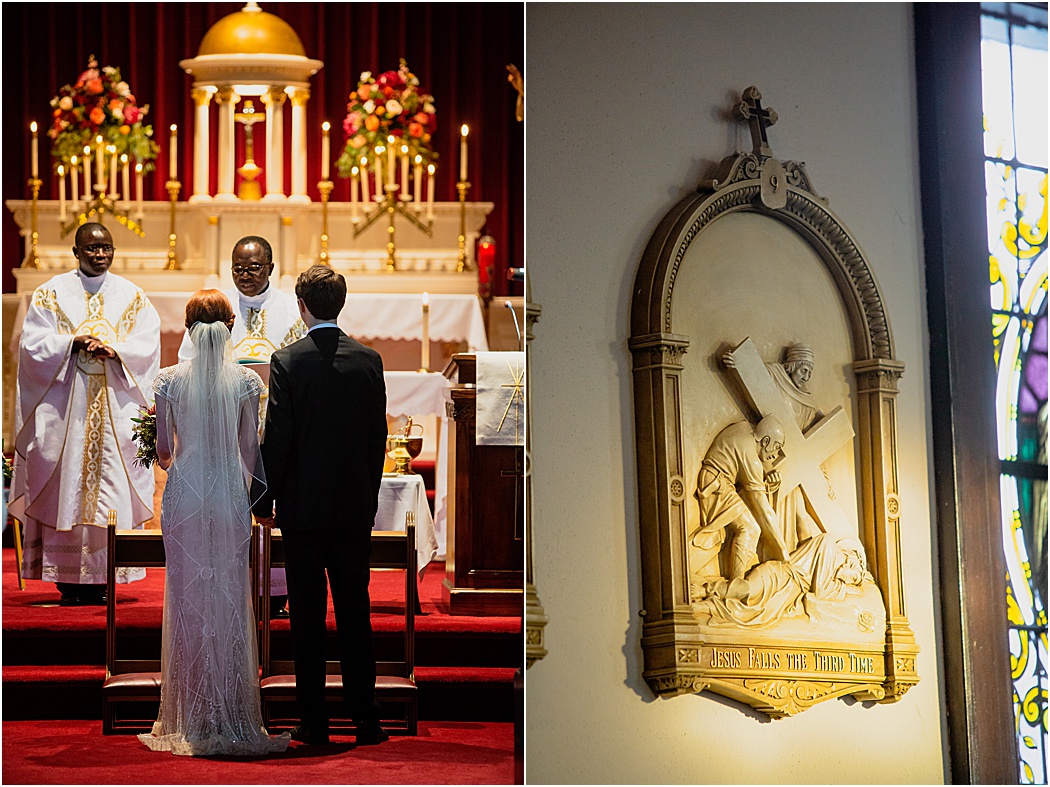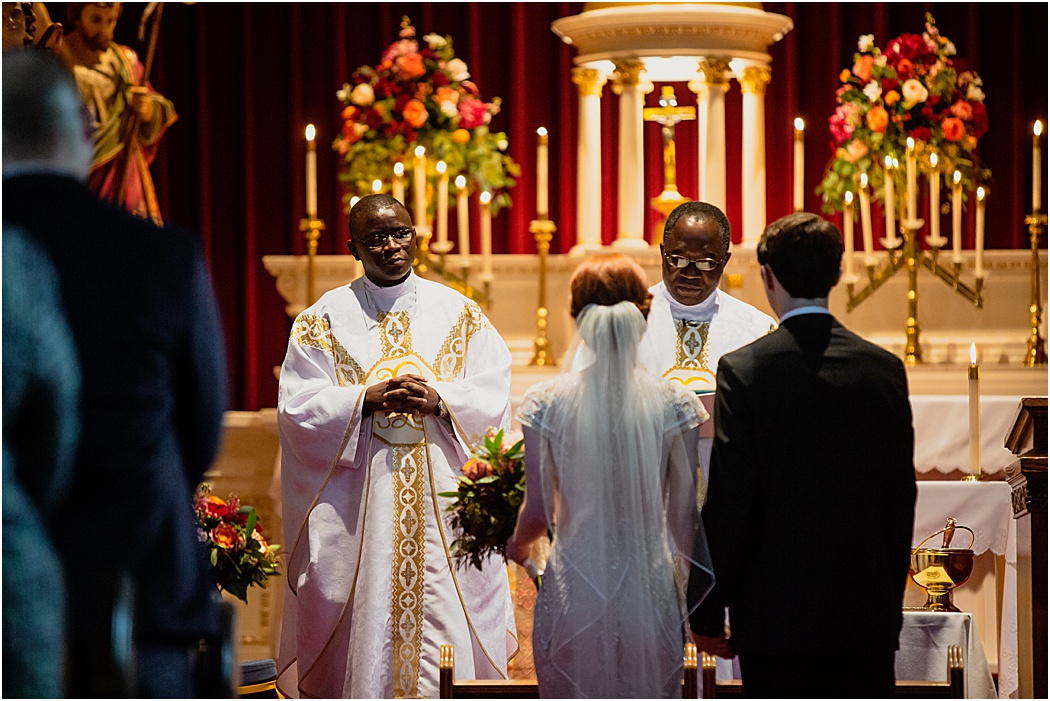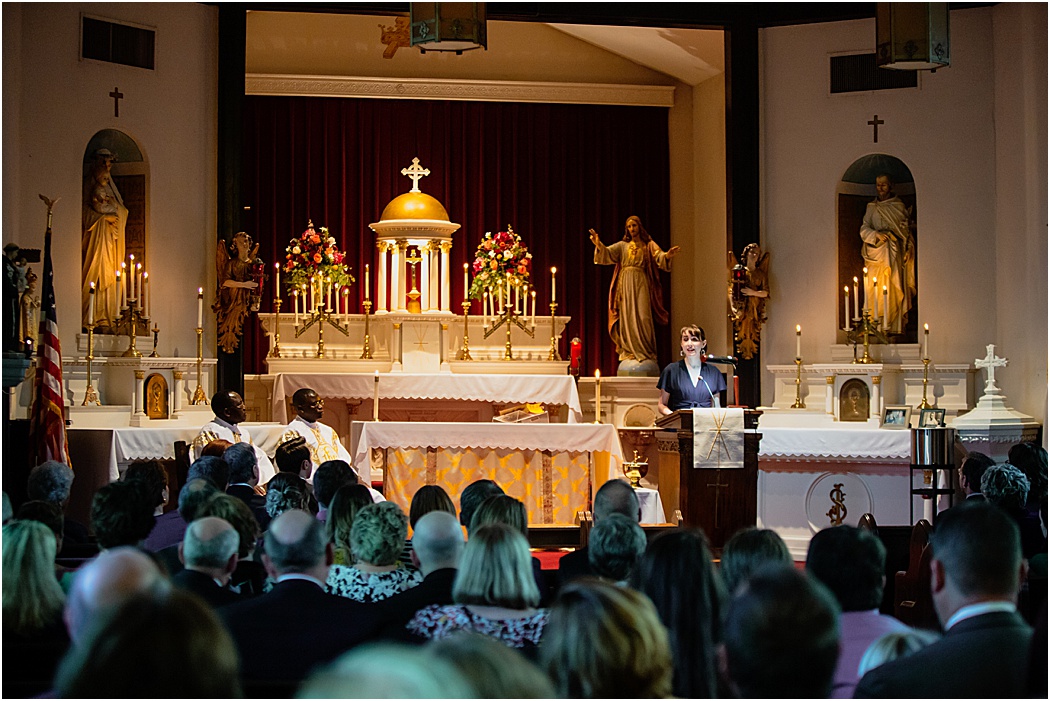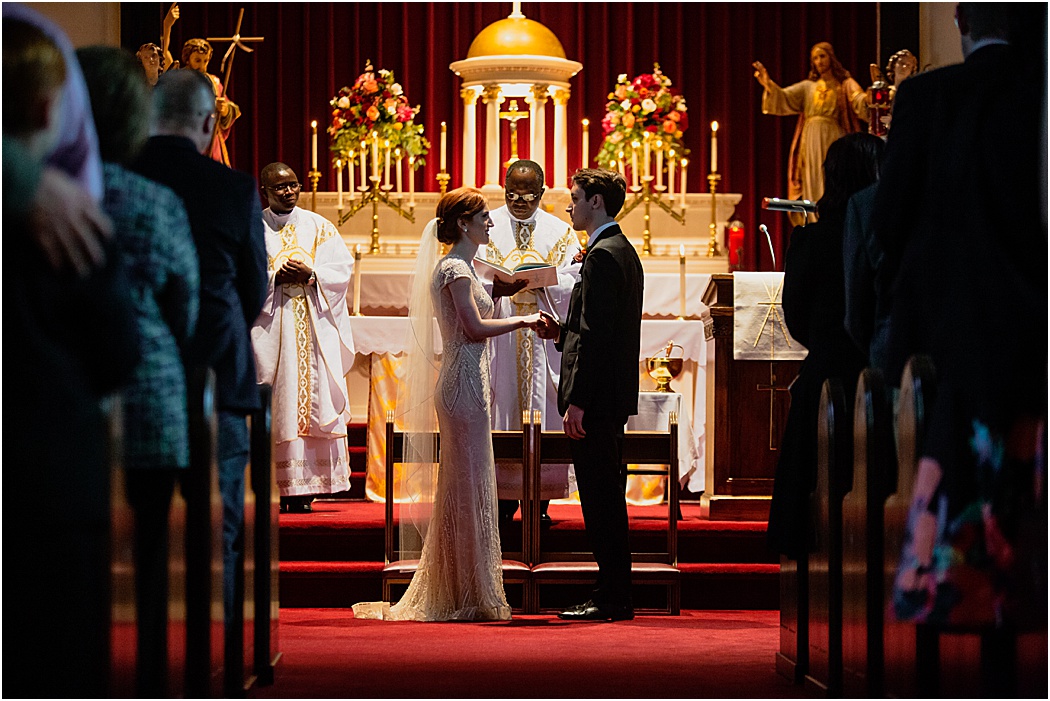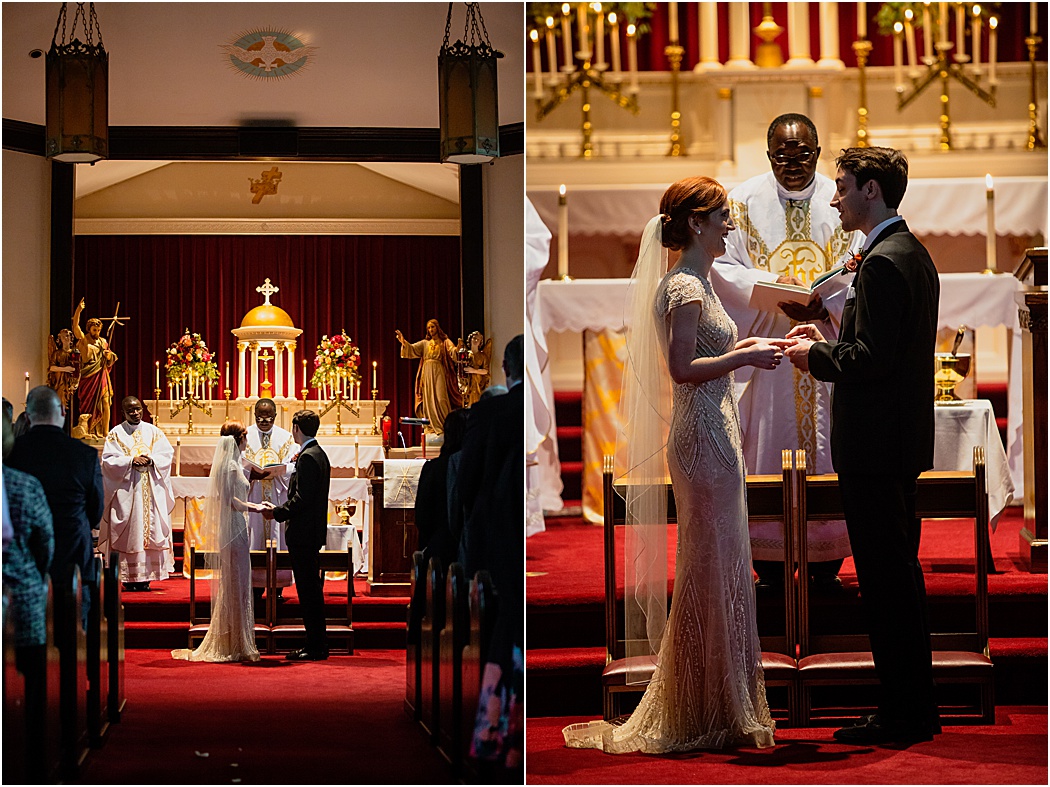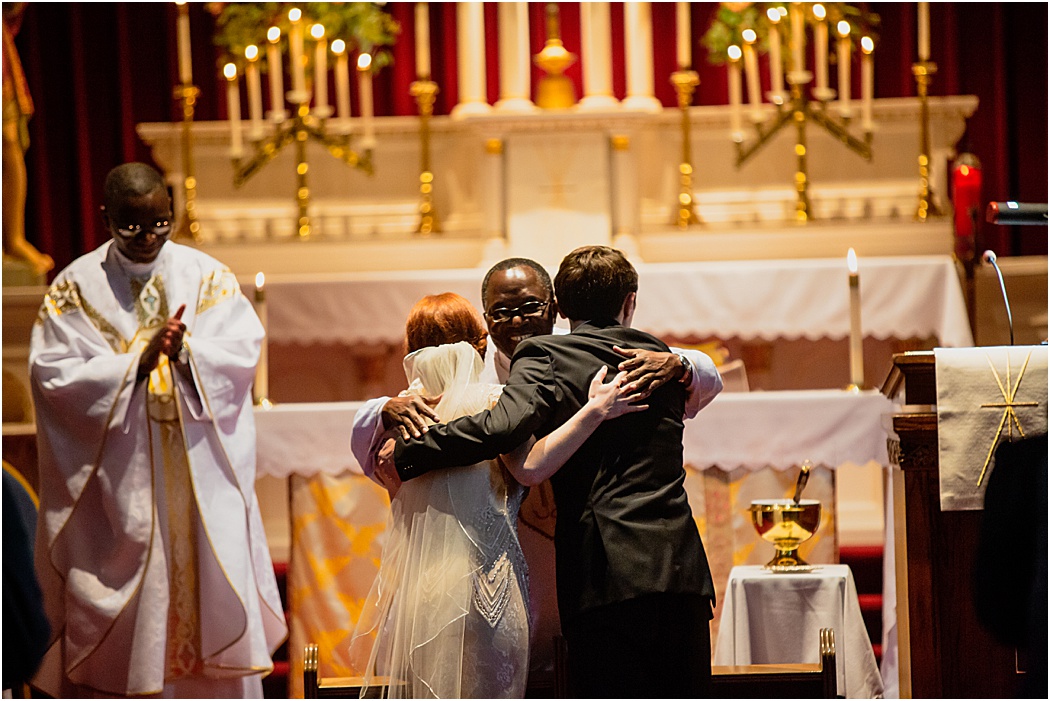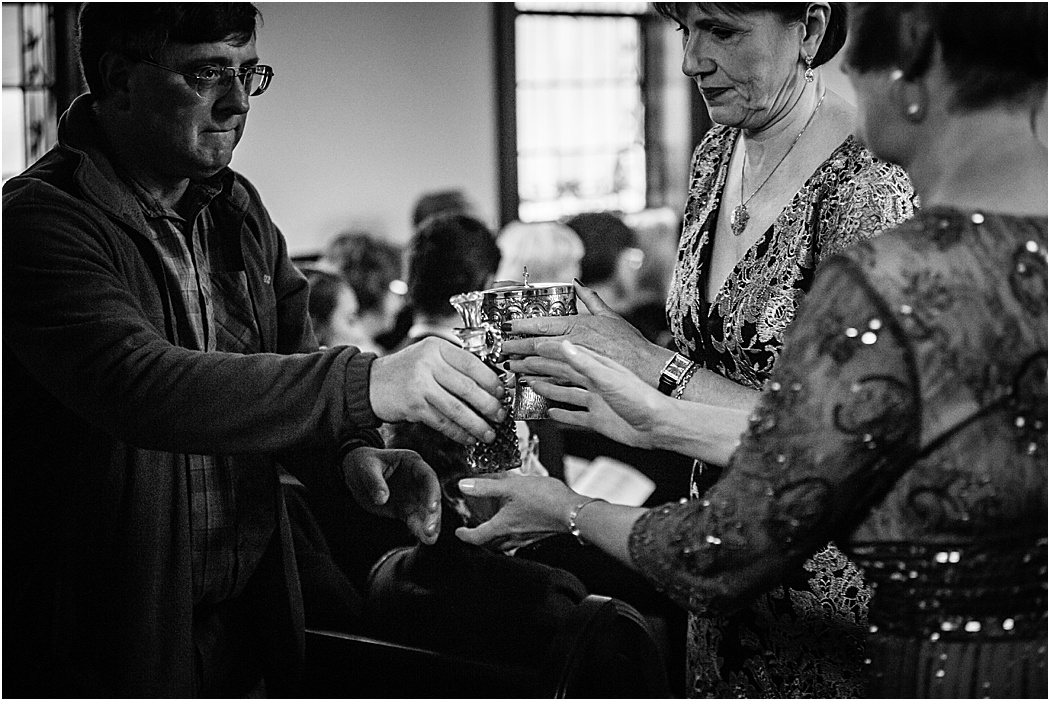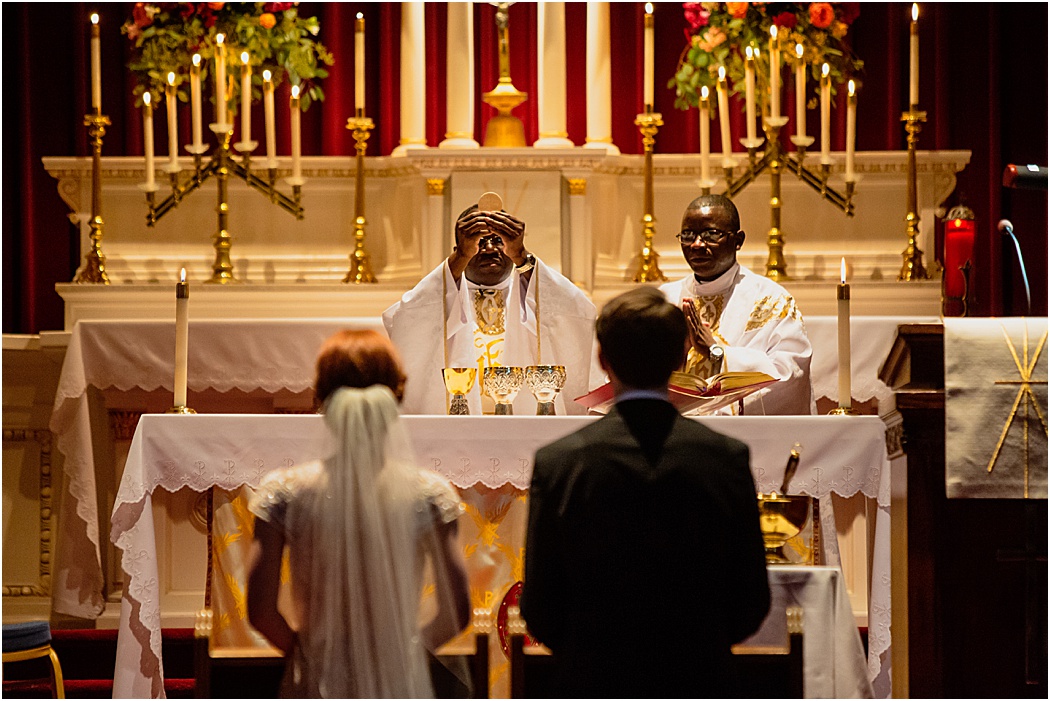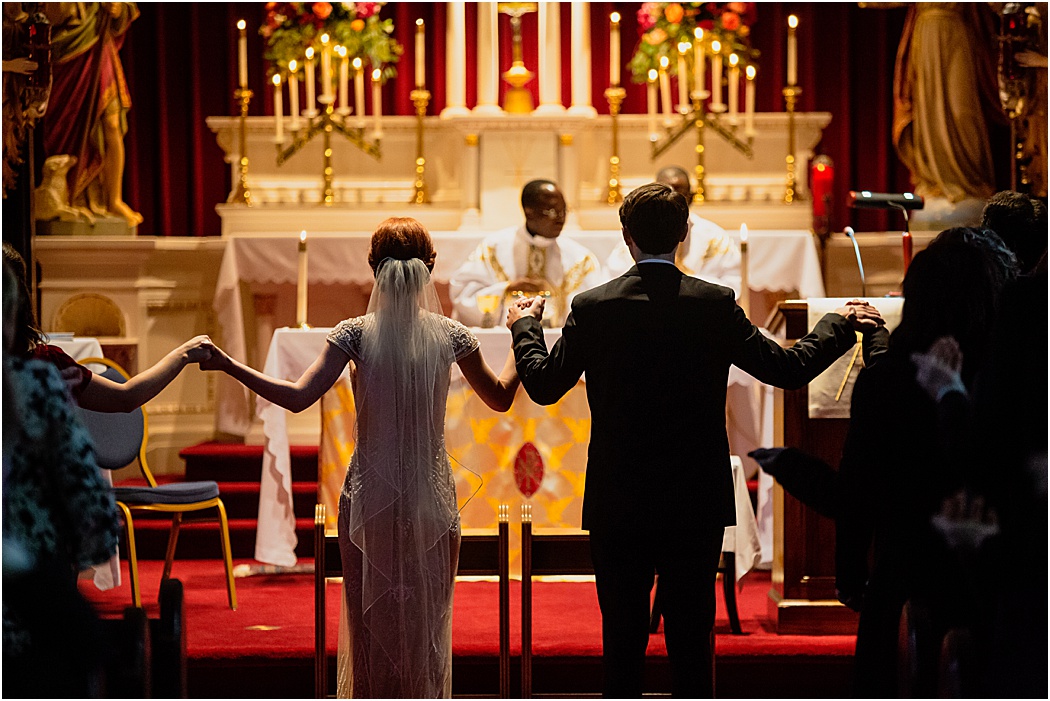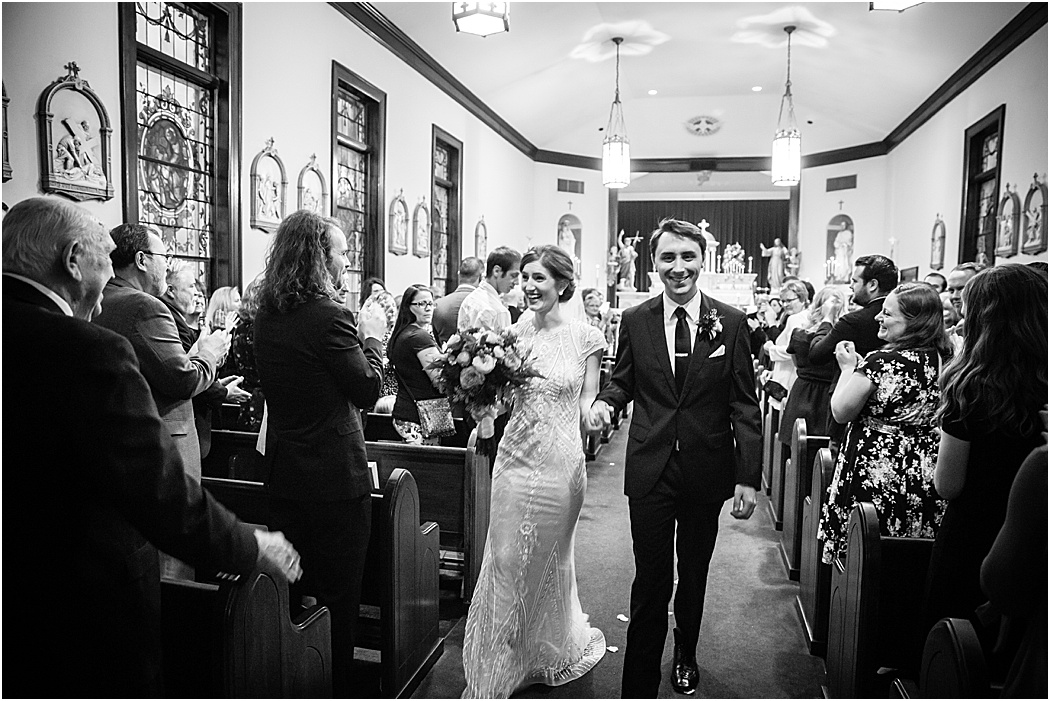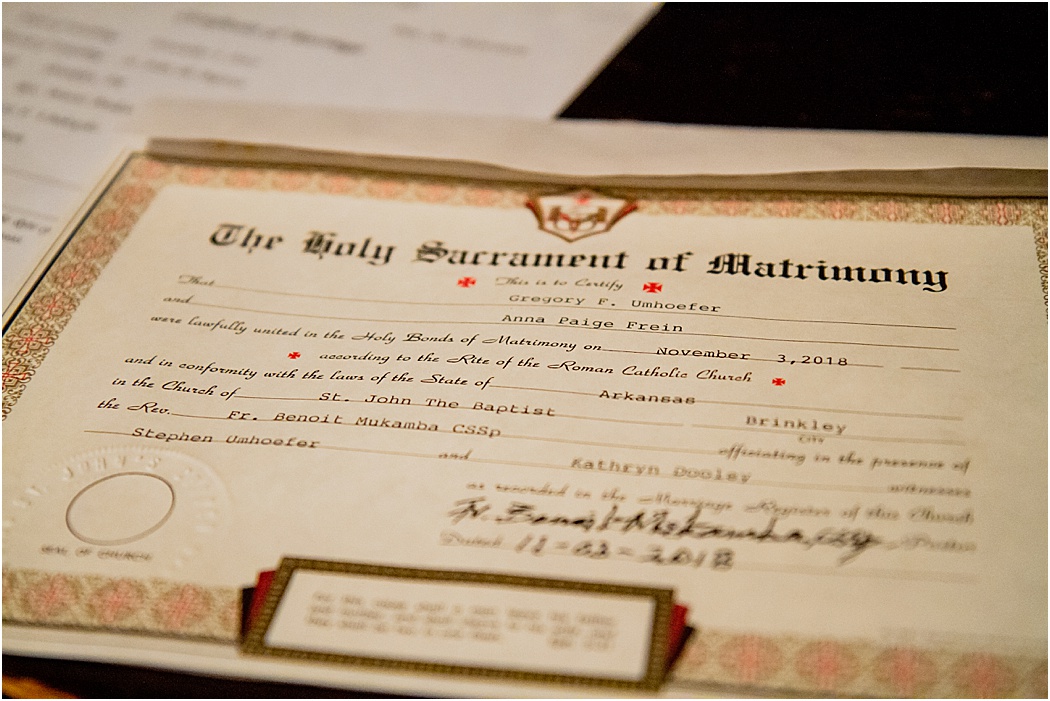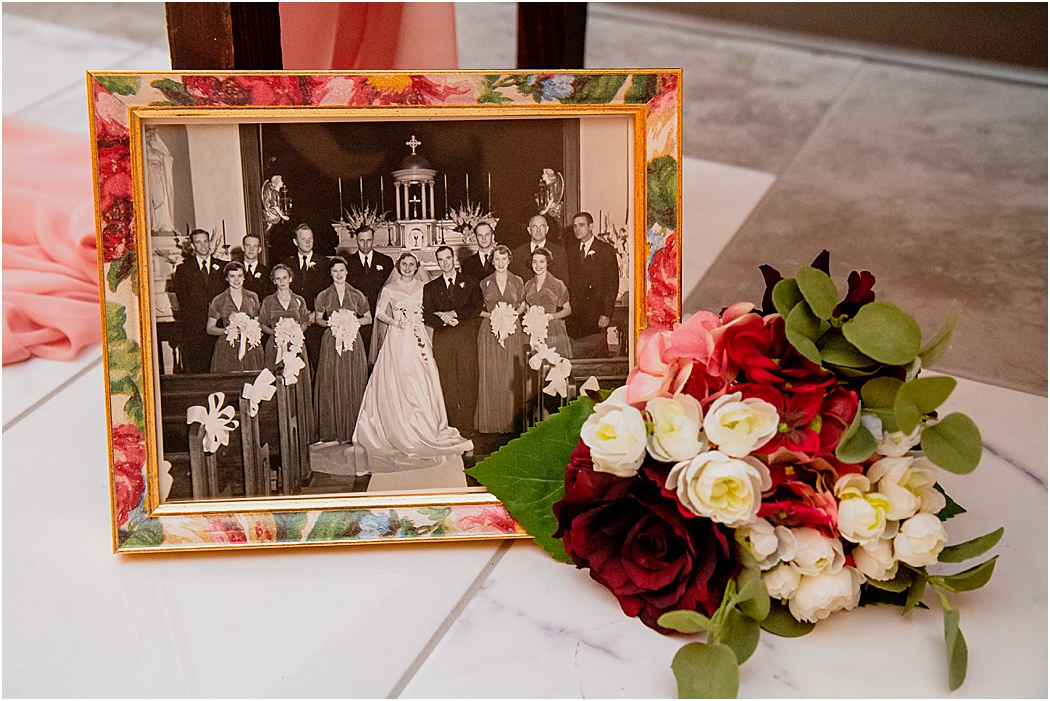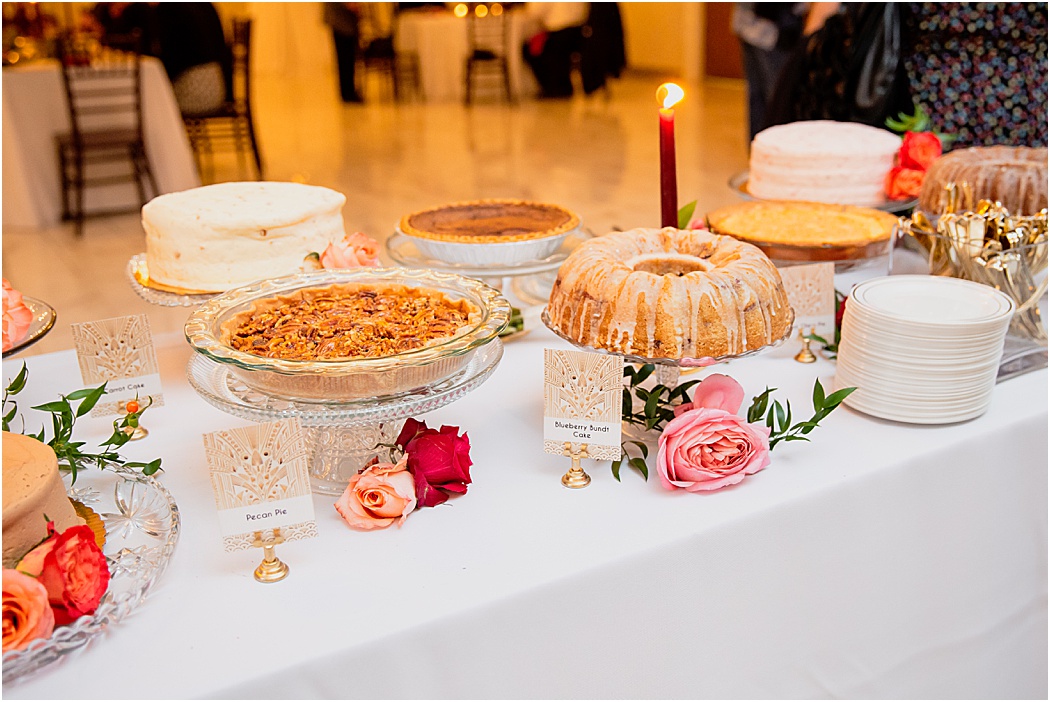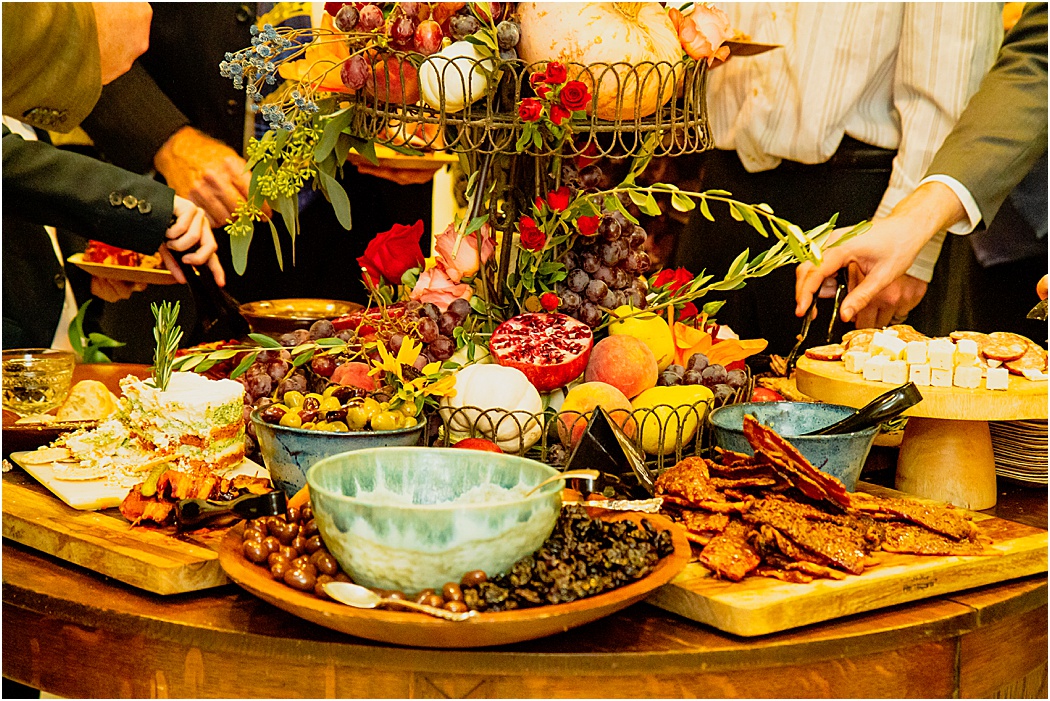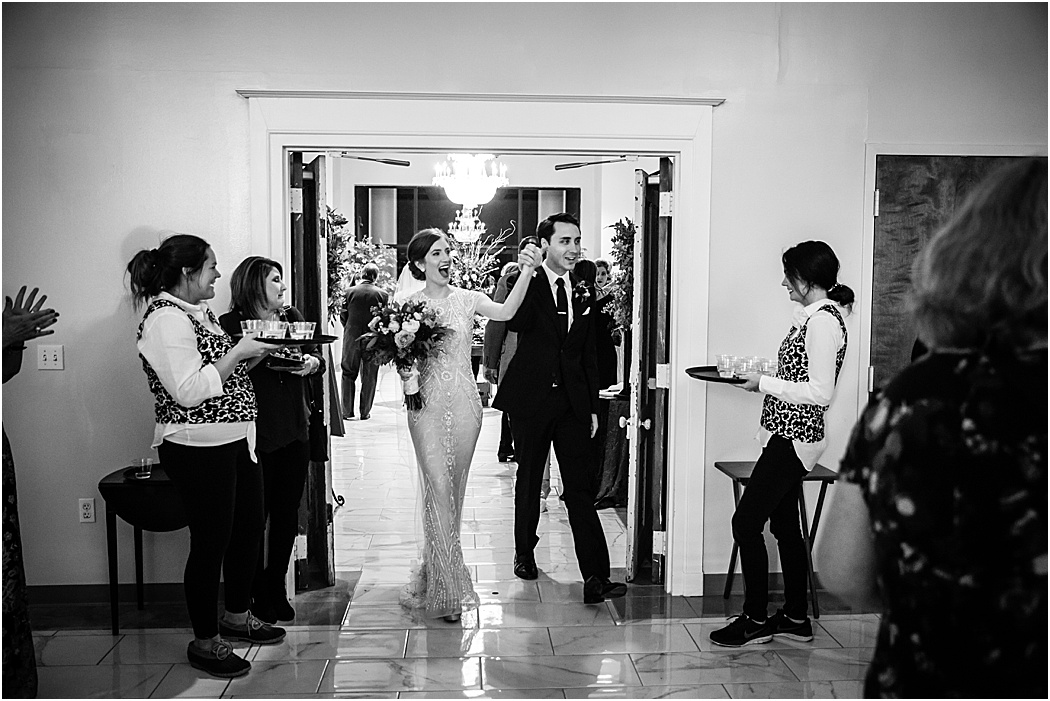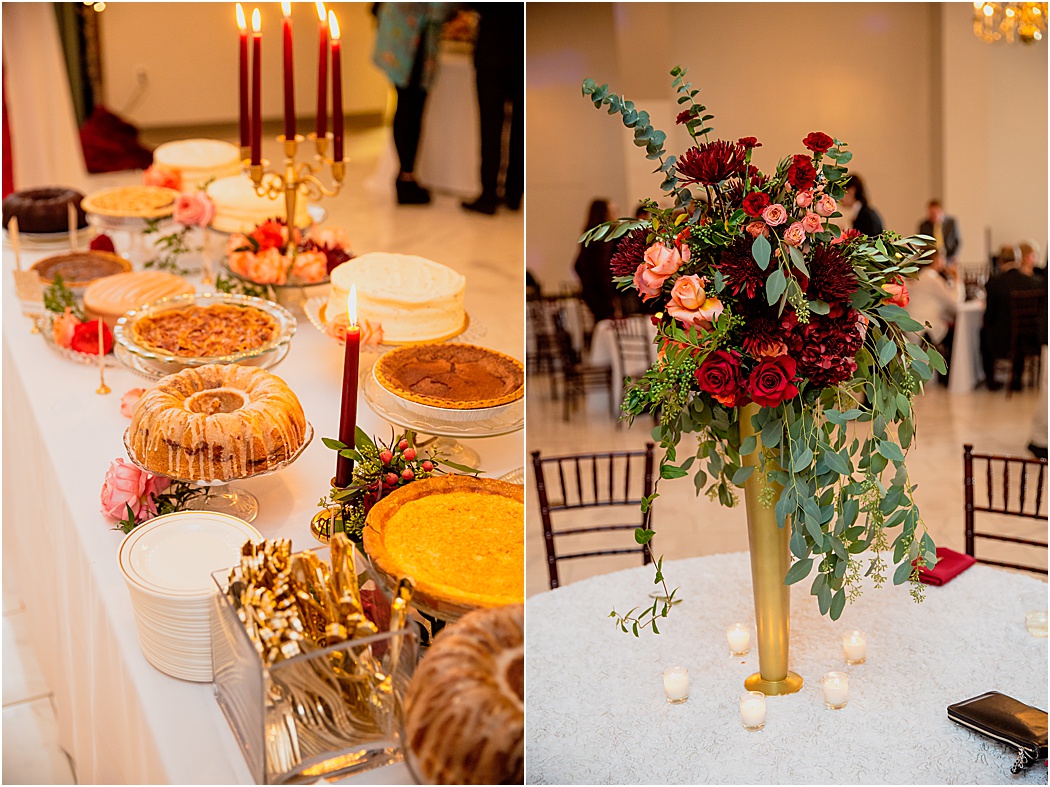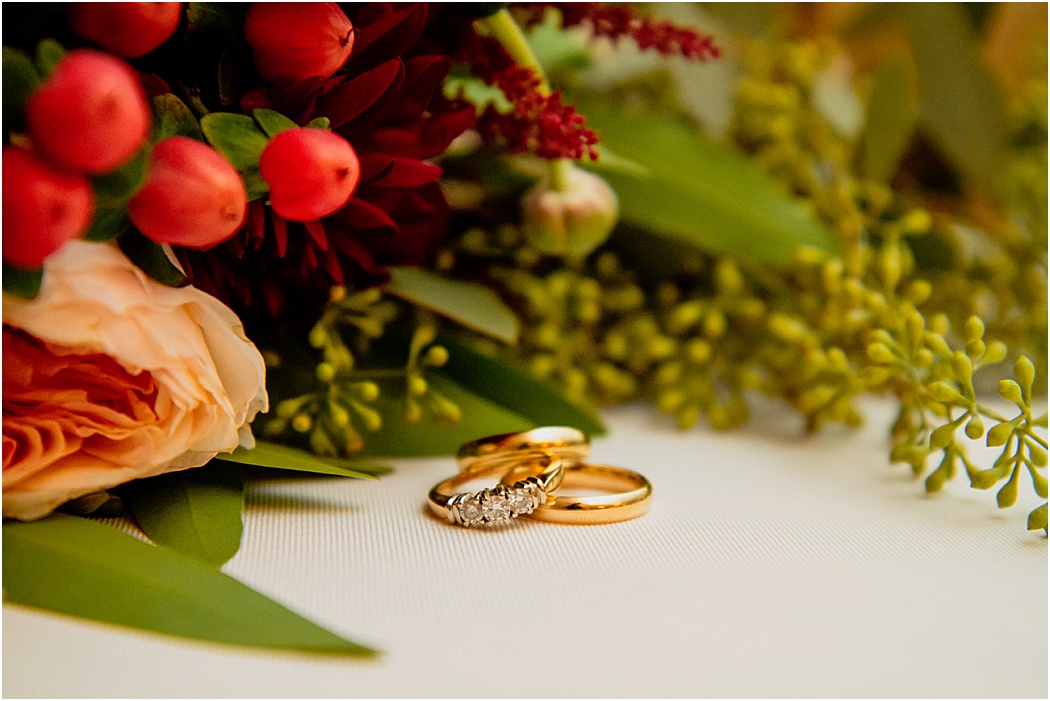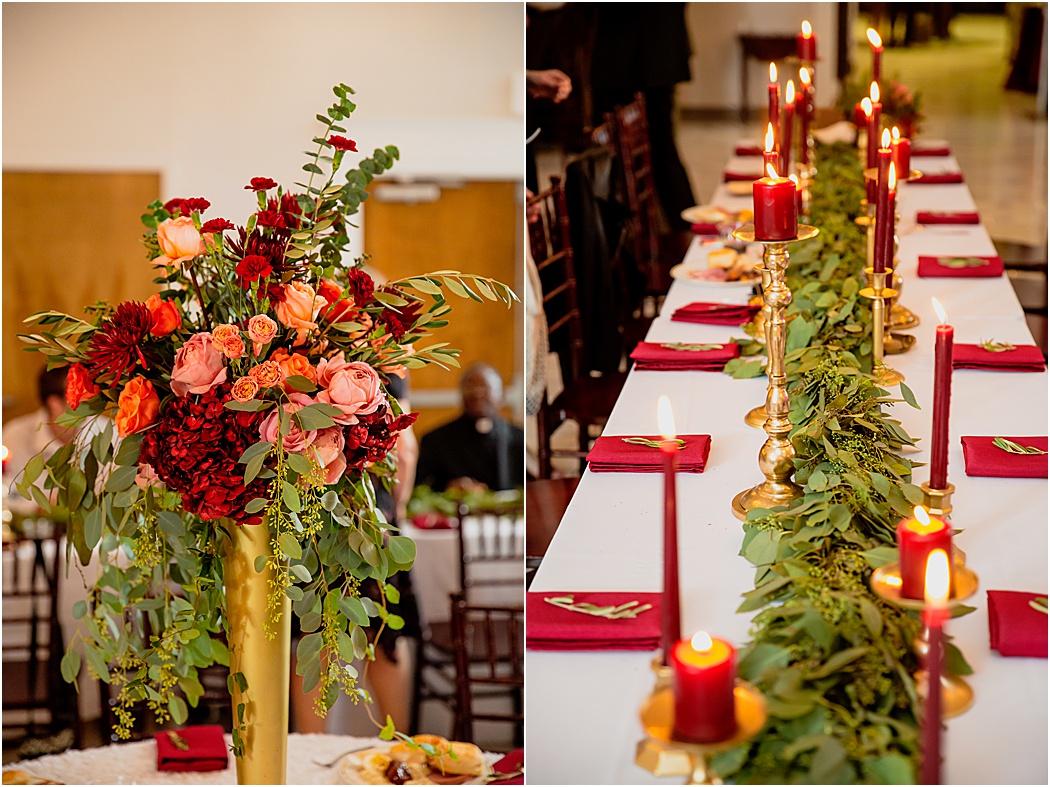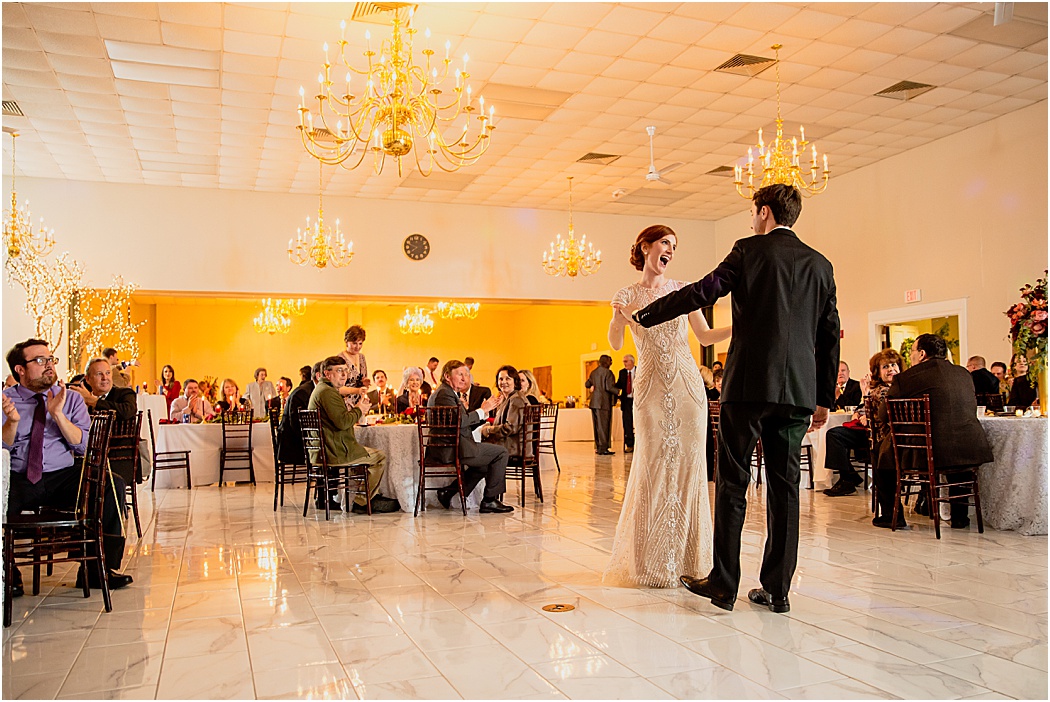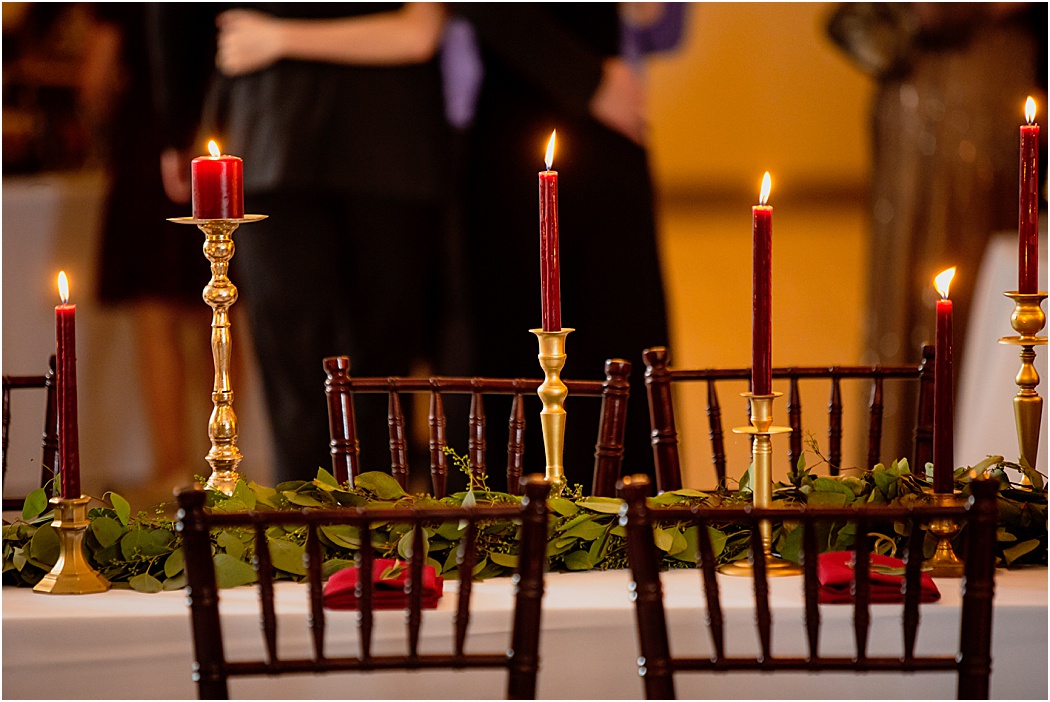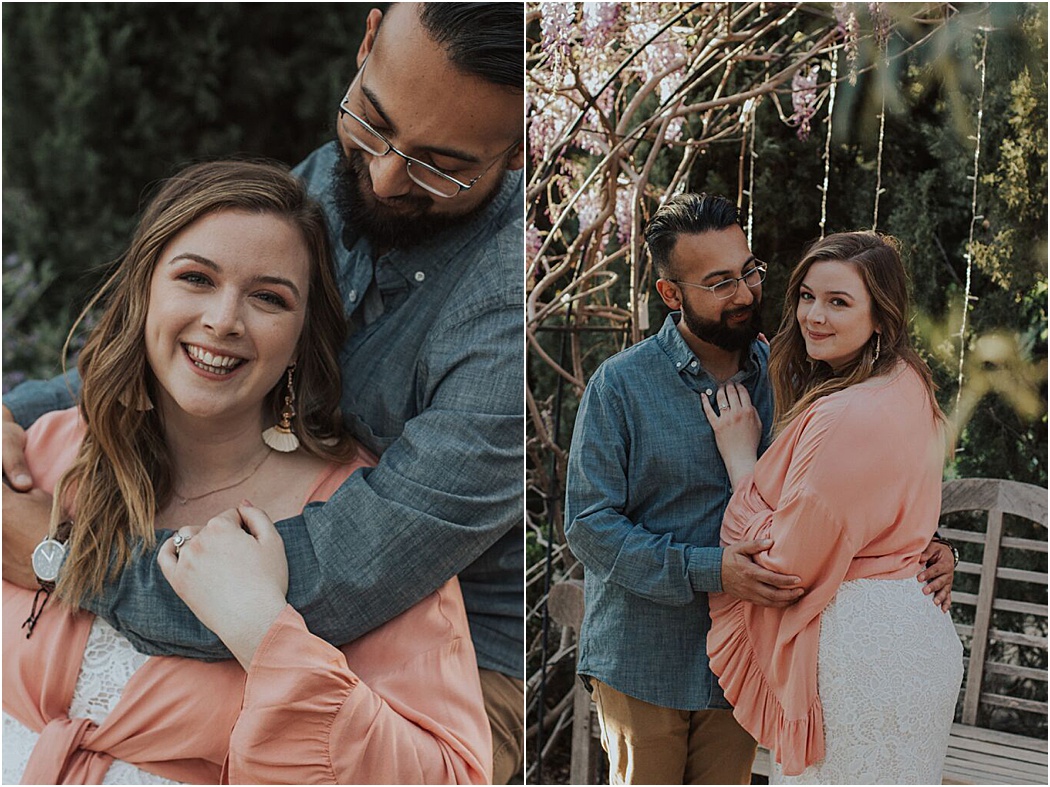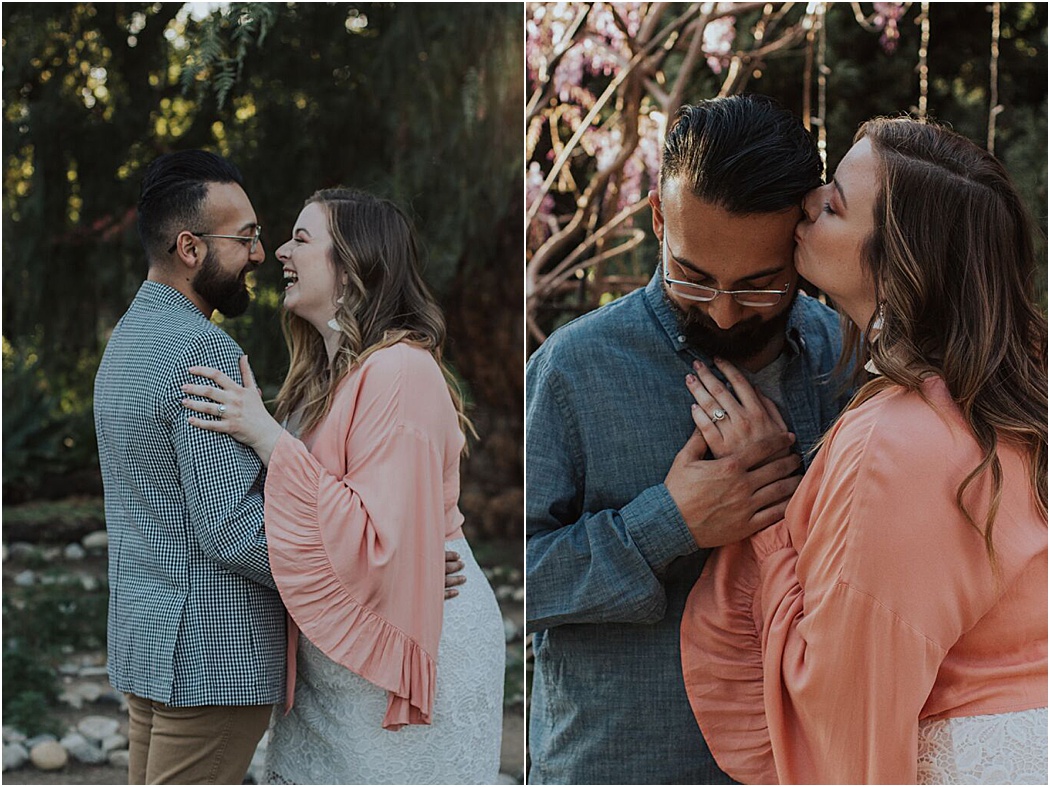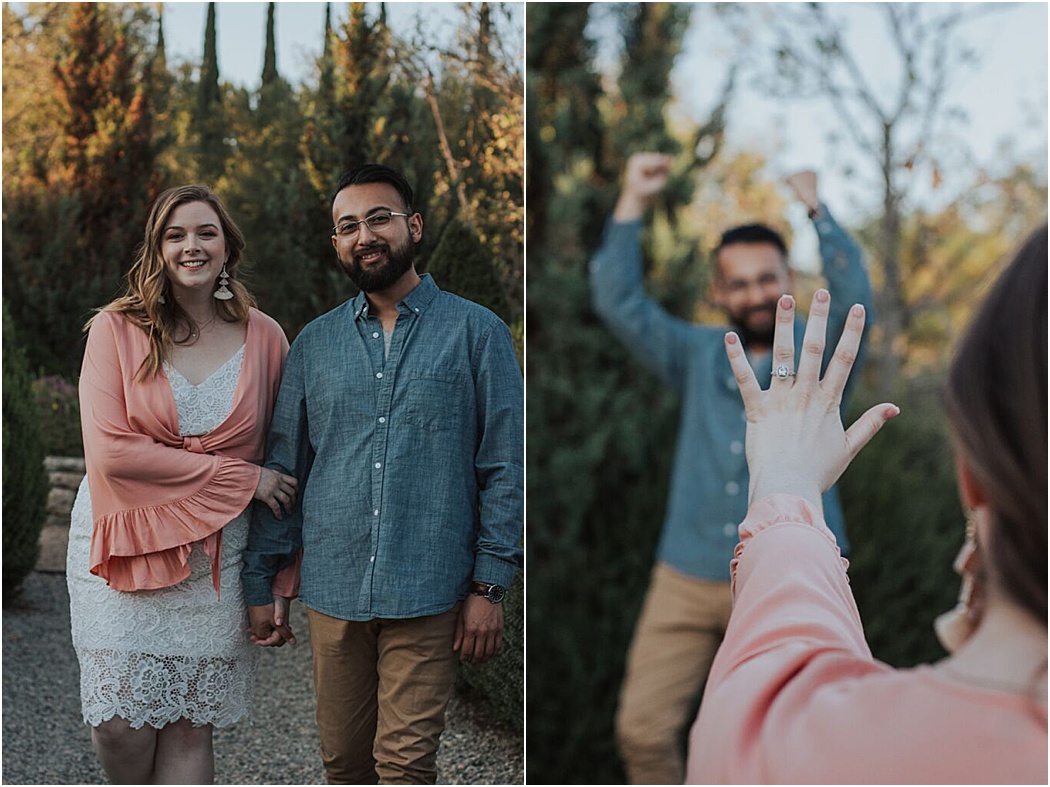Claire and Andrew’s wedding was planned with profound excitement, the generosity of their family and friends, and a deep desire through it all to bring praise and glory to God.
This rooted purpose, to become a “praise of glory” for God, (a beloved quote from their favorite saint) helped guide them from their earlier days as FOCUS missionaries through an intentional relationship that would blossom into marriage.
From the Bride: Andrew and I met in college through mutual friends and cultivated a deeper friendship while serving on the same campus as missionaries with the Fellowship of Catholic University Students. Though attraction between us was obvious, dating between teammates is usually not a prudent decision in FOCUS, so waited until the end of the year before we pursued anything serious. To say this was difficult would be an understatement, but when we were finally able to go on a date, neither of us doubted this was much more than a simple attraction.
We dated long-distance during our second year with FOCUS. Andrew was in Gainesville, Florida, and I was in Nashville, Tennessee. Countless Face-times, phone calls, and airplane tickets got us through this time--not to mention a lot of intentionality.
In fact, Andrew was consistently clear, thoughtful, and intentional in his pursuit of me. He led our relationship by making regular conversations a priority while balancing our call as missionaries; we needed to make sure we were still being present to those around us. Prayer was also an important part of our relationship. Praying rosaries, intercessory prayer over the phone, and always making time to pray when we were together were priorities.
Though long-distance was difficult, it was such a gift to be able to pursue our relationship without becoming overly consumed in each other’s lives or codependent.
My father passed away on Easter Sunday my senior year, and Andrew knew this was very important to me. For months he planned an Easter weekend I would never forget. After going on retreat near Nashville, we spent Easter Vigil with my students and drove to Knoxville for Easter Sunday with my mom and sister. After Mass that morning, we went out to eat, and Andrew asked if I wanted to go to the cemetery and pray for the repose of my dad’s soul. After we prayed, we went on a walk.
At the top of the hill overlooking the beautiful Smoky Mountains, Andrew got down on one knee and proposed with my mother’s engagement diamond in a rose gold ring. Engraved in the ring were the words “Praise of Glory” after our favorite saint: St. Elizabeth of the Trinity.
St. Elizabeth of the Trinity played a curious part in our relationship since the beginning. I had been falling in love with her understanding of the indwelling of the Holy Trinity in our souls and was beginning to talk more and more about her. Andrew and I read a book about her while we were friends and missionaries to try and find out more--even though I never finished the book.
In an attempt to move slowly and intentionally in our dating process, I asked Andrew if we could date for six months before we talked about marriage and the far-off future. I didn’t know that exactly six months after we started dating was the feast day of St. Elizabeth of the Trinity. St. Elizabeth called herself “Laudem Gloriae” which means “Praise of Glory” because she believed her mission was to do just that: be a praise of God’s glory. And so, Andrew had “Praise of Glory” inscribed in my engagement ring.
He shared with me that he had been praying a 54-day rosary novena for our engagement. The graces of this were so present. We went to the cathedral to pray and thank God for this wonderful gift, and when we got back to my house our family and friends were waiting to surprise and congratulate us!
Our engagement included two new jobs, a new city and state, and a month serving with the Missionaries of Charity in Calcutta. Through all of this, the Lord was softening and preparing our hearts to make the radical “yes” to our vocation seven months later on the Feast of the Immaculate Conception.
When we chose that date, we didn’t know the second reading for the feast was from Ephesians 1, the same verses where St. Elizabeth got the idea for her name “Laudem Gloriae.” This brought such consolation and was a clear sign of God’s blessing and sovereignty over our marriage.
From the beginning of our planning, Andrew and I wanted to throw a party that would serve the many people who meant so much to us. Every detail had one aim: to be a praise of God’s glory. We wanted people to have an encounter with the living God through the revelation of his beauty, love, and grace.
I chose the Marian color of blue in a winter combination with silvers and grays to run throughout the attire and decor. Each of the bridesmaids had a unique dress that, when seen with all the other dresses, showcased a uniquely beautiful winter look. The flowers were a combination of whites, grays, and greens with fun sparkly pine cones and faux fur-tailed stems of white fluff. Attached to my bouquet was my “something blue:” my dad’s wedding ring tied to a blue ribbon and a black-beaded rosary; a rosary made by the man who creates them for the Missionaries of Charity in Calcutta, India.
Our ceremony was held in the newly constructed Cathedral of the Most Sacred Heart of Jesus. This absolutely gorgeous cathedral, finished in March 2018, featured countless symbols, rich colors, and the faces of some of the most beloved saints in our modern day. From the marble floors, to the rich blue ceiling tiles, to the towering dome, everything about this place of worship draws your eyes and heart to the God who loves us.
Our musicians, all friends of ours, played songs that resonated deep in our hearts. “O God Beyond All Praising” was the song we chose as our entrance hymn because the purpose of the day was to give glory to God. As the violin welcomed Andrew and I into the church, he couldn’t help but break down in tears as I stood beaming beside him. Because my dad had passed away years ago, we chose to have Andrew walk me up the aisle as we prepared to enter into this sacramental covenant together.
Incense filled the altar and the entrance antiphon directed our hearts and minds to the Blessed Virgin Mary on her special feast day. Our good friend, Fr. Victor Ingalls, reminded us in the homily of my bridesmaids that Andrew had previously dated, which brought a rather comic tone to an already joyful day. He also reminded us of our most important mission: to get one another to Heaven.
My favorite part of the ceremony, besides singing with Andrew to some of our most beloved hymns, was looking into the congregation and seeing all the people who had helped us become who we are today. This included our parents, siblings, family, our friends who saw us in our most awkward times, those who served with us in FOCUS, our mission partners who had supported us as FOCUS missionaries, and our students we had labored for on various campuses.
We were surrounded by such an incredible group of people who had given of themselves to help us try and become the saints God was calling us to be. As they witnessed to our promise of marriage, I couldn’t help but praise God for the gifts he had given us in each and every one of them.
Many people told us that the Mass was a spiritual experience, and I believe it was because God was being revealed so vividly through the beauty and liturgy of the Mass. It emanated from the building itself, through the music and community, and through the great “cloud of witnesses” who were there praying for us and united to us as we participated in the sacrifice of Christ on the altar. It was clear that the Lord greatly desired to come into the hearts of each person gathered there to celebrate.
Our reception was a blur, but from what I remember, my mom gave a long-winded speech that had people crying from laughing and crying from just plain crying. Because my dad couldn't be there, each of my ten uncles danced with me instead. We partied the rest of the night away with an amazing band that covered the classics and brought in some more modern music as well.
Greenery hung from chandeliers, glittering Christmas trees welcomed the guests, and blue, silver, and white candles caused the whole room to glow. Our cakes were almost too pretty to eat, except for the donut covered groom’s cake. And most importantly, the smiles and laughter and joy of our guests made my heart want to burst.
It’s okay to be excited about details when planning your wedding, but it’s also important to realize that the day is about so much more than that. You want everything to be beautiful, to be special, and to be unique to you and your husband. But in each detail you choose, remember what your purpose is for that day and who you're really celebrating.
We wanted good food, a band, a large guest list, and beautiful flowers. We wanted to serve our friends and family and give them an experience of beauty. But we also didn't want to get carried away with unnecessary excess.
At the end of the day, the whole point was that God had invited us into this beautiful sacrament to honor and glorify him. This was something that Andrew had to be constantly drawing me back to and reminding me of. This day wasn't for everyone else's approval or for our own vanity, it was for bringing glory to God.
As we started to plan and realized our budget didn't allow for certain things I wanted, it became clear that God wanted to provide in bigger ways than I could ever hope. Our venue provided incredible resources, we found lesser known, more affordable, high quality vendors, and we met people who “randomly” had connections with a band or wedding programs. Others offered to donate their time or resources to helping us make the event beautiful. Over and over again, God wanted to show his providence in every little detail of the day.
I have always struggled with trusting in God's goodness. Will he really provide? Is his plan good? Can I trust in his timing? These fears followed me throughout being single and even once Andrew and I started dating. I grasped for control every step of the way to make sure I wasn't going to be disappointed or hurt. But as wedding planning began and I had to let go of things I was grasping onto, God showed me that his plan for providing was so good. It would exceed so many of my expectations.
As Andrew and I walked down the aisle, I stood in awe of the beautiful day that God had created. It felt like so many things that day came together completely out of my control, and it's only because of God's grace to let go and let him do the work. The truth is that no matter what you think you might need on that day, God wants to be the one who makes it beautiful.


